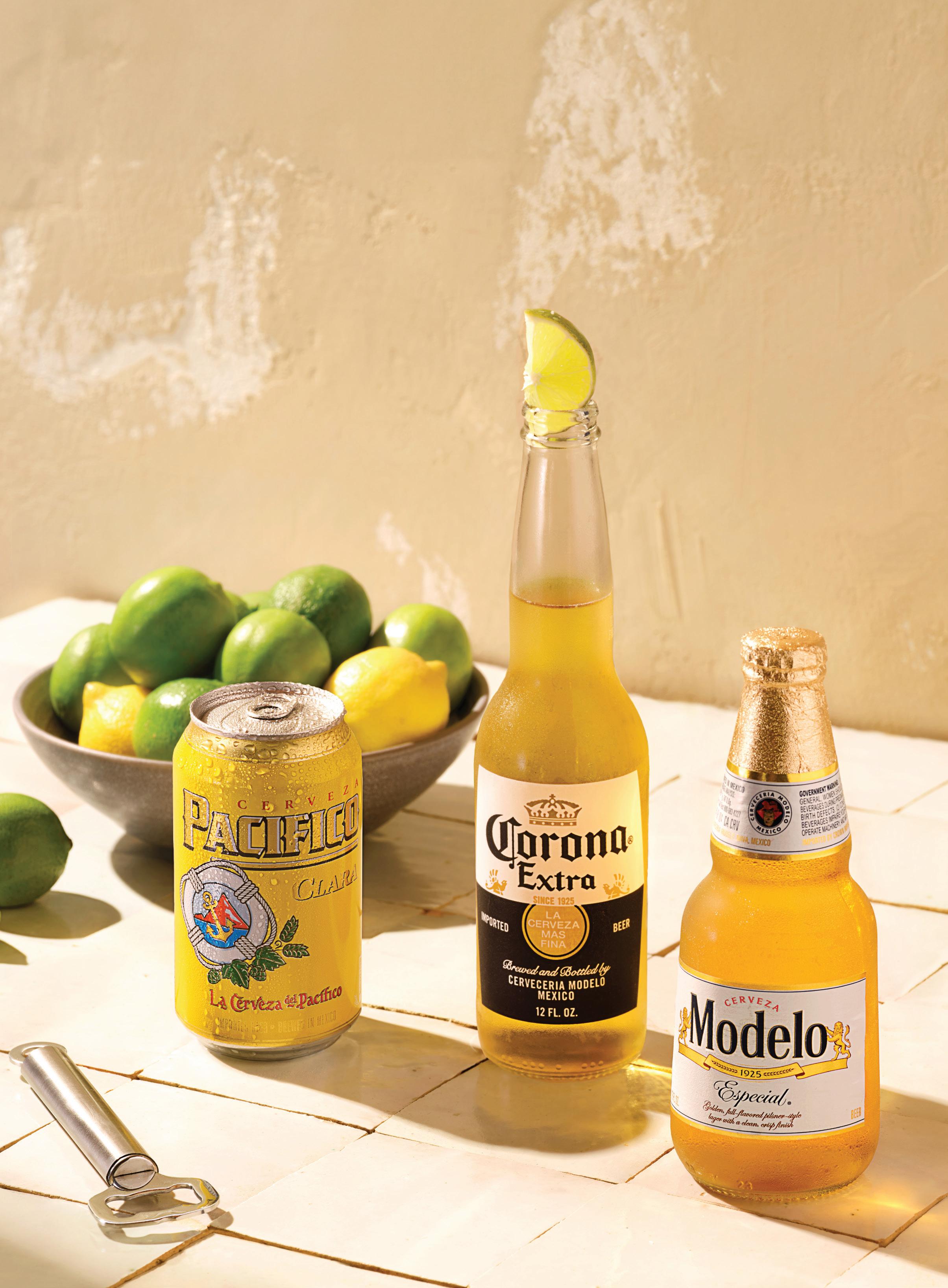
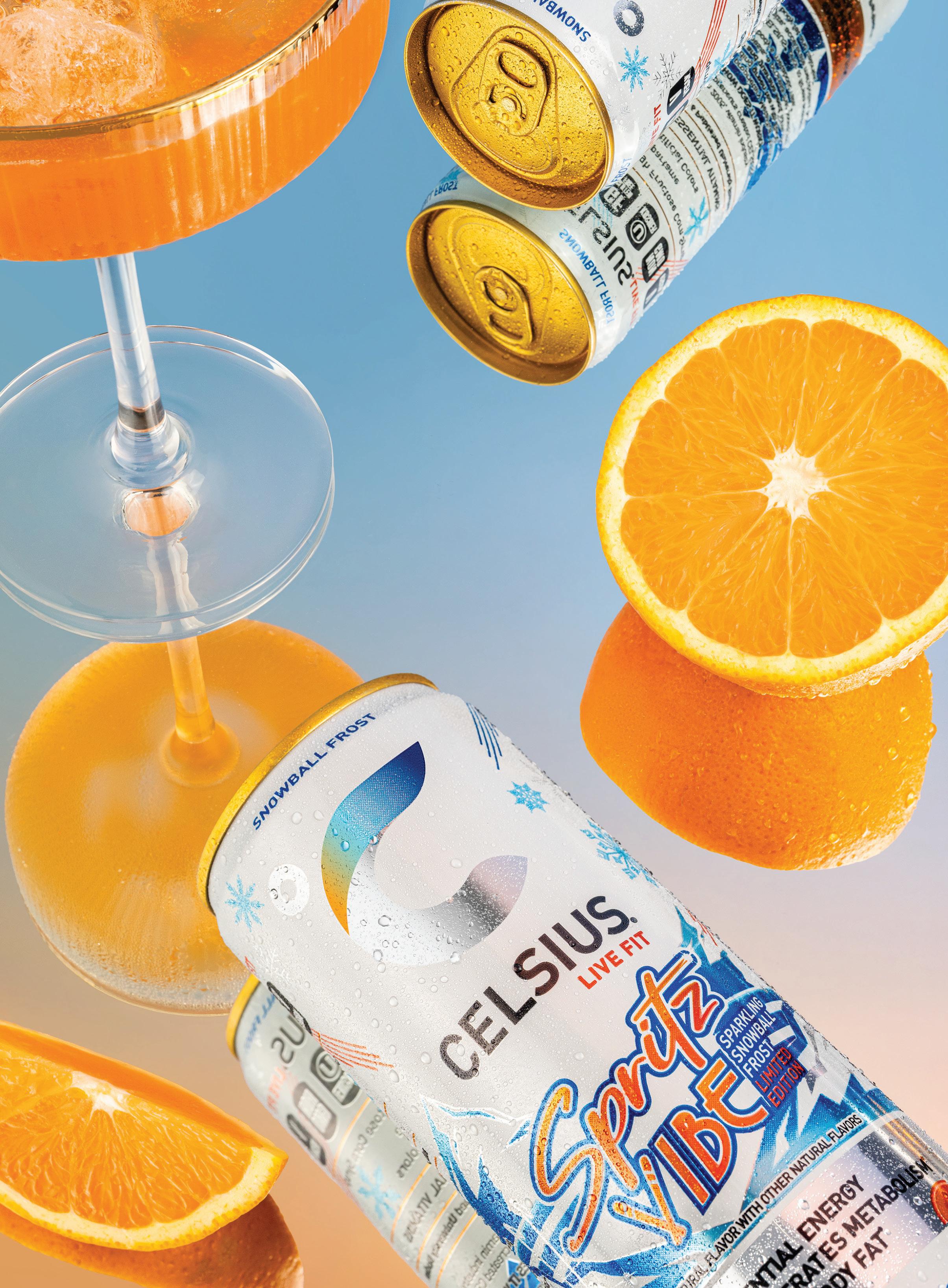
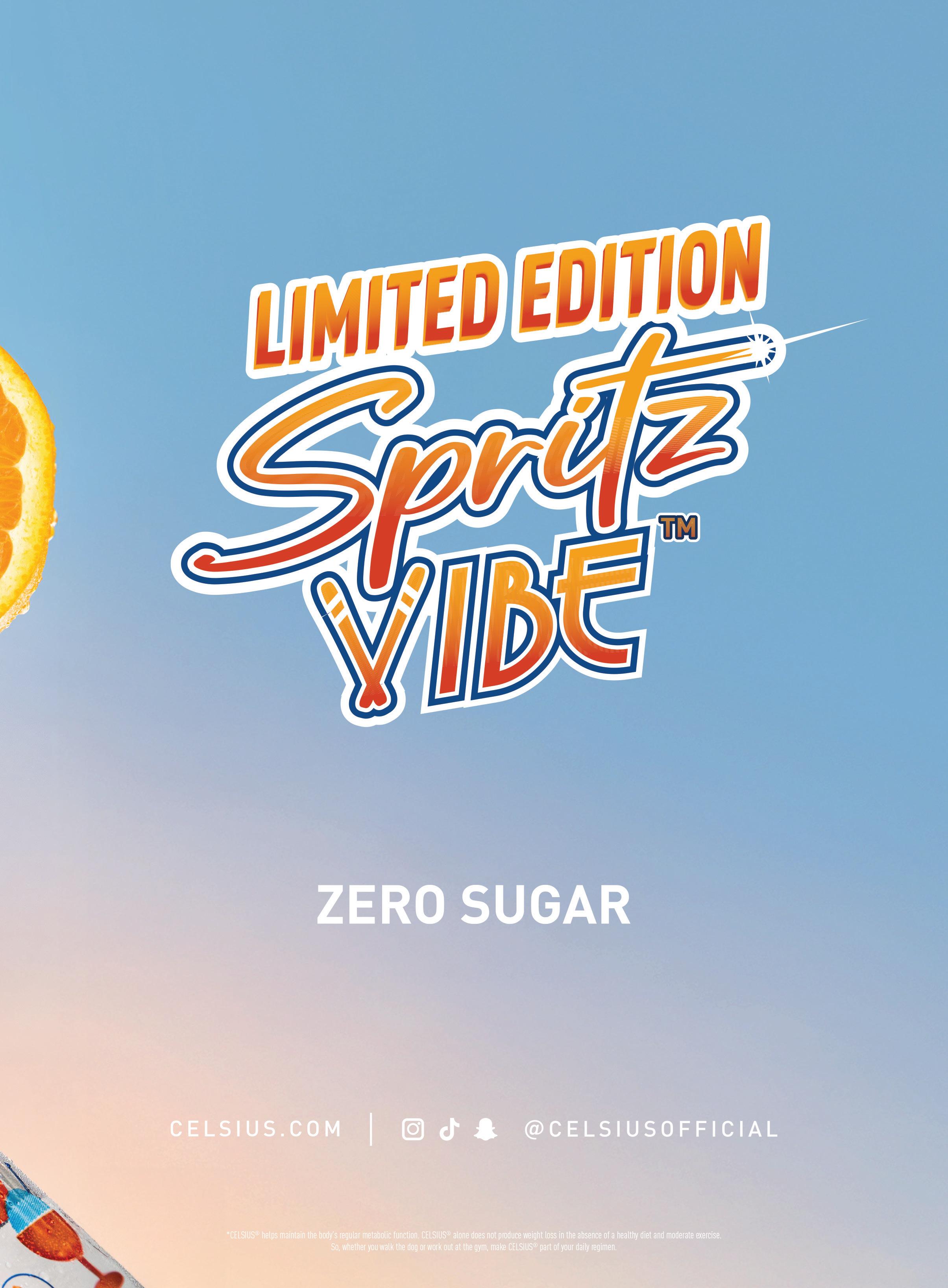
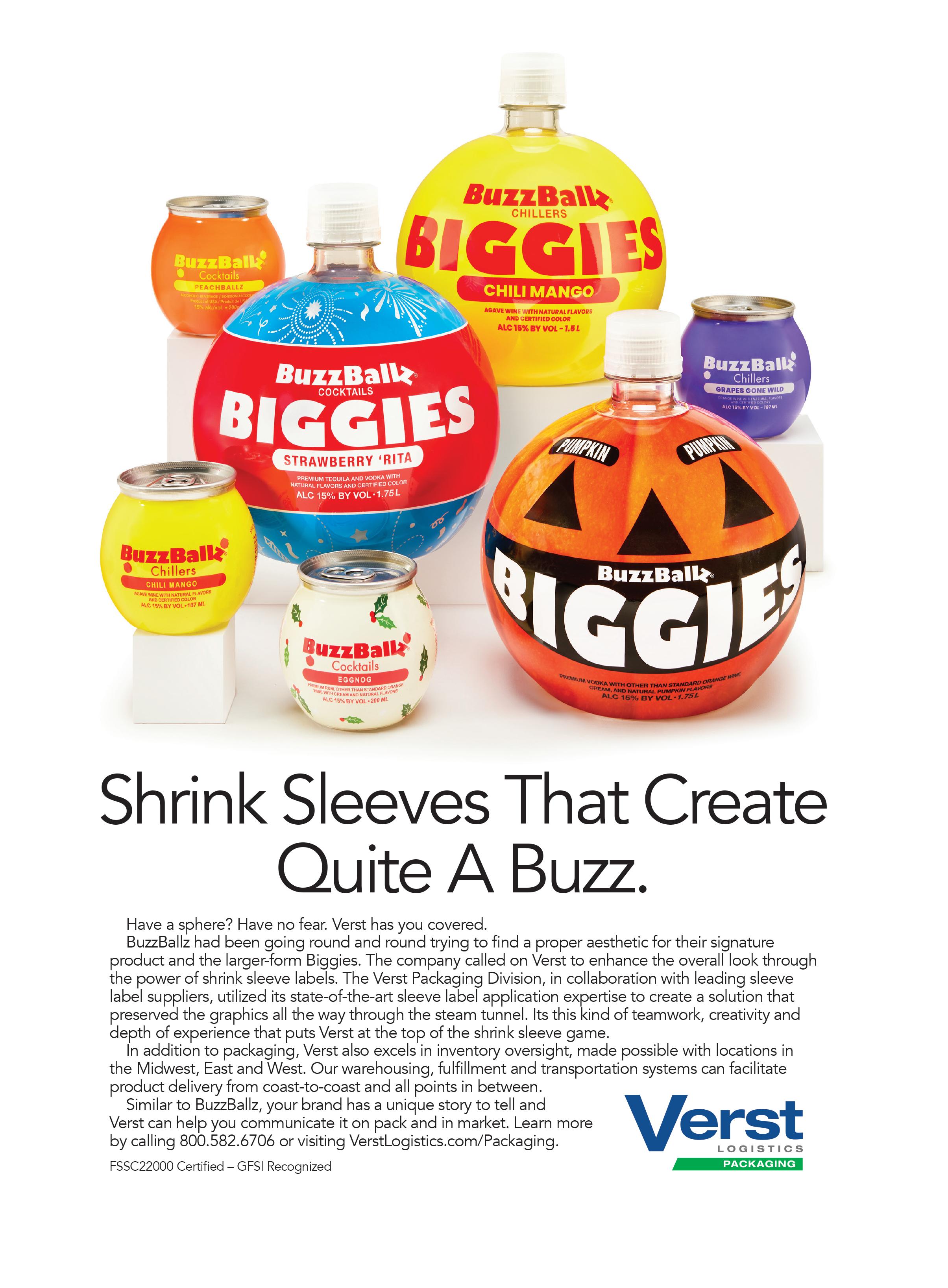
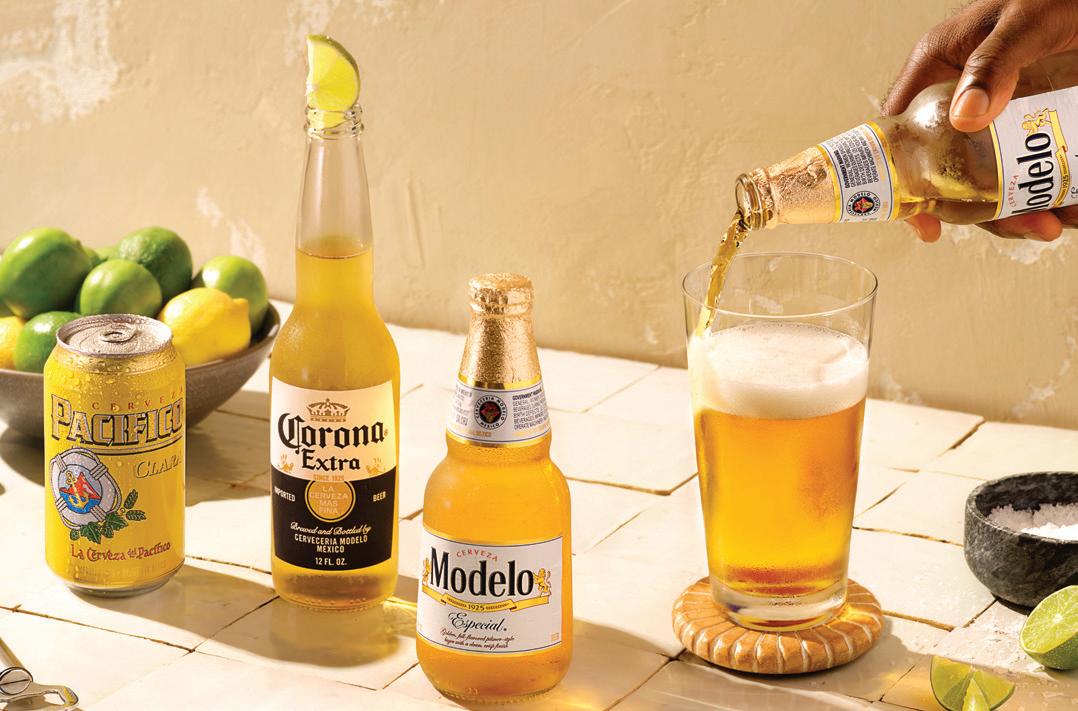
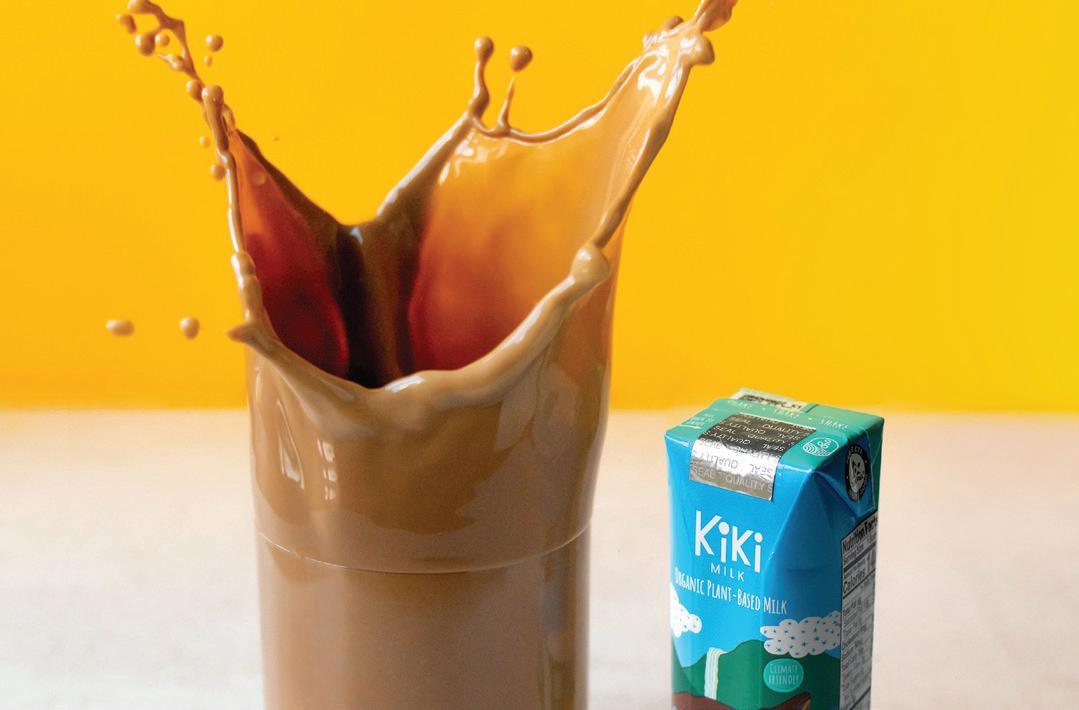
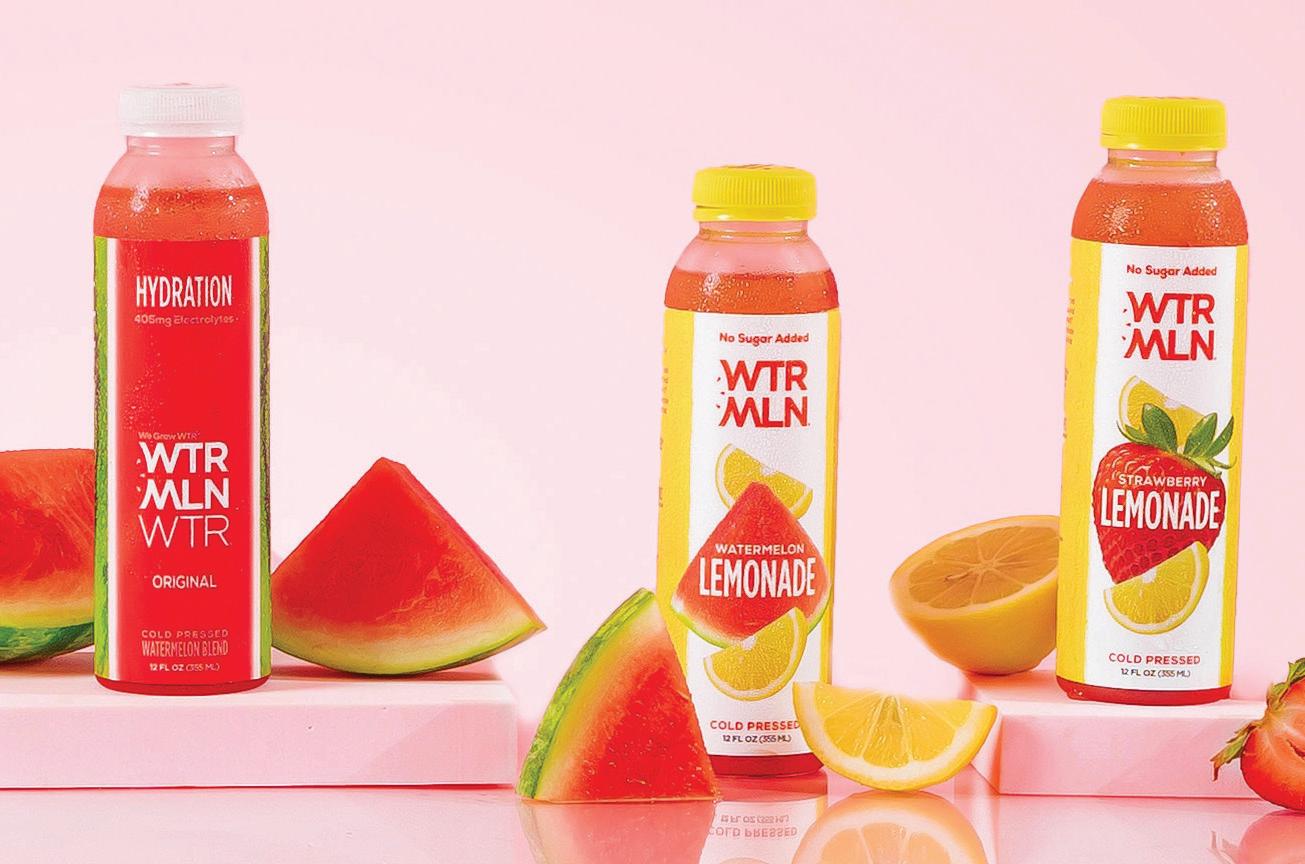
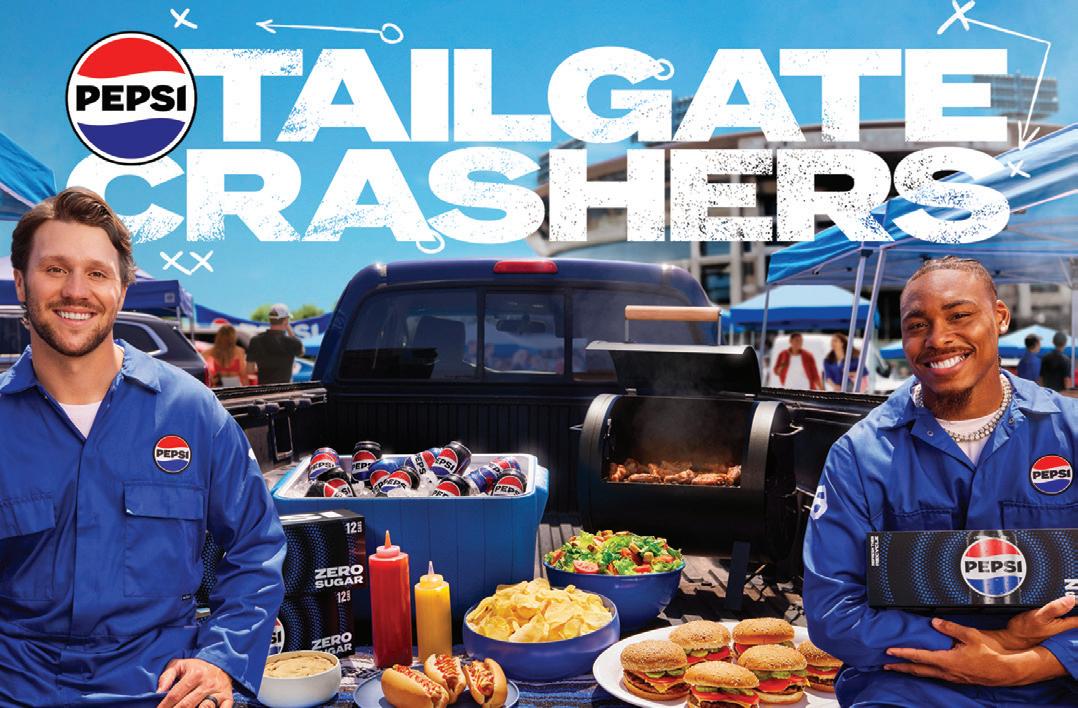









If there’s one scheduled feature that causes our team to draw bendy straws, it’s our annual look at the state of kid’s drinks. It’s just a confusing category; it’s not like kids are physically incapable of drinking most things, or that, booze and THC aside, there are actual federal laws on the books that make them unable to purchase most of them. (Even energy drinks, the caffeinated subject of much Congressional and pediatric finger-wagging, aren’t subject to any kind of legal restrictions at the federal or state level, although some municipalities and retail chains have put bans on sales to children under 18. But that’s the vast minority.)
So for the most part, that means that if it’s in the hands of a kid, even if it isn’t prescriptively a “kid’s drink,” it’s nevertheless that kid’s drink.
Until there’s any kind of legal segmentation, then, the defining quality of these products as being for kids lies with the marketer - who at least defines it as part of their market building - or with that ultimate decision maker, the purchaser.
On the marketing side, there seem to be a couple of tried-andtrue variations.
One of them we’ll call the “Happy Meal” school of thought: make sure the product comes with or is inside of a toy or a licensing deal. Brands like superhero-topped collectibles Good2Grow and Sesame Street licensee Apple and Eve have spent years hanging around those neighborhoods, building enviable businesses under the aegis of those even stronger media properties. More than a decade ago, Good2Grow even pulled off the neat trick of making its products appear much healthier, pulling out some sugar and changing a lot of its branding away from what thenCMO Carl Sweat called “liquid candy.”
We’ll call the next “Stuffing the Lunchbox.” Last year, I wrote a story for this magazine about the seeming unconquerability of the Capri-Sun pouch, and while it was enjoyable to get to explore the way that the brand has maintained its position, we’re talking about a brand that is decades old. The only brand like Capri-Sun that has made significant gains in recent years is Honest Kids –itself largely pouch-bound – and which is, let’s face it, a knockoff with a better ingredient deck. If it someday catches Capri-Sun, it won’t be because it did anything worse than fail to adapt its recipe quickly enough to changing times; as it is, the run has been outstanding.
There’s also the “Kids are Adults Too!” approach, which our intrepid Brad Avery writes about in our kids beverage feature this month (Brad’s straw was the bendiest). Here we see brands taking the kinds of functions and features and dropping them into kid-size concentrations of ingredients or else marketing them with a bit of a kid-focused attitude. We’re seeing that in everything from NO CAP! Soda Pop to Koia Kids protein shakes, and they’re the descendants of Nestlé Quik and Yoo-hoo. Sometimes these are pitched towards parents (that’s the functional side) and sometimes it’s toward the kids (that’s the fun side).
For a long time, the idea that a finicky kid would actually drink something that an adult gave them allowed the growth of the “Lesser Evil” school of marketing to parents. That has evolved a bit – while it might once have been the realm of the full-sugar
By Jeffrey Klineman

orange juice, or the fortified Sunny D, now it’s more of a “free from” situation. These can lead to something of a straddle for adults, who might be more inclined to throw a LaCroix or Talking Rain or even a Vitaminwater into the lunchbox for a hit of flavor. Move forward in age and things start to change. The outer edges of the range can bring in anything from a Frappuccino to a Diet Coke as kids start to enjoy the wonders of caffeine. Could a Red Bull be far behind?
These are all fairly legitimate brand strategies from where I sit, but here’s where things get complicated. As those who have kids know, it’s just often hard to determine the ultimate consumer: some households will let the kids drive the decision, while in others the adult controls the shopping cart. As kids age up, they may become more active in the decision, but the age target of a beverage – much like cereal, snacks, and Hostess Cupcakes – lies more in what’s allowed than what’s defined.
I’m an empty-nester as of August, so I think a lot about my kids, and I remember they were at various ages. The problem is that those ages are temporary. Like clothes, habits and ways of eating are outgrown. Milk turns into Sunny D; water to Gatorade; OJ to AriZona. Depending on social habits, economic situation, and so many other factors, it’s tough to build a drink that hits the age just right and doesn’t pander. So beware the idea, entrepreneurs, that you’ve invented the perfect solution.
That 12-year-old might slug chocolate milk now, but when she hits middle school, will she go searching for a Celsius? Your business plan might depend on it.

By Barry Nathanson

Sure, there are industry awards, but then there are MY awards. Over my 34 years as a beverage magazine publisher, I’ve used my columns to invoke the names of many of the industry luminaries I’ve had the pleasure to meet and work with. Early on in my career, the likes of Don Keough from Coke, Roger Enrico from Pepsi, Peter Coors from Coors, Augie Busch from A-B, Tru Knowles from Dr Pepper, Jack Stahl from Coke, Kim Jefferies from Perrier and countless other leaders were part of the galaxy I orbited. They were fascinating people, generous with their time and their knowledge. I was appreciative that they supported my efforts and utilized my magazine. There was no better group of people to emulate in terms of their success, passion and willingness to impart their expertise. I learned from these masters. Call them the originals, the ones who were there when they built the Hall, much like Ty Cobb, Babe Ruth, Christy Mathewson, Walter Johnson and Honus Wagner were the first ones inducted in the Baseball Hall of Fame (no truth to the rumor that I was actually present at their induction ceremony!)
Then came the next generation of beverage marketers. “New Age” brands changed the landscape. I remember when Michael Bellas from Beverage Marketing Corp. coined the term, and a terrific array of exciting products became all the rage. The consumer embraced
these brands and a whole new roster of entrepreneurs became my new “best friends.” My list of those Hall of Famers encompasses the likes of the Snapple Three, as well as the incomparable duo of Don Vultaggio and John Ferilito from Arizona, and John Bello from Sobe. From the corporate ranks, Mike Weinstein steered multiple brands, as did Jack Belsito. Then came Jim Koch from Sam Adams, John Carson from RC Cola, Rodney Sachs and Hilton Schlosberg from Monster, Darius Bikoff and Mike Repole from Vitaminwater, Lance Collins from Fuze: many of these folks are still going, even though there are newer founders who I’ve inducted: the coconut boys, Mike Kirban from Vita Coco and Mark Rampolla from Zico are on my list. I always have a special place in my heart for Seth Goldman, from Honest tea and now Just ice Tea. He was generous to every aspiring brand founder and still gives them good counsel.
Now I’m looking for the next group of beverage marketers who will get the nod and join my personal Hall of Fame. Times change and circumstances evolve, but the core of a person’s soul and demeanor will always be my touchstone (although a propensity to buy ads doesn’t hurt!). I will always be indebted to those named in my column for their wisdom and their friendship. I hope to add new members soon – just give me a call and we’ll talk about your candidacy. After all, you only have one voter to impress.
Barry J. Nathanson Publisher bnathanson@bevnet.com
Jeffrey Klineman Editor-in-Chief jklineman@bevnet.com
Martín Caballero Managing Editor mcaballero@bevnet.com
Monica Watrous Managing Editor, Nosh mwatrous@bevnet.com
Justin Kendall Editor, Brewbound jkendall@bevnet.com
Adrianne DeLuca Assistant Managing Editor, Newsletters adeluca@bevnet.com
Lukas Southard Senior Reporter lsouthard@bevnet.com
Brad Avery Senior Reporter bavery@bevnet.com
Zoe Licata Senior Reporter, Brewbound zlicata@bevnet.com
Shauna Golden Reporter sgolden@bevnet.com
Sales & Ad Operations
John McKenna Director of Sales jmckenna@bevnet.com
Adam Stern Senior Account Specialist astern@bevnet.com
John Fischer Senior Account Executive jfischer@bevnet.com
Lou Calamaras National Account Executive lcalamaras@bevnet.com
Jon Landis Business Development Manager jlandis@bevnet.com
Colin Sughrue Digital Campaign Coordinator csughrue@bevnet.com
Art & Production
Aaron Willette Design Manager
BevNET.com, Inc.
John Craven CEO / Founder / Editorial Director jcraven@bevnet.com
Headquarters 65 Chapel Street Newton, MA 02458 617-231-8800
Publisher’s Office
1120 Ave. of the Americas, Fourth Floor New York, NY 10036 646-619-1180
Subscriptions
For fastest service, please visit: www.bevnet.com/magazine/subscribe email: magazinesupport@bevnet.com www.bevnet.com/magazine


By Gerry Khermouch
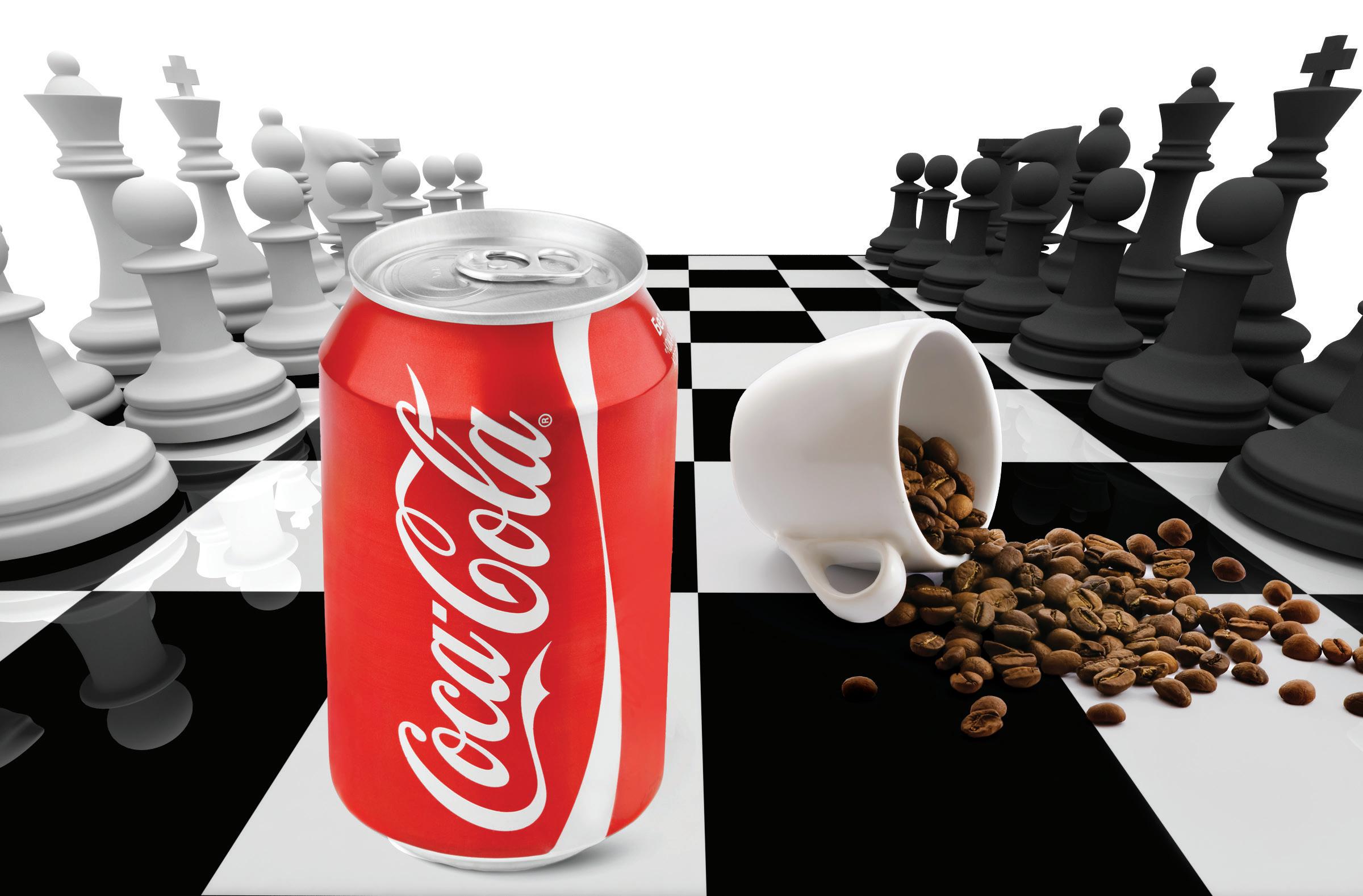
Some of us sitting high up in the peanut gallery have a tendency to give the benefit of the doubt to the strategics’ strategic strategizing even when the stratagems don’t entirely make sense to us. After all, those companies’ ranks are stacked with hundreds of MBAs. Thousands, maybe! They have access to reams of mysterious information, consumer and otherwise, that we get no glimpse of. They’re guided by directors who’re titans of their chosen business sectors. So who are we to quibble when new directions are unveiled that seem to be a bit beyond our comprehension? Surely they were exceedingly well thought out?
Once in a while, I start to question whether I’m being a bit naïve about that. After all, those business geniuses are driven by the same emotions, prejudices and FOMO as the rest of us. As consumer products specialists, they’re by definition obligated to chase the latest fads, whether those prove sustainable or not. Further, internal politics surely can trump cogent analysis when some of these decisions are being made. Some might be driven by the simple need to impress naïve investors with a sense that something dynamic is unfolding.
One of these “once in a whiles” has occurred just in recent weeks when strategies I’d presumed I was simply too obtuse to understand have been repudiated. One was Coca-Cola’s decision five years ago to bet $5 billion on making the foundation of its struggling US coffee business the addition of a humdrum UK chain called Costa that nobody here had ever heard of. So enthusiastic was it about this new direction that it unwound a nascent alliance it had forged with its innovation-adept partner on Java Monster, Monster Beverage, to play in coffee via such entries as Café Monster. A few years in, though, there’s no chain of Costa cafes on this side of the pond and Coke’s Costa-branded
RTDs haven’t gotten anywhere. True, the Costa brand has been at the heart of an inventive series of foodservice offerings, but one can question how much value the Costa name itself lends to the effort compared with an invented name. Now the company has indicated it will look elsewhere for its coffee platform and there have been reports it’s shopping the chain, at the likely cost of a steep writedown.
Then there’s the move seven years ago by hot-coffee giant Keurig Green Mountain to acquire the cold-beverage giant Dr Pepper Snapple Group and merge the two entities via a deal that its architect, Bob Gamgort, said looked beyond outdated notions of “traditional manufacturer-defined segments” in favor of consumer need states, which the merged companies would dominate. At the time, some analysts and investors questioned whether there really were synergies to be harvested from the combination but Gamgort conjured the heady scenario of an ecomm-adept company that was perfectly positioned to shake up a stodgy liquid refreshment realm. Those who didn’t see the deal’s logic needed to question whether they were in step with the new times, he implied. That said, credit Gamgort with having proved an adept operator of the former DPS, willing to make investments in its bottling system that his predecessors weren’t and pursuing a partner-brand strategy that is the envy of the industry. Things haven’t gone as well on the Keurig coffee side but some of the reasons for that have been outside his control.
Those synergies, though? By now it’s clear to everybody that there really weren’t any, and the company now is moving to break up that purportedly breakthrough combination after fortifying the coffee side with the planned acquisition of JDE Peet’s. I’ve found it amusing how the company has conveniently for-
gotten about all the hype that preceded the merger and is now describing the move to undo it as visionary, too. Shareholders clearly haven’t been buying that, with shares slumping 20% since Gamgort’s successor as CEO, Tim Cofer, made the announcement. Now the glib Gamgort has called a special investor day at which he will put his personal spin on the transactions to get investors in line. It should be noted that his breakup plan is among a slew of such moves as CPG giants like Kraft Heinz realize that the scale that comes from putting together a legion of legacy brands only gets you so far, with most growth still being grabbed by the long tail of disruptor brands. In fairness, unlike many of those, Gamgort has actually kept the LRB side of the company briskly growing. So it’s not clear that doing the deal and then undoing it will cost the company much traction.
Then there’s the case of PepsiCo, a floundering giant where there’s lots that can be questioned. Take its decision to pay $4 billion to acquire its fading partner brand Rockstar Energy in order to clear the path for an alliance with Bang Energy purveyor Jack Owoc, who was famous throughout the beverage business for not playing nicely with others. That “alliance” duly proved to be the disaster that many had predicted though Pepsi recovered nicely by pivoting to Celsius as a new partner. Credit it further with the self-awareness to lately make Celsius the steward of its entire energy portfolio, including Alani and Rockstar, in the way Coca-Cola has successfully done with its partner Monster.
Still, Pepsi’s sluggish performance has lately drawn the activist investor Elliott Management, whose critique includes zeroing in on a possible strategic misstep of omission rather than commis-
sion: PepsiCo’s disinclination to refranchise its bottling system in the way its rival Coca-Cola did, a move that seemed to coincide with a marked divergence in the two companies’ fortunes. What does Pepsi say to justify maintaining a unitary distribution system? Unlike his predecessor Indra Nooyi, CEO Ramon Laguarta hasn’t even felt a need to publicly offer a rationale for maintaining the system beyond the general avowal that he likes it that way. The move by Elliott seems to ensure that there at least will be a discussion again of the pros and cons of the two approaches. Of course, Pepsi’s weak performance since it acquired its bottlers has devalued the franchise rights, a situation that some have suggested provocatively might be remedied by a pickup of KDP’s LRB arm once that’s spun off next year.
How much do any of these strategic reversals really matter? Maybe not much in the big scheme of things. Certainly, they don’t seem to put the managers who made the decisions under much pressure. In beverages it’s hard to find many examples of where a poor strategic decision actually cost a CEO the job. Maybe Campbell Soup’s CEO following her disastrous acquisition of Bolthouse Farms? More commonly, CEOs are eased out not for any particular decision but just for their company’s continued sluggish performance. In that context, the incentives seem to align with making bold moves, even if they ultimately don’t pan out.
Longtime beverage-watcher Gerry Khermouch is executive editor of Beverage Business Insights, a twice-weekly e-newsletter covering the nonalcoholic beverage sector.
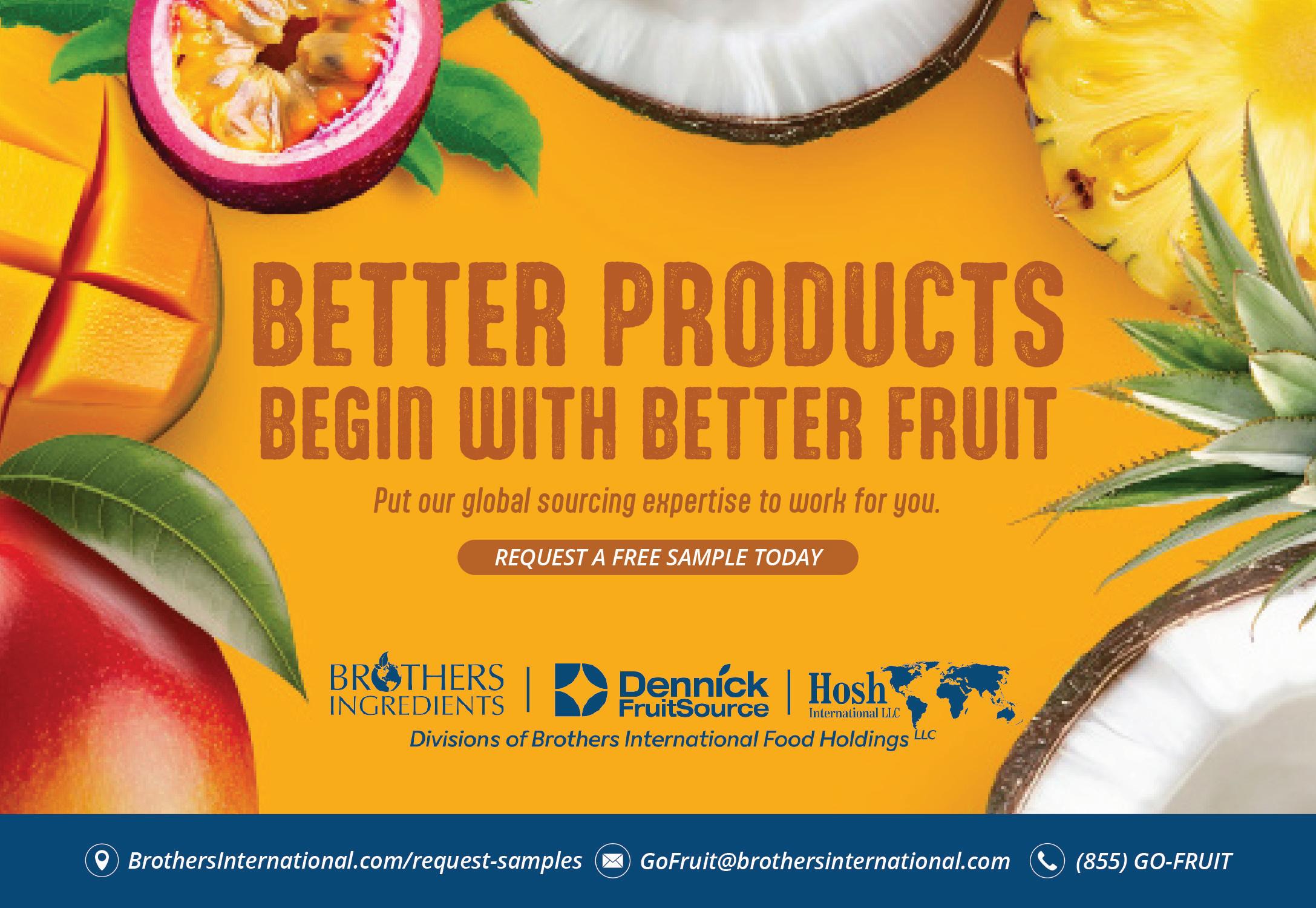


The thriving partnership between Celsius and PepsiCo is entering a new phase.
The two companies announced an expansion of their long-term strategic alliance in August that positions Celsius Holdings as PepsiCo’s “strategic energy lead in the U.S.,” placing the Celsius, Alani Nu and Rockstar Energy brands under its management, with PepsiCo distributing the full portfolio in the U.S. and Canada.

sumer and creates greater value for all our stakeholders.”
PepsiCo is also deepening its stake in Celsius Holdings to 11% through $585 million in newly issued convertible 5% preferred stock. The company will nominate an additional director to Celsius Holdings’ board of directors.
The deal builds upon Pepsi’s initial $550 million investment (8.5% ownership stake) in August 2022 as part of its distribution agreement.
“Stepping into the role of PepsiCo’s strategic energy drink captain in the U.S. is expected to be a pivotal milestone in our journey to shape the future of modern energy and grow our brands within a leading beverage distribution system,” said John Fieldly, Chairman and CEO of Celsius Holdings, in a prepared statement. “With a proven functional beverage portfolio and a stronger long-term partnership with PepsiCo, we believe that Celsius Holdings is well-positioned to deliver greater innovation, sharper execution and sustained brand growth. Together, we will reach more people, in more places, more often, with a total energy portfolio that offers options for every con-
As PepsiCo’s energy leader in the U.S., Celsius Holdings will drive a unified strategy across the energy portfolio through “seamless planogram design, SKU prioritization and promotional execution.”
“This agreement marks the next step in PepsiCo reshaping its brand portfolio to position us for long-term growth,” said Ram Krishnan, CEO PepsiCo Beverages U.S. “Energy is an important growth category, and we believe this move with our partner Celsius creates a stronger multi-brand energy portfolio that is better positioned to serve different consumer cohorts. This transaction creates an aligned incentive structure for both parties to bring their individual expertise to better compete in the energy category.”
The announcement confirms the future of Alani Nu distribution, one of the most pressing questions since Celsius bought the brand for $1.8 billion in February. Alani’s massive success — sales hit $301 million (+129%) in Q2, with share up 3.2 points from the same period last year — has come mainly on the back of independent beer DSDs, many of which
have been predicting it would eventually leave their portfolios. In a survey of beer distributors earlier this summer, 64% said they expected to lose the brand sometime in the near future. That cycle — growing in DSD before shifting to a major strategic — has been a major theme of the recent energy drink boom, driving consolidation at the top of the market. Outside of Red Bull, Coca-Cola (Monster, which also owns Bang), Keurig Dr Pepper (Ghost, C4, Bloom, Black Rifle) and now PepsiCo are collectively aligned with the energy category’s top ten brands.
The exchange is evocative of Coke’s alignment-seeking deal with Monster in 2015, in which Monster gained control of Coke’s energy brands like Full Throttle and NOS — the latter generating over $500 million in the 52-weeks ended July 3, 2025 — in exchange for the natural beverage portfolio it had grown as the original Hansen’s Beverage Co. But whereas previous strategic exits have opened up opportunities for smaller brands to fill the gaps on distributor’s trucks, the conditions now may be different as beer conglomerates seek to have their say. Molson Coors took full control of the much-hyped ZOA brand last November, while Anheuser Busch is currently in the midst of introducing Phorm Energy, its joint venture with UFC boss Dana White and supplement maker 1st Phorm. The brand announced it’s heading to 7-Eleven stores earlier in August.


Canadian drinks company Flow Beverage Corp., maker of Flow Water, entered a support agreement in early September with its foreclosing creditors to transfer ownership of the business and its assets. Under the plan, Flow’s old business will be “wounddown” while maintaining co-packing operations.
NFS Leasing Canada Inc. and RI Flow LLC have agreed to take control of the bottled water brand and beverage co-packing business following a default on debt repayments last month. The deal is pending court approval by the Ontario Superior Court of Justice.
The lenders have agreed to provide an undisclosed sum of bridge financing to Flow in order to maintain operations during the restructuring transaction.
According to the announcement in September, the support agreement comes after “an exhaustive strategic review conducted under the supervision of a special committee of independent directors, which considered all alternatives” to address Flow’s liquidity.
As part of the agreement, NFS Leasing Canada and RI Flow will jointly control Flow Beverage, likely through a new entity tentatively named “NewCo.”
The deal does not cancel out other debts incurred by Flow to other firms and businesses.
However, the end result appears to be to shut down Flow following the completion of the transaction. The release notes that Flow “and its subsidiaries and their remaining assets and liabilities will be wound-down under the supervision of the receiver and the Court pursuant to proceedings commenced under the Bankruptcy and Insolvency Act [of Canada].”
Paul Dowdall, CFO and a member of the interim CEO group running Flow, said in September that “the brand will continue (as it is an asset) but entities will be wound down after completion of the foreclosure.”

In a full statement, Dowdall noted that while the foreclosure process “limits what we can share today,” he highlighted that “the process is designed to restore stability and position the business for continuity.”
“During this brief period, our top priority is maintaining continuity for our existing co-packing and retail customers,” he added. “We are coordinating closely to minimize disruptions to the extent permitted by the process and will share updates as soon as possible once it concludes. Following completion of the foreclosure, we expect to emerge with strengthened sponsorship and liquidity and to evaluate capacity investments aimed at better serving current partners. Any consideration of additional co-packing opportunities would be incremental and capacitydependent, and not at the expense of existing relationships.”
Flow first announced it received a $2 million senior secured business purpose loan from NFS in May 2025, with a binding term sheet for an additional loan of up to $4 million. At the same time, Flow reported it entered an agreement with RI Flow for a secured convertible loan of up to $6 million.
A final tranche of $2 million loaned from RI Flow was announced on August 8. By August 25, the company said it was facing foreclosure from both lenders and that CEO Nicholas Reichenbach was being replaced in the chief executive role by an interim group of executives and directors.
Celsius Holdings, which was recently tapped by PepsiCo to be the company’s “strategic energy lead,” has appointed seasoned marketing executive Rishi Daing as CMO, effective September 8.
Most recently, Daing served as EVP of the Mark Anthony Group, where he spearheaded the launch of hydration beverage brand Más+ by Messi alongside global soccer star Lionel Messi. At Celsius Holdings, he will oversee marketing strategy across the company’s brand portfolio, aligning brand development, go-to-market execution and digital platforms.
“Rishi is a transformational leader with a proven track record of building and scaling iconic brands,” said Eric Hanson, president and COO of Celsius Holdings, in a statement. “As we continue to drive growth within our total energy portfolio – including Celsius, Alani Nu and Rockstar Energy – his expertise in innovation, data-driven marketing and international
expansion will be instrumental in unlocking new growth opportunities.”
In conjunction with Daing’s appointment, Celsius Holdings has established a marketing leadership team that includes Kyle Watson as chief brand officer and JoBeth Fink as chief creative officer. Watson had led marketing at the Boca Raton, Florida-based company since 2019, while Fink joined the company in 2025 through the Alani Nu acquisition.
In a press release, Celsius Holdings CEO John Fieldly said the appointments of Daing, Watson and Fink “reflect our commitment to building a world-class marketing organization capable of scaling our brands from big brands into mega brands.”
The better-for-you energy drink maker has seen explosive growth in recent months, in part fueled by its $1.8 billion acquisition of Alani Nu. In Q2, overall revenue jumped 84% year-over-
year ($739.3 million), while net income climbed 25% to $99.9 million.
Comparatively, the energy drink category as a whole experienced 16.3% dollar sales growth in the two-week period ending August 9, according to an analysis of NielsenIQ data by Goldman Sachs Equity Research. Category leader Monster Energy underperformed, with sales increasing just 9.3%.
Celsius Holdings has benefited from its flourishing partnership with PepsiCo, which recently deepened its stake to 11% through $585 million in newly issued convertible 5% preferred stock. The conglomerate plans to nominate an additional director to Celsius Holdings’ board of directors.
“Stepping into the role of PepsiCo’s strategic energy drink captain in the U.S. is expected to be a pivotal milestone in our journey to shape the future of modern energy and grow our brands within a leading beverage distribution system,” said Fieldly in a prepared statement.

Nutrabolt has taken a majority stake in Bloom Nutrition, positioning the parent company as a major platform across wellness CPG categories, including energy drinks and powdered supplements.
The Texas-based company, best known for its C4 brand of energy drinks and pre-workout supplements, led a $90 million investment round in Bloom in January 2024 for a 20% stake. That served as the springboard for the successful launch of Bloom’s first RTD, Sparkling Energy, in 2024, with a second line, prebiotic soda Bloom Pop, added this summer. Both products are distributed through Nutrabolt’s partnership with Keurig Dr Pepper (KDP).
Nutrabolt did not confirm its ownership in Bloom, but verified its total investment as over $200 million, which would bring its stake to over 50%.
“Since our first introduction to Bloom, I’ve been continually impressed by the brand’s evolution, its visionary founders, and their explosive growth,” said Doss Cunningham, Chairman and CEO of Nutrabolt, in a prepared statement.
“With the breakout success of Bloom Pop and a recordbreaking year for Bloom Sparkling Energy, the brand’s momentum presents a powerful step-change growth opportunity for Nutrabolt,” he said. “I’m confident Bloom is on track to become one of the fastest-growing and most talked-about beverage brands in the years ahead.”
Amidst a wave of digital-native wellness supplements that have emerged over the past decade, female-focused Bloom has found staying power thanks in part to its active social media following and organic support from TikTok creators. Its products are sold in Walmart, Target, GNC, Whole Foods and other retailers.
Bloom’s co-founders -- president Mari Llewellyn and CEO Greg LaVecchia -- will remain in their current roles.
“We’re incredibly proud of the momentum we’ve built and the community we’ve cultivated,” said LaVecchia. “Nutrabolt has been a valuable partner – fully aligned in our mission and a genuine champion of our brand. With this expanded partnership, we’re excited to enter our next phase of growth and create something truly meaningful together.”
With the combination of C4 and Bloom, Nutrabolt’s portfolio covers a broad range of product categories, audiences and use occasions.
That’s particularly relevant for coveted female consumers, an audience with which Bloom has created strong affinity, both through its branding aesthetic and products tied to skin health and beauty. The online momentum from those niche functional areas has carried over through its move into the mainstream with RTDs: in less than a year on the market, Bloom Sparkling Energy has generated over $95 million in sales – well clear of its closest competitor, Zoa –according to NielsenIQ data through July 3, 2025.
That experience helped Bloom forge relationships with top-class manufacturers and create a go-to-market playbook that it replicated for the introduction of Bloom Pop this year, LaVecchia told BevNET in July.
The move comes amidst category consolidation; the current landscape recalls Renaissance Italy, with a handful of
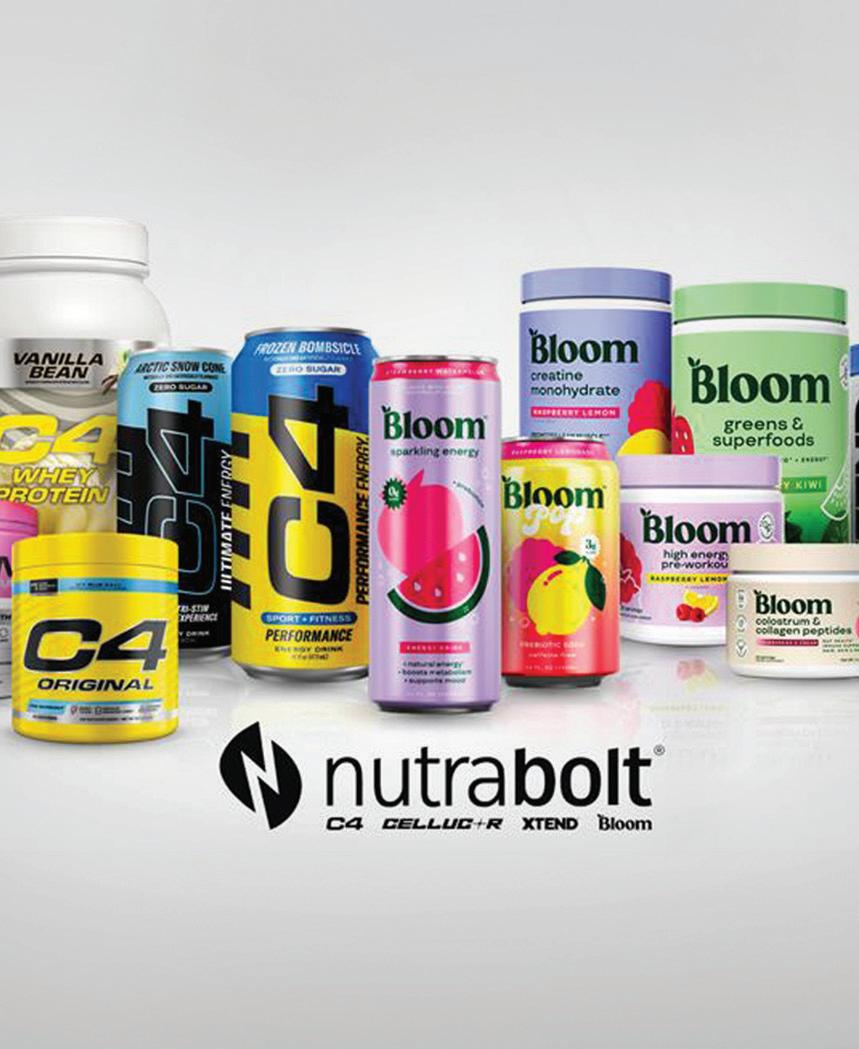
ultra-wealthy families spreading their patronage amongst a select group of high performers.
Celsius, the third-place brand behind Red Bull and Coca-Cola-affiliated Monster, acquired Alani Nu -- another fitness-focused supplement brand that broke through to mainstream consumers with its RTD energy drink -- for $1.8 billion in February.
Its parent company, Celsius Holdings, now acts as the ‘strategic lead’ for distributor PepsiCo, managing Celsius, Alani Nu and Rockstar, representing a nearly 20% share of the U.S. energy drink market. Global beer conglomerates Molson Coors (Zoa) and Anheuser-Busch InBev (Phorm Energy) have also dived in.
What does this mean for Nutrabolt’s relationship with its backer? KDP took a 30% stake in the nutrition company as part of its $863 million strategic pact in 2022; Nutrabolt’s value has increased significantly since then, meaning any potential bid for full control by KDP would well surpass the $990 million it paid to acquire Ghost in October 2024.
“I’d be watching for KDP to correct the C4 Energy ownership/incentive misalignment that was caused by their GHOST acquisition,” independent consultant Joshua Schall told us back in February in reaction to Celsius’ acquisition of Alani Nu.
Indeed, KDP’s aggressive expansion across categories in recent years may create some traffic issues; in energy drinks alone, the company distributes products by C4, Ghost, Bloom and Black Rifle. With each of those individual brands eager to expand their respective platform, it’s unclear how product innovation will be paced or where it will be funnelled; Ghost, for example, is set to reveal its first protein bar in September.
Kendall Jenner’s 818 Tequila has landed additional investment and named a new CEO.
In August, the tequila brand’s parent company, Calabasas Beverage Company (CBC), announced that it had received a strategic investment from the Pérez family, owners of Grupo Solave, the company in Jalisco, Mexico that produces 818 Tequila, according to an announcement today. Terms of the deal were not disclosed.

Grupo Solave has been growing agaves for four generations in Jalisco and is now the largest family-owned agave grower in Mexico, according to a press release. The company will now become a part-owner of 818 Tequila. Brands such as Astral Tequila, Don Gato and ready-to-drink (RTD) cocktail Onda are also made at Grupo Solave’s distillery.
Hecho Tequila Soda, a RTD brand that appears to be off the market, also received a strategic investment from Grupo Solave and signed a bulk tequila supply agreement in 2022.
Grupo Solave is a subsidiary of OLEOMEX, a Mexican company with business ventures in edible oils, margarine and agave products, among others.
CBC (also the parent company of Kylie Jenner’s Sprinter) used the occasion to reveal the appointment of a new CEO. Larry Goodrich, former chairman of CBC. The Southern Glazer’s veteran previously served as CEO of 818 Tequila during the brand’s formative years and early expansion.
Meanwhile, previous CBC CEO Michael Novy stepped into the CEO role for the top moonshine and flavored whiskey maker, Ole Smoky, which also owns Tanteo Tequila. He served as president and COO of CBC from the company’s start in 2021 until July 2024, when he moved up to CEO.
818 Tequila’s leadership change comes on the heels of a portfolio expansion this month: 818 Minis – 50 mL bottles of its Reposado and Blanco expressions. The mini line is another trend-savvy release from the reality TV star-turned-entrepreneur, including a past collaboration with influencer Emma Chamberlain on an espresso martini kit. Clearly aiming to tap into the need for portable, low-commitment spirit offerings, the minis also fit squarely into collectable, customizable trinket trends led by Gen Z.
On social media, the brand has positioned the minis as accessories, encouraging consumers to clip the bottles to purses and phone cases. Limited edition bundles debuted earlier this month on Gopuff featuring collectible custom 818 Minis Bag Charms that hold one 818 Mini. The line will later roll out nationwide at liquor stores such as Total Wine & More and BevMo in September.
Mini formats and RTDs have fared better in recent years than larger format sales in many spirit categories. Tequila, vodka, cordials, and whiskey are leading growth within the minis segment, according to NIQ.
818 Tequila sales are up 17% year-over-year in the four weeks ending May 17, 2025, according to NIQ.

Hold on to your coffee cups. Keurig Dr Pepper (KDP) is solidifying its position as one of the world’s largest coffee companies in announcing an $18 billion deal to acquire JDE Peet’s, expected to close in early 2026.

The transaction will divide KDP into two independent public companies, one exclusively for the coffee business (“Global Coffee Co.”) and another focused on beverage refreshment (“Beverage Co.”). KDP CEO Tim Cofer will lead Beverage Co. from Frisco, Tex., while KDP CFO and president Sudhanshu Priyadarshi will be Global Coffee Co.’s chief executive, from Amsterdam, Netherlands.
Following the split, the coffee division is expected to generate $16 billion in annual net sales, while Beverage Co. forecasts approximately $11 billion.
The consolidation of KDP’s coffee business will expand its current portfolio to more international markets in over 100 countries. Upon separation, the coffee division will be diversified geographically with about 40% share in both North America and Europe, respectively, and 20% throughout the rest of the world.
“You can think about it as one plus one equals three,” said Cofer during a conference call. “What we do at Keurig and our innovation capabilities with machines and brewers, and how we can bring that knowledge and technology to places like Sensio and Tassimo. On the other side, JDE Peet’s has a greater global scale and gives us access to expanding big ideas, some of which are in our pipeline. I think together, it really will be an unparalleled portfolio that’s stronger and more resilient.”
Despite the elevated price of green coffee and the impact of tariffs on Brazilian coffee exports, Cofer expressed optimism for going deeper in the set. Net sales were down 0.2% to $0.9 billion, in Q2 earnings call in August. International sales also trailed 1.8% to around $0.6 billion.
“I’m on record: We like the coffee category. Why? It’s huge, it’s ubiquitous, it’s a $400 billion TAM, and it’s a resilient grower,” Cofer said in response to a question about selling KDP’s coffee business over acquiring JDE Peet’s. “Here in this country, we’re seeing [coffee] begin to turn around. We would be selling a business that’s just beginning to turn around at a low multiple.”
In July’s Q2 report, Cofer explained that there was “sequential improvement” trends for KDP’s U.S. Coffee segment as “incremental pricing” has helped offset inflation and “volume remained resilient.” The company had announced that additional pricing actions would take effect during Q3.
In an analysis, Jefferies’ analysts reported that the acquisition is a “good deal” and “recent pressure on (the) coffee biz is irrelevant, this is about growing within a $400b category - a category that is innovating and thus fragmenting in formats and channels. A globally diversified operation makes sense.”
The acquisition will allow KDP’s beverage division to focus on its direct-store delivery network across the U.S. and Mexico. KDP’s portfolio of soda, juice, energy and other nonalcoholic beverages will benefit from “multiple paths to win,” Cofer said.
Along with its distribution deal with C4 Energy and high-growth drink and supplement brand Bloom, KDP has made a series of acquisitions in the last year to solidify and diversify its reach in beverage. In July, KDP acquired drink mix manufacturer Dyla Brands –producer of Stur– and energy drink and sports nutrition business GHOST in November.
“We have a proven buy-build partner model, and that means we don’t take a one-sizefits-alll approach,” he said. “We stay agile and flexible in looking at where are the growth spaces, where are the opportunities to add positions, what’s best for that partner and how can we do it in a highly capital-efficient way.”
PepsiCo is facing pressure from an activist investor to make a broad series of strategic changes, including restructuring its beverage division to welcome franchise bottlers back into the fold.
Elliott Investment Management, which holds a $4 billion stake in PepsiCo, sent a letter to Pepsi’s board of directors in September outlining a five-point plan to address “poor operational results, sharp stock-price underperformance and a meaningfully discounted valuation.” If enacted, the firm said, the changes could send Pepsi shares up at least 50% and restore organic growth revenue to mid-single-digits.
“PepsiCo finds itself at a critical inflection point. The Company has an opportunity – and an obligation – to improve financial performance and regain its position as an industry leader,” read the letter, signed by Elliott partner Marc Steinberg and managing partner Jesse Cohn.
The letter criticizes Pepsi Beverages North America (PBNA) for lagging behind chief rivals CocaCola and Keurig Dr Pepper (KDP) by continuing to “underinvest” in its core CSDs; there’s also several billions in impairment on the books from its purchase of Rockstar and Sodastream. Dr Pepper notably surpassed Pepsi as the second most-popular soda by market share in 2023, and despite big-ticket category acquisitions like Poppi, analysts cited in Elliott’s presentation are skeptical PBNA has a path to hit its longterm target for mid-teen operating margins (currently 11%).
Specifically, innovation under new acquired or launched brands has “fallen short” despite high SKU proliferation: according to Elliott’s presentation, PBNA has approximately 70% more SKUs than
Coca-Cola but is generating roughly 15% less retail sales.
Pepsi’s latest release, Pepsi Prebiotic, is set to launch online this fall.
In response, Elliott is pushing for Pepsi to explore potentially shifting back into a franchise bottling system as a means to “allow each business to focus on its core competencies.” The soda giant transitioned to a network of corporate-owned bottlers, buying Pepsi Bottling Group and Pepsi Americas in 2009, as a means to tighten control over operations, but the result has been “weaker price-pack management, slower regional innovation and poorer instore execution,” according to the presentation. The lack of checks and balances from a third-party partner has contributed to PBNA losing “focus and discipline.”
That should be complemented by a review of brand and SKU portfolios with an eye towards “reducing operational complexity,” while also divesting non-core and underperforming assets to help boost profit margins and freeing up capital for redeployment elsewhere.
Pepsi upped its stake in energy drink brand Celsius last week to 11% (+$585 million); as part of the deal, Celsius Holdings will manage the business for Alani Nu and Rockstar Energy and its namesake brand, with Pepsi distributing the full portfolio in the U.S. and Canada.
PepsiCo Foods North America (PFNA) should also be recalibrated, Elliott argued. The company’s aggressive investment strategy (criticized as “well beyond the needs of the current environment”) has failed to generate the anticipated growth and subsequently compressed margins. Yet the answer isn’t necessarily to spend less, but more strategically. Cutting operational costs and spending will free up capital for reinvestment in core brands and bolt-on acquisitions, said Elliott, noting it’s a model that already once helped PFNA jump-start growth in the early 2010s.
As for which brands should be on the chopping block, Elliott’s presentation notes that although its acquisition brought Gatorade into the fold, Quaker’s portfolio has “few, if any, synergies” with Frito Lay’s salty snacks, an area where PFNA has “true competitive advantage.”

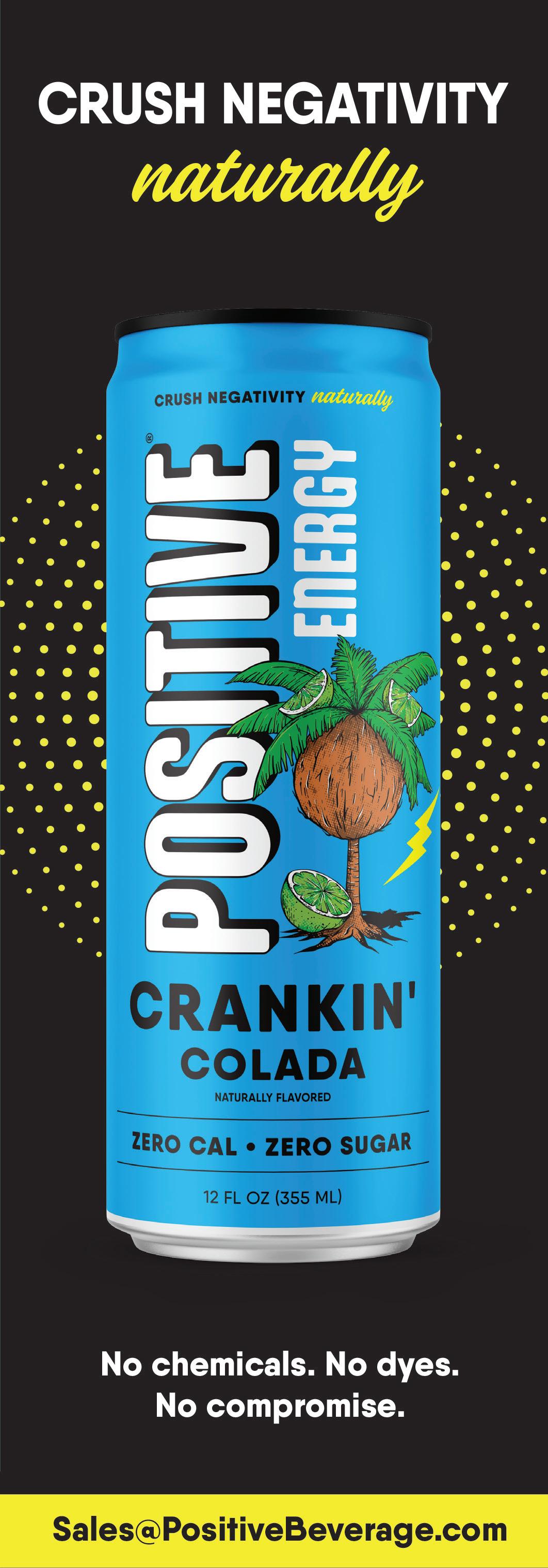
Mycelium-based alternative protein producer The Better Meat Co. (BMC), announced it closed an oversubscribed $31 million round of Series A funding co-led by Future Ventures and Resilience Reserve with participation from Hickman’s Family Farms’ CEO Glenn Hickman, Epic Ventures, Sigma Ventures, and other existing and new investors.
The new cash will enable the Sacramento, Calif.-based company to scale its patented mycoprotein fermentation process to commercial levels that will also allow it to compete with U.S. commodity ground beef. The company said it plans to sell its ingredient at prices lower than the animal-based commodity within 2026. Those projections were made possible by achieving what is known as “continuous fermentation,” which the company claims is the “holy grail in our sector” and enabled it to cut production costs by more than 30%.
While others in the space have struggled to build consumer-facing brands around their alternative protein inputs, BMC continues to take an industry-centric approach, reemphasizing its
alignment with U.S. meat companies alongside the funding announcement. According to the company, it has five signed letters of intent for future orders “from some of the biggest meat companies on the planet.”
BMC also claims its Rhiza input is the only mycoprotein considered “safe and suitable” for inclusion in animal meat, per the U.S. Department of Agriculture; the company has also secured regulatory approval from the U.S. Food and Drug Administration. The company has also recently secured a handful of new patents and international regulatory approvals.
“We’ve invented and patented our tech, received regulatory approval, scaled to a demonstration plant, and proven demand exists for Rhiza mycoprotein. It’s now time to fully commercialize and introduce our new crop that will help the protein industry cut costs and improve nutritionals, all with a much lighter footprint,” said CEO Paul Shapiro, in a press release. “I’m so proud of our team that’s led us to this critical milestone.”
The new capital will scale production capacity at its West Sacramento, Calif., facility approximately ten-fold, the company claims; currently, BMC operates a 9,000-liter demonstration-scale fermentation facility at that site. Glenn Hickman of
Hickman’s Family Farms and Future Ventures co-founder Steve Jurvetson will also join the company’s board of directors.
“The world needs better ways to make protein, and The Better Meat Co. has invented one of the most efficient – and delicious – ways to do it,” Jurvetson said in the press release.
The news comes at a tumultuous time for the alternative protein sector. Earlier this year, BMC competitor Meati, which it was once wrapped into a legal battle with over allegedly stolen trade secrets, lost its primary source of funding after failing to meet a revenue target and was on the verge of shuttering before it sold for $4 million in May; the company had raised nearly $450 million in total funding.
Elsewhere, rumors have swirled about the future of Beyond (f.k.a. Beyond Meat) after the company reported yet another quarter of sales declines, laid off 6% of its workforce and onboarded John Boken, managing director in the Turnaround and Restructuring Services practice at AlixPartners, to lead its transformation efforts.
All the while, blended meat products, once seen as lacking a target audience and product-market fit in comparison to pure plant-based proteins, have gained momentum in foodservice under the term “balanced protein.”
Frozen french fry brand Jesse & Ben’s House Cut secured a “sevenfigure” investment round to support its expanded retail footprint.
The undisclosed, oversubscribed seed round is the first institutional funding for the Washington D.C.-based brand. The “party round,” as co-founder and CEO Jesse Konig called it, brought in a diverse pool of strategic partners like Willow Growth Partners, BrandProject, Midnight Venture Partners, Supernatural Ventures, Siddhi Capital, grt sht ventures, Olipop investor Carter Comstock, Orgain founder Andrew Abraham, and content maker couple Lauryn and Michael Bosstick.
“No one’s coming in with $10,000 or $25,000 checks; they’re all generally wanting to have some skin in the game,” Konig added.
Jesse & Ben’s self-manufactures its beef tallow and avocado oil fried potatoes. The funding round needed to come together quickly to support inventory growth for the two national placements – Sprouts Farmers Market and Whole Foods Market – secured in December and January.
“It was a bit of an overwhelming process,” Konig told Nosh. “We had to get our ducks in a row very quickly. We went out to start our fundraising process in February and had it all wrapped up in May, including the due diligence and all the other ridiculous parts of the process that usually take a long time.”
A little over a year since its launch, Jesse & Ben’s will now be in over 1,500 retail doors, including Sprouts, Whole Foods and
Fresh Thyme. The brand is also now available on Thrive Market, which allows Jesse & Ben’s to reach consumers where a retail partner is unavailable.

College friends and entrepreneurial partners Konig and Ben Johnson didn’t initially intend to disrupt “Big Potato’s” hold on the frozen fries category, but has found there is a hungry consumer base for seed oil- and additive-free options. The brand currently makes three SKUs – Classic Sea Salt, Rosemary Garlic and Tallow & Sea Salt – available in 14 oz. bags.
As part of its retail expansion, the brand is investing in its sourcing, manufacturing and inventory as it opens up 20 new distribution centers.
The brand has found a “groundswell” of interest, particularly in organic social media posts, which has fueled its growth so far, Konig said.
“The interest stems from people seeking simpler foods where they can read the back of the bag and understand every ingredient. There’s certainly some die-hard people who are just trying to get access to a fun nostalgia food, like a french fry, that meets their needs without using things like ultraprocessed seed oils.”

Organic skyr yogurt brand Painterland Sisters closed a seven-figure seed round led by The Angel Group, its partner fund Supernatural Ventures, and Spacestation Investments. The round also included participation from Scoop Ventures and independent angel investors, including Olympic medalists and lifestyle entrepreneurs.
Painterland Sisters is the fastest-growing dairy brand in the natural expanded channel in terms of dollar growth, per SPINS data.
The Pennsylvania-based brand was founded three years ago by sisters Hayley and Stephanie Painter in an effort to preserve, showcase and utilize their family’s organic regenerative dairy farm. Their ultimate goal is to connect consumers with the source of their food: American farmers.
Available in a variety of flavors, including Strawberry Fields, Meadow Berry and Blueberry Lemon, its lactosefree products contain up to 21 grams of protein per cup with gut-friendly probiotics. Additionally, the yogurt is made from pasture-raised dairy and is non-GMO and free from antibiotics, hormones and synthetic chemicals.
In August, Painterland Sisters landed on Whole Foods Market shelves nationwide, bringing its total door count to over 5,000, including Giant, Fresh Thyme and Costco, among others. As it continues to expand its distribution footprint, the brand will use the fresh funding to support operations and innovation.
The brand previously raised $1.2 million through a Wefunder campaign in February 2024 that included over 700 investors.
Opportunity in the yogurt category is plentiful. As of 2024, North America is the third leading region for both dairy and non-dairy yogurt sales value, according to market researcher Innova Market Insights. Vitamin/mineral fortified, lactose-free and organic claims are among the top positionings in the segment.
The space has seen various M&A activity over the past year, with Lakeview Farms and its recently-acquired noosa brand merging to form Novus Foods, as well as General Mills selling its North American yogurt business to French dairy companies Lactalis and Sodiaal in cash deals valued at an aggregated $2.1 billion.

Mooski Secures $1.5 Million to Scale Chilled Oat Bar Production Amid Triple-digit Growth
Chilled oat bar brand Mooski landed a $1.5 million Series A investment round from an angel investor who previously participated in the brand’s seed round. The investor has extensive experience in the refrigerated bar category, which founder and CEO Robert Broome called “extremely advantageous” for the brand.
Having established product-market fit, Mooski will use the fresh funds to accelerate scaling efforts from a sales, operations and marketing standpoint. The company is currently experiencing its second consecutive year of triple-digit growth, and the capital infusion will help cover expenses associated with that boom, including trade spend and slotting fees.

Mooski will also deploy the capital to fund larger, more frequent production runs necessary to meet demand. Most importantly, said Broome, the brand will invest in marketing efforts to generate greater awareness alongside its recent distribution gains.
“We have a unique and larger-than-life mascot, Alpy, that gives our brand an added layer of character and depth that transcends product. Our goal with these funds is to leverage Alpy in a bigger way and across more marketing touchpoints – social, experiential, partnerships, etc. – to drive awareness and intrigue about Mooski,” Broome told Nosh via email.
Broome – who previously held marketing and innovation roles at Clio and RXBAR – founded Mooski in 2022 on a mission to clean up the granola bar category by focusing on a short, clean ingredient deck and low-sugar, low-calorie positioning. Available in three flavors – Chocolate Peanut Butter, Cookie Dough and Peanut Butter Banana – the bars are a portable spin on muesli that feature 5 grams of protein per serving.
The startup has expanded its brick-and-mortar retail footprint to nearly 1,000 stores across the country since launch. This year, Mooski introduced its products into New Seasons, Woodman’s and Baron’s Market and broke into national retailers for the first time, including launches at Albertsons’ Pavilions division and Kroger, Mariano’s and Roundy’s stores.
The distribution push has, in part, been fueled by a shift in the brand’s manufacturing strategy. In 2023, Mooski pivoted from self-producing in San Diego to working with a comanufacturer in the Midwest.
“Our switch to a co-man was exactly what we needed to scale the brand. Not [just] because it increased our capacity tremendously – but it also improved our margins and allowed us to focus on other areas of the business at a time when our self-manufacturing was consuming a lot of time, energy and resources,” said Broome.
Mooski has also established a strong presence in the online grocery channel through partnerships with Hungry-
root, Misfits Market and Thrive Market. As a perishable brand, the channel allows Mooski to get its products into consumers’ hands without having to manage its own cold chain direct-to-consumer (DTC) operation. According to Broome, the brand’s online grocery partners have the scale to get its products to customers at the right price and at a margin that is, on average, higher than retail.
“These partnerships also allow us to acquire new customers in areas where we don’t yet have retail distribution. Building this national consumer base will only help our retail efforts when we do expand into more places,” said Broome, adding that while the majority of Mooski’s revenue is still retail-based, online grocery is a “healthy and growing” chunk of its business.
The U.S. snack bar market (spanning snack, nutrition and performance bars) is forecasted to reach $9.6 billion by 2029, according to a recent report from Mintel. Bars are not yet the top snacking choice, but the category excels in its perception as a better-for-you option, effectively addressing consumer health needs.
Significant opportunity lies in the refrigerated subcategory, with upstart bars like MUSH and Mid-day Squares also seeking to capture consumer demand for convenient, versatile snack options with an emphasis on unique flavors, textures and formats.
Looking ahead, Mooski will spend the back half of the year focused on strategically entering new doors, as “not every channel or retail banner will be the best fit for our product,” said Broome. The brand has identified a list of specific retailers in which it believes its chilled bars will resonate with consumers, and will strictly be pursuing these accounts.
From an R&D standpoint, Broome said Mooski’s goals are two-fold: “One, continue to make our current product better, as we firmly believe that a consistently excellent product will sell itself. Two, launch new innovations that will both expand our shelf presence and open us up to new occasions.”
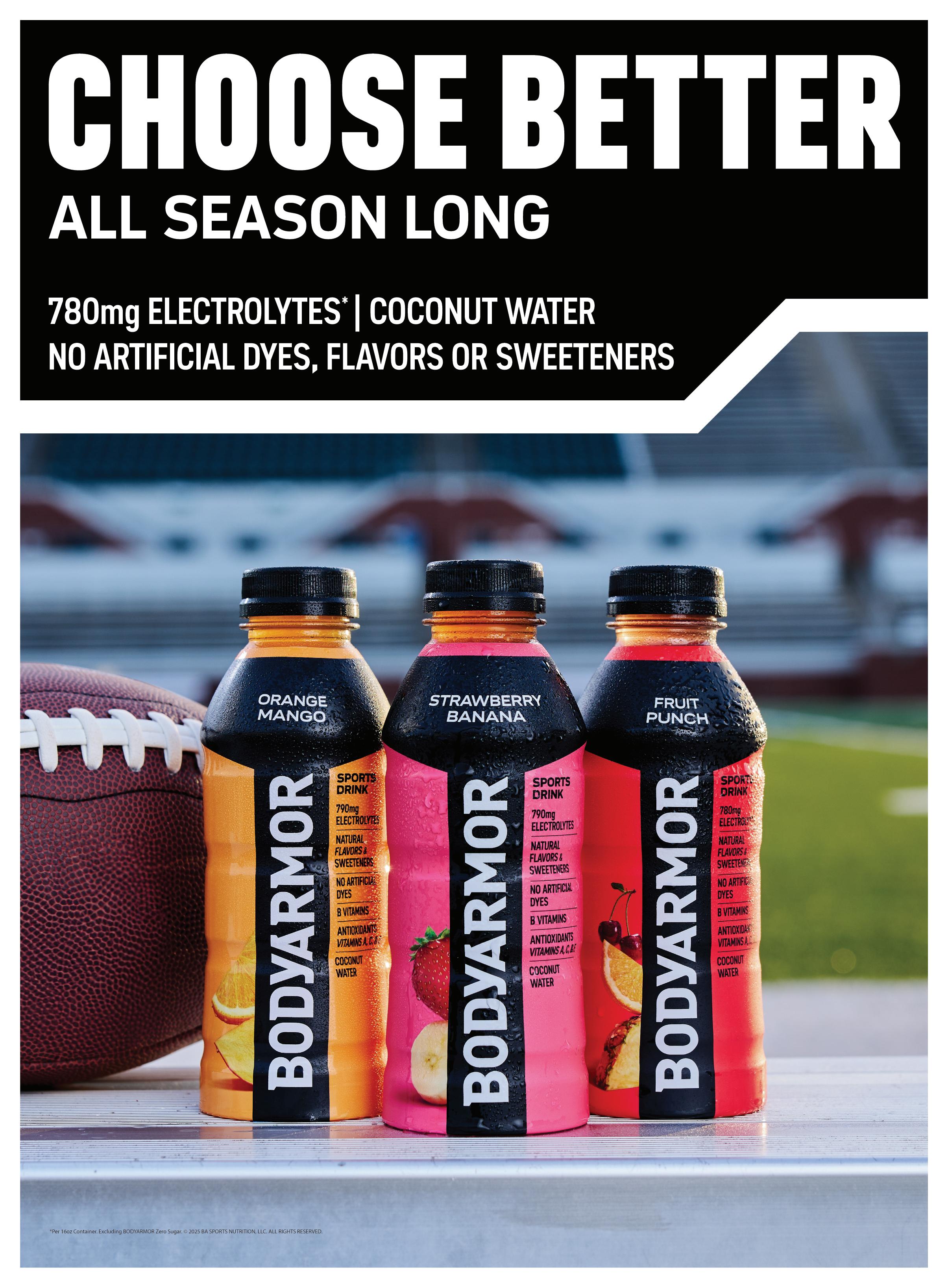
Plant-based poultry producer Daring Foods was acquired by Australian alt-protein company v2food, with backing by Ajinomoto Co, Inc. Financial terms of the transaction were not disclosed.
Jeff Gendelman, CEO of Daring Foods, told Nosh the partnership will leverage the scale and frozen food expertise of Ajinomoto and the proprietary protein technology of v2food, bringing the brand into new protein formats and meal occasions across retail and foodservice channels.
Since its inception, Daring Foods has used high-moisture extrusion technology to make plant-based takes on chicken formulated with a short list of simple ingredients including soy, vegetable oil and natural flavors and spices.

Joining forces with v2food unlocks a range of solutions for developing and manufacturing a broader platform of plant-based products beyond its current assortment of frozen breaded and unbreaded pieces and wings, as well as a line of single-serve vegetarian meals.
“We want to own clean plant protein,” Gendelman said. “That’s our focus.”
Ajinomoto operates a billion-dollar frozen foods business in the U.S. –with brands including Ling Ling, Jose Ole and Tai Pei – and offers significant advantages in distribution and retail execution, Gendelman said.
According to Gendelman, Daring Foods’ products are sold in “north of 16,000 to 17,000” retail doors nationwide, having gained distribution over the past few years. He said the company has achieved a 24% compound annual growth rate since 2021 and boasts a high repeat rate among top plantbased meat alternative brands.
“We’re very proud of that growth in a space that’s been contracting,” he said.
Though many Americans have tried plant-based meat and expressed interest in the category, a minority of consumers purchase these products regularly, according to the Good Food Institute (GFI). Taste and price expectations play a large role in adoption, but benefits around health and nutrition are also important in motivating consumers to switch.
Beyond Meat’s recent struggles have illuminated many of the barriers to growth for plant-based foods, including price and a negative narrative surrounding the health impacts of highly processed meat alternatives.
“This space should have been built much more thoughtfully, paying more attention to the fact that the consumer was looking for healthy products, too,” Gendelman said. “A lot of businesses invested too heavily in the supply curve before the demand curve came to fruition.”
Daring Foods has raised $113.8 million in total funding since its founding seven years ago, according to Crunchbase, which included a $65 million Series C round led by Founders Fund alongside existing investor D1 Capital Group. Its
backers include celebrities and professional athletes such as Drake, Naomi Osaka, Cam Newton and Steve Aoki.
Gendelman told Nosh he will remain in his role leading the business to help “turbocharge growth” and that the brand will “feel and look the same as it did the day before the close.” He assumed leadership of the Los Angeles-based company after its founder and former CEO Ross Mackay stepped down to launch the hydration brand Cadence.
“We will continue to operate here in the U.S. not as an independent brand but one that can execute on its own objectives,” he said, adding, “The team has done an amazing job to continue to roll into this next chapter holding hands.”
Like countless other CPG brands – including giants like Hershey and Mondelēz International – SkinnyDipped has been forced to navigate surging cocoa prices over the past few years. However, by pinpointing efficiencies throughout its supply chain, the company has maintained pricing amidst the commodity crisis.
“Our goal was to not raise prices, because we know that there has been a significant impact already on the end of the consumer in terms of inflation. Everyone sees it on that grocery bill,” said Griffith. “So we are doing everything we can as a brand to hold pricing for our consumer.”
SkinnyDipped will spend the back half of the year focused on expanding distribution for its coconut bites, which have already had “incredible reception,” according to Griffith, citing Amazon data and reactions from retailers. The company will also work to build out its presence in the c-store channel and foodservice, which is a “huge unlock.”

For about six months, Saffron Road was under construction.
The frozen meal maker introduced its “most ambitious brand refresh” in its 15-year history, according to founder and CEO Adnan Durrani, as it aims to align with today’s consumer trends, including the growing anti-seed oil sentiment and an insatiable appetite for protein.
Saffron Road’s renovated product line, which rolled out in August to retailers nationwide, features reformulated recipes – eliminating canola and soybean oils and adding, in some cases, twice as much chicken or lamb – and a bold new look that integrates artwork that reflects the brand’s global heritage. The Certified B Corp also is transitioning to plant-based and compostable fiber trays to strengthen its commitment to sustainability.
While the brand was built on introducing international flavors to the freezer aisle – with cuisines spanning Indian, Korean, Thai, Mexican, Moroccan and more – its core consumers are “modern millennials and aspirational baby boomers” who are seeking more nutritious, premium options in the set, Durrani told Nosh.
The latest changes were informed by a “very deep dive” using retail tracking data, panel studies and consumer surveys over the past year, he said. Transitioning away from seed oils has been in the works for more than five years, long before they were deemed unhealthful by the Make America Healthy Again (MAHA) movement, he added.
“Our research and the data reveals that the opportune time [to remove seed oils] was now,” he said. “Why? MAHA’s mandates align with Saffron Road’s of reducing harmful food additives, potentially aligning U.S. standards closer to Europe’s more stringent
regulations, and promoting fresh, minimally processed foods.”
Moreover, the rising adoption of weight loss medications marketed under names such as Ozempic, Wegovy and Mounjaro has fueled demand for products with higher protein density and portion control, he added.
“… with now as much as 10% of Americans on GLP-1 drugs, that is a very large cohort that cannot be ignored,” he said. Homing in on these attributes “maps very nicely with a material percentage of our core consumers as well as aligns with non-core modern millennials that we are also looking to bring into the Saffron Road brand.”
As a growing number of restaurant and retail brands ditch seed oils, the frozen food category has lagged behind, Durrani claimed. Saffron Road is the first Seed Oil Free Certified frozen entree in the market, he said.
To support the renovation, Saffron Road is launching a fullfunnel marketing campaign that includes television, paid search, digital video and influencer activation, Durrani said.
The company has also created a curated insiders club, dubbed Saffron Roadies, that already comprises more than 2,500 brand ambassadors and will engage consumers through targeted social campaigns and dietary apps like Yuka and Seed Oil Scout, he said.
“Today’s most influential marketing doesn’t always come from big ad budgets — it comes from real people sharing real enthusiasm who are authentically passionate,” Durrani said. “Saffron Roadies will be trusted voices within their communities, and by tapping into that network, we’re building authentic advocacy at scale.”
Amylu Foods secured an investment from TowerBrook Capital Partners and Prelude Growth Partners that will support continued retail expansion.
Dating back just over a century, Chicago-based Amylu Foods manufactures value-added chicken products including sausages, meatballs and burgers that are sold under the Amylu brand and private label. The company produces dozens of offerings featuring organic, antibiotic-free and nitrate-free claims. Earlier this year, the brand unveiled Frozen Breakfast Patties and an Organic Chicken Sausage line.
Last year, Amylu Foods acquired Klement’s Sausage Company, diversifying its portfolio into new categories, including snack sticks and summer sausages, while enhancing its production capacity.
The company said it plans to leverage its partnership with TowerBrook to further scale operations and expand across channels.
“At Amylu, our success has always been built on delivering great-tasting, cleaningredient products that our consumers genuinely love and trust. This partner-
ship with TowerBrook is the natural next step for our growth strategy, and we’re confident they’re the right partner to help us expand our business across the nation given their strong track record of scaling food businesses, particularly in the protein space,” said Steven Zoll, CEO of Amylu Foods, in a press release.
A Certified B Corporation, TowerBrook Capital Partners has $23 billion of assets under management and invests in businesses across multiple sectors in Europe and North America spanning consumer products and services, financial services, business services and healthcare.
“Amylu’s long-standing commitment to quality, innovation, and health-conscious convenience has earned it a strong reputation in the industry and outstanding commercial momentum,” said Michael Recht, managing director of TowerBrook, in the release. “We look forward to partnering with Steve and the Amylu team to continue to build upon the company’s legacy of delivering unique products to its loyal consumers.”
Sidley Austin served as legal counsel to

TowerBrook. J.P. Morgan and Winston & Strawn acted as financial advisor and legal counsel, respectively, to Amylu Foods. Prelude Growth Partners, a leading consumer-focused growth equity firm, this week announced the close of its third fund with $600 million in total commitments, bringing its total assets under management to $1.3 billion. The group supports “brands made for the new modern consumer” by providing category experience and value-added operational support. Its food and beverage investment portfolio includes Riverside Natural Foods (Made Good), Bachan’s, So Good So You, Banza and Fly By Jing.

21st Amendment Brewery is ceasing operations after 25 years, as founders Shaun O’Sullivan and Nico Freccia seek a buyer for the legacy craft beer brand.
The California craft brewery will wind down operations at its San Leandro production facility with a target date to cease operations during the first week of November, Freccia told Brewbound.
The company plans to maintain its taproom at the facility and 2nd Street San Francisco brewpub as long as possible, depending on staffing, before shuttering them, he added.

The news is a reversal of a plan announced by O’Sullivan on social media, which would have seen 21st Amendment’s founders step away from the daily operations and transition to board roles while a new CEO took over with the goal of building a platform.
“A week ago, we were moving in a different direction, and we were excited about a potential path forward with building a platform,” Freccia said. “But it just wasn’t tenable. So a pivot has been made.”
Those plans had been in the works since early July but changed “relatively suddenly,” Freccia explained. A financial lender that 21st Amendment was working with to grow the business ultimately decided against moving forward with the transition due to the industry’s mounting challenges and no “clear path forward.”
“We just thought it was going to be a really good, elegant and optimistic way forward for us and for the brand, with a good steward that was willing to invest, and they were really bullish on the brand too,” Freccia said. “They wanted to grow the brand. We were about to make some hires.
“The lenders aren’t necessarily craft beer people,” he continued. “They’re money people, and they can see the challenges ahead. At a certain point, I think somebody decided ‘We better step back before we get in too deep.’”
Without the lender’s support, 21st Amendment’s path forward
Anheuser-Busch
became untenable. Freccia said the business has not been profitable for a few years now, and its San Francisco location is operating at about 40% of pre-pandemic business, which Freccia described as “a little microcosm of the bigger world.”
“We built a big facility at a time when the industry was growing rapidly and we were growing 30%, 40%, 50% a year,” Freccia said. “And that growth came to a slowdown and then a standstill right after we opened.”
Freccia and O’Sullivan are still open to exploring a sale of the 21st Amendment brand.
“Our hope is that the brand will live on and there’ll be opportunities coming down the line,” he said.
Declining alcohol sales, moderation trends, tariffs and economic uncertainty added to mounting headwinds facing the business, Freccia said. The 2023 pivot to a co-packing model proved successful early on, but the industry’s increasing challenges this year led to struggles for those partners whose contract volume slowed.
Freccia and O’Sullivan founded 21st Amendment in 2000 as a brewpub within walking distance of Oracle Park, the San Francisco Giants’ home stadium. The company quickly established itself for being among the first craft brewers to can its beers, such as flagships Hell or High Watermelon and Brew Free! or Die IPA.
In 2018, 21st Amendment ranked as the 26th largest Brewers Association-defined craft brewery by volume, with 112,845 barrels of output. The company rode craft’s early 2010s growth wave, with double-digit growth from 2012 through 2015 (according to available BA data, which begins in 2012) when it reached a 100,000-barrel milestone (102,709 barrels).
21st Amendment remained above the 100,000-barrel threshold until the COVID-19 pandemic in 2020, but the company wasn’t able to recover, suffering double-digit volume declines every year since 2019. In 2024, the company produced 23,217 barrels of beer, a 28% YoY decline.
In a tectonic shift in the distribution landscape, Anheuser-Busch InBev (A-B) plans to sell its wholly owned distributor (WOD) in New York City to Southern Glazer’s Wine & Spirits (SGWS).
Once the transaction closes later this year, SGWS will launch Southern Glazer’s Beverage Company of New York, with a footprint covering Manhattan, Queens, Staten Island and the Bronx – all New York City boroughs except Brooklyn. In the NYC area, Southern Glazer’s will offer A-B’s full product lineup, ranging from beer brands Michelob Ultra, Busch Light, Bud Light and Budweiser to spirits-based RTD offerings
Cutwater Spirits and Nütrl Vodka Seltzer, as well as newly launched energy drink brand Phorm Energy.
A-B vet Devyn Dugger will lead operations as senior VP of Southern Glazer’s Beverage Company’s New York division. Dugger most recently served as president and equity agreement manager of Ohio Eagle Distribution, which was sold to Redwood Holdings earlier this summer. That deal is expected to close September 8.
All A-B Bronx employees are expected to be retained, with Southern Glazer’s operating out of the borough’s existing warehouse.

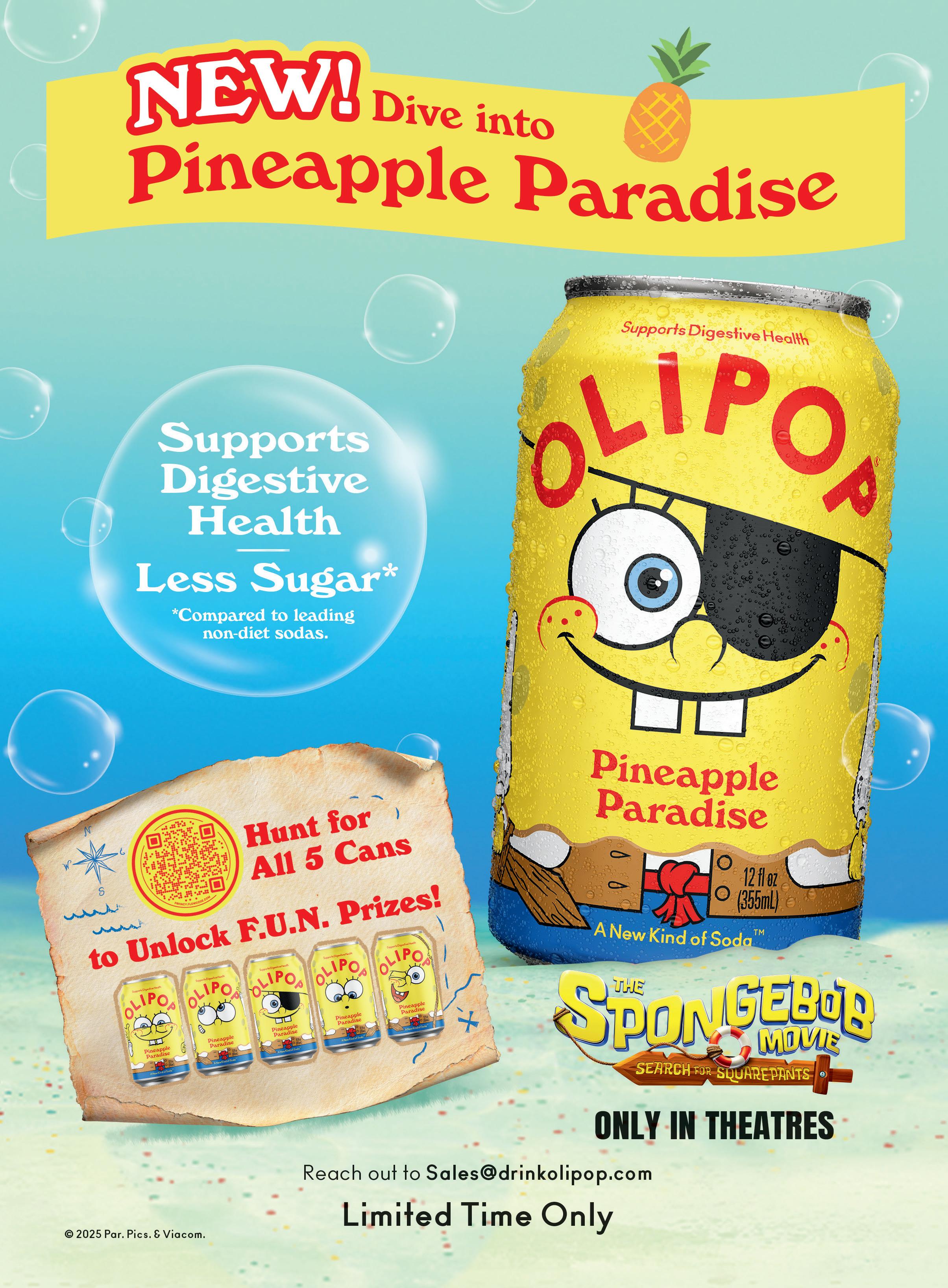

Dan Kleban, founder of Freeport-based Maine Beer Co., has entered the race to unseat longtime U.S. Senator Susan Collins. Kleban is the latest candidate to join a growing field of challengers in the state’s Democratic primary to take on Collins, a Republican, in 2026.
“I’m running for U.S. Senate because politicians in Washington, they’re making it harder to do what’s right for Maine,” Kleban said in a video on his campaign website. “Donald Trump is trampling on the values of Mainers and
tearing this country apart. And Susan Collins, she’s been in Washington for 30 years. She stopped looking out for us. She lied about protecting abortion rights, and she refuses to stand up to Donald Trump when it really matters. Enough is enough.”
In the video, Kleban traced Maine Beer’s entrepreneurial roots to the failed policies that created the Great Recession. At the time, he was an associate attorney at a Portland law firm and a hobbyist homebrewer with his brother.
Kleban was laid off in 2008, and channeled his frustration with the corporations whose actions led to a nationwide economic downturn into building a people-centric company with his brother.
“They collapsed our economy and walked away with no consequences,” Kleban said of the big banks. “Hard-working Mainers, they lost their homes, their pensions, and struggled to get by.
“I was angry at the big banks,” he continued. “I wanted to do something. So my brother and I, we set out to prove you could run a successful business by doing what’s right. We promised ourselves that anybody we hired would get a living wage, employee healthcare fully paid, profit sharing and a retirement plan.”
The brothers turned their homebrewing pastime into a career and opened Maine Beer’s first location on Industrial Way in Portland in 2009, with seed money from Kleban’s wife Beth, who cashed out her 401(k).
Other entrants in the Democratic primary to challenge Collins include Graham Platner, a harbor master, oyster farmer and military veteran who has secured the endorsement of Sen. Bernie Sanders (I-VT); and Jordan Hill, chief of staff to former U.S. Rep. Katie Porter (D-CA).
Sazerac and Coca Cola’s bev-alc subsidiary are embarking on a new partnership.
Fresca Mixed, a ready-to-drink (RTD) line launched by The Coca-Cola Company and Constellation Brands, as well as Minute Maid Spiked, are moving to Sazerac.
Coca-Cola’s “firewalled, wholly owned” bev-alc subsidiary Red Tree Beverages announced in September the transition to Sazerac, which will take over Fresca Mixed as well as a future malt version. The move was reported via a distributor update from Constellation Brands, which Beer Business Daily obtained.
Red Tree said the new partnership blends the subsidiary’s “proven expertise in brand building and marketing with Sazerac’s production excellence, established sales network, distribution management, and enduring brand stewardship.”
Sazerac has made waves in the RTD business after acquiring Southern Champion’s RTD portfolio, including orb-shaped RTD line BuzzBallz, in March 2024. The brand is one of the leading RTDs, particularly in the wine-based segment. Sazerac was among the first major spirit companies to shift its RTD distribution to beer distributors, now giving Red Tree’s beverages a robust distribution footprint.
In 2022, Constellation Brands entered a brand agreement with
Coca-Cola to manufacture, market, distribute and launch Fresca Mixed – a spirit-based RTD based on the citrusy soft drink. At the time, Fresca, a zero-calorie soda with citrus-inspired flavors, was the fastest growing soft drink trademark in Coca-Cola’s U.S. portfolio.
Fresca Mixed’s 5% ABV Vodka Spritz will live on under Sazerac, while a Tequila Paloma is being discontinued.
Sazerac will also acquire the Minute Maid Spiked portfolio. Red Tree Beverages debuted the line of multi-serve wine cocktails under the juice brand in spring 2024. The cocktails were produced by LeVecke Corporation, a California-based wine and spirits co-packer, and was distributed by Republic National Distributing Company (RNDC), along with a network of other wine and spirits wholesalers.
The Minute Maid line grew to include a Spiked Vodka Lemonade and Spiked Vodka Pink Lemonade RTD and boosted its number of wine-based flavors, earlier this year.
Minute Maid Spiked marked the first time Red Tree launched a hard product on its own, without collaborating with its other bev-alc partners Molson Coors (Topo Chico Hard Seltzer, Simply Spiked, Peace Hard Tea), Brown-Forman (Jack & Coke) and Constellation Brands. The brand was also Red Tree’s first foray into using wine as an alcohol base.

Garage Beer, the light beer brand that achieved national prominence when NFL stars Travis and Jason Kelce invested in it last year, has received “strategic growth investment” from Durational Capital Management.
This funding round, Garage Beer’s first, sets the company’s valuation at “roughly $200 million,” the Wall Street Journal reported. Durational is “a large shareholder” in the brand, but the size of its stake was not immediately clear. The Kelce brothers, who promote the beer on their popular podcast New Heights, will remain “existing owners and operators” in addition to CEO and co-owner Andy Sauer, according to a press release.
With the investment, Garage Beer’s board of directors gains two beer industry veterans: Bill Hackett, former Constellation Brands beer division president and chairman, who retired from the Mexican importer in 2019; and Rich Pascucci, former Pabst chief growth officer. MavenHill Capital chairman and managing partner Rhodes McKee will also join the board.
“Our vision is simple: to make a domestic light beer that resonates with everyone,” Sauer said in the release. “Over the past year, we have increased our volume over 400%, expanded nationally, and became the fastest growing and one of the most exciting beer brands in the U.S.
“Durational’s partnership is a strong endorsement of what we have achieved to date and our ambitions for the future,” he continued. “This investment gives us the resources to accelerate our growth and introduce Garage Beer to even more communities and consumers nationwide.”
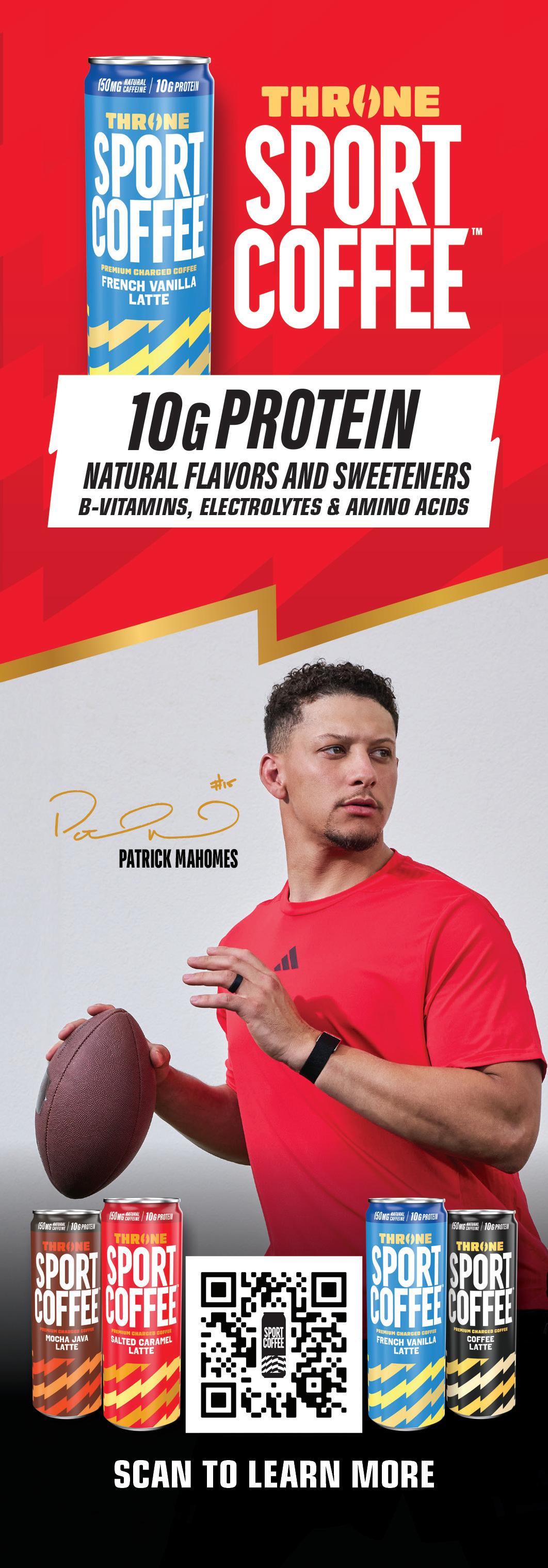

Boston Beer Company is willing to fail fast with new fourth category products in order to find its next big brand, founder and CEO Jim Koch shared during the Barclays’ Global Consumer Staples Conference in September.
Koch admitted the company has had “a lot of failures,” joking that he hoped the audience had never heard of discontinued offerings Loma Vista, a tequila-based RTD launched in 2022, or General Admission, a 40% non-alcoholic beer and 60% fruit water released in 2024.
“If we do 10 of those and one becomes a 10-million-case, $250-million brand, I’m good with that,” Koch said. “We’re kind of built around regular failure as a company.”
Boston Beer is letting it ride with more fourth category bets, from Sin-
less, a zero carb, 100- calorie vodka cocktail line; to Just Hard Squeezed, a 4.2% ABV flavored malt beverage (FMB) made with real fruit juice and alcohol from cane sugar; to Social Pop, which Koch described as an alcoholic version of Poppi.
No other details of Social Pop were shared, and the company declined to offer additional information when asked by Brewbound.
Boston Beer’s new product philosophy comes from hitting big with Truly during the hard seltzer boom and now riding a growth wave with Sun Cruiser, a vodka-based iced tea. After a summer of triple-digit gains, the company is increasing its advertising investment in the latter brand.
Koch acknowledged that growth is expensive, as evidenced by the rush
to build Truly. Sun Cruiser‘s ad spend has paid off thus far, giving Boston Beer a “significant new brand,” which he described as “a holy shit thing.”
Asked about the lessons from building Truly that are now being applied to Sun Cruiser, Koch said Sun Cruiser is being built “from the bottom down.” Instead of national ads or programs, the company is zeroing in on the 30 major metros that make up the majority of the brand’s demand. Boston Beer is also focused on building Sun Cruiser in bars and restaurants, which is “more expensive but it builds a stronger brand,” he continued.
Additionally, Boston Beer is more hesitant to add SKUs, Koch said. Where Truly at its peak had seven different flavor families, Sun Cruiser has two (lemonade and tea).
City Brewing & Beverage has completed a transfer of control to a new ownership group made up of some of the multistate contract manufacturer’s existing lenders.
The move has been in the works for several months as City has attempted to fix its financial situation. Terms of the deal and names of the involved financial partners were not disclosed.
News of City’s money troubles arose in early 2024, when the company overhauled its capital structure to borrow $115 million. Later in the year, Bloomberg reported the company was in negotiations for an additional $50 million loan to help with restructuring efforts.
In January, S&P Global reported City had missed quarterly principal payments on loans due at the end of 2024.
City entered into a forbearance agreement with its lenders to temporarily pause payments, and received a $35 million bridge loan.
In March, Bloomberg reported City was considering transferring ownership to its lenders.
The ownership change has allowed City to reduce its debts, lower annual cash interest costs and secure new capital, according to a press release.
With the transfer, City executive chairman David Taylor has stepped down from his position, but will “continue to support the business in the near term to facilitate a seamless transition,” according to the release. The rest of City’s executive leadership team, including CEO Ross Sannes, will remain in their roles, along with a new board of directors.

Sierra Nevada’s 2026 strategy revolves around a “core four” philosophy involving its top brands, while supplementing its flagships with strategic additions, leaders of the Chico, California-headquartered craft brewery shared during a virtual distributor presentation.
The pillars of that strategy include:
• Hazy Little Thing, which is chasing an eighth consecutive year of growth;
• Pale Ale, a 45-year-old legacy brand the company is committed to returning to growth;
• A fast-growing non-alcoholic (NA) portfolio of Trail Pass NA beer and Hop Splash sparkling hop water;
• And Pils, which started earlier this year as a draft-only release and is now rolling out package to offpremise retailers in 22 states.
Sierra Nevada leaders shared plans for those brands and the company’s trends through the halfway point of 2025. They also revealed a handful of new offerings aimed at engaging new drinkers.
Those new offerings lean into engaging modern drinkers, from a new West Coast IPA to a NA Juicy IPA to a fresh spring seasonal.
Sierra Nevada senior director of innovation and insights Kyle Ingram revealed plans for West Ghost Modern West Coast IPA, which places the company in the 16 oz. can 4-pack space for the first time.
West Ghost (7.2% ABV) is a top-seller in Sierra Nevada’s taprooms and gift shops, and will be introduced into the local liquor store and natural grocery store fray. The beer features a lower malt profile compared to other West Coast IPAs but an amped up hop character, with notes of citrus, tropical fruit and pine flavors and a bitter finish, Ingram said.
West Ghost will begin shipping in February to select markets where the 16 oz. can 4-pack over indexes, Ingram said. Sixteen oz. 4-packs account for 8.5% share of total craft dollars, he noted.
Sierra Nevada has bucked craft’s seasonal trends, with the brand’s portfolio growing 1.8% over the last 52-week period, VP of brand Lesley Albright shared. In 2026, the company is adding a spring

seasonal, Springfest IPA, to its existing seasonal portfolio of Summerfest Lager (March-July), Oktoberfest Festbier (JulyOctober) and Celebration Fresh Hop IPA (October-December). The goal is to own every season, Albright said.
Springfest (6% ABV) aims to celebrate farmers and features winter barley. The IPA will begin shipping nationwide December 15 and remain in market through March.
Sierra Nevada is also expanding its Trail Pass NA beer family with the addition of Juicy IPA, available exclusively in a mix pack. The refreshed Trail Pass 12-pack, which also features Hazy IPA, Golden and Breweza, will begin shipping nationwide in March.
Brewveza, a blonde with a hint of lime introduced in late 2024, available exclusively in the mix pack, has been a “standout” with fan demand for individual packs, she added.
“When a beer breaks through, it deserves the spotlight,” she added.
As such, Sierra Nevada will release a standalone Brewveza 6-pack in select markets and through direct-to-consumer channels in March, Albright shared.
A refreshed variety pack for Sierra Nevada’s Hop Splash sparkling water with updated packaging has already hit the market. The goal is to grow from being the No. 3 hop water to the top seller, Albright said.
Those releases will come on the heels of Sierra Nevada’s NA portfolio rising to the No. 2 NA craft brand family, achieving the company’s goal coming into the year, VP of sales Jon Wilks said. He added that Sierra Nevada’s NA offerings collectively hold a 6.6% share of NA craft.
The NA portfolio has also outpaced NA craft trends in the last 52 weeks (Sierra Nevada NA +79% versus total NA craft +28%) and year-to-date [YTD] (Sierra Nevada NA +40% versus total NA craft +18%), Wilks said, citing NIQ XAOC + liquor + convenience data YTD through July 19.
Distribution of Trail Pass increased 88% YTD through mid-July, Albright noted. The goal is to strengthen Sierra Nevada’s NA portfolio and become the top-selling NA brand. That remains a big hill to climb with No. 1 Athletic holding around half of craft NA share.
After launching this spring on draft, 4.7% pilsner brand Pils has cemented a place among Sierra Nevada’s core lineup.
Pils is now in the third phase of its rollout, with a national draft launch August 18 and a package launch on August 25. Now, the company is going nationwide with Pils 8.4 oz. can 8-packs starting January 12, Wilks shared.
Major retailers are on board with Pils’ off-premise roll out, including Safeway, Albertsons, Raley’s, Whole Food, Wegmans, Total Wine, Giant Eagle, Sprouts, Trader Joe’s and Meijer, among others.
Sierra Nevada will be leaning into culinary experiences to promote Pils, including a partnership with the James Beard Foundation to get Pils paired with dishes from top chefs at the organization’s events in major cities, including Los Angeles, San Francisco, Boston and New York City. Fine dining will be a key to Pils’ growth going forward.

Summer isn’t quite over, according to Guru Organic Energy . The Canadian brand is closing the season with a tropical vibe in Island Breeze Punch. The new addition to Guru’s Punch lineup has 140mg caffeine from green tea and L-theanine for focus. For more information, visit guruenergy. com/en-us.
Shot maker 5-hour Energy is no stranger to seasonal flavors and this fall the brand announced three new varieties: Pumpkin Spice, Cranberry Lime and Gingerbread Snap. The three holiday-themed flavors all contain 230mg of caffeine, B-vitamins and zero-sugar. For more information, visit 5hourenergy.com.
In honor of its partnership with the 1980s video game phenomenon, Red Bull has unveiled a new Tetris-inspired can design decorated in the iconic block pieces. The release is part of a summer-long collaboration between the two brands leading up to the final of the Red Bull Tetris tournament in Dubai in December, which will feature the first official “live playable Tetris game brought to life by drones.” For more information, visit redbull.com.
Unless you were quick on the trigger, you already missed out on the initial batch of Ghost’s newest addition — Raspberry Cream — to its line of 16 oz energy drinks. But fear not: the brand says it will be in retailers soon. For more information, visit drinkghost.com.
“This Happi launch feels personal,” said Lisa Hurwitz on LinkedIn in announcing the latest addition to the lineup of THCinfused seltzers: Dreams, a sleepy time drink with magnesium, 5 mg CBN and 10 mg of THC. The SKU is a D2C exclusive, available on the brand’s website in 7.5 oz. cans in a single flavor, Apple Blossom. For more information, visit happihourdrink.com.
Hemp-derived THC seltzer brand Delta is now sporting a new look across its lineup of 5 mg, 10 mg and 20 mg options. Those are hitting shelves as part of a new marketing campaign dubbed “There’s A Delta

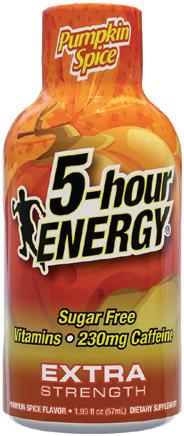




for That,” aimed at destigmatizing cannabis. To learn more, visit drinkdelta.com.
Canned sparkling water brand Not Beer is launching into the intoxicating hemp category with Not Beer Vibed . The 10mg cannabis seltzer line comes in three flavors – Rosy Raspberry, Ruby Grapefruit and Golden Pineapple – and will be available in 12 oz. tall cans. For more information, visit notbeervibed.com.
How about a soda that’s… just a soda? New York-based Rockaway Soda is keeping things simple with its fifth flavor, Lime Mint, offering crisp summer refreshment in a street art-inspired 12 oz. can with seven grams of organic cane sugar. Find this one in 12-packs (SRP $35.99) online or as individual cans at retail for $2.29. More info is at drinkrockaway.com.
We love innovative flavors, but there’s something to be said for the timeless classics, too. SunSip goes for the latter with its new prebiotic cola, available exclusively via direct sales as of this week and entering Whole Foods Market shelves on September 3. More details available at SunSip.com.
As soda carves out new subcategories like protein and prebiotics, is there a place for hydration, too? That’s the bet here with Strive, a two-SKU line of hydration sodas that contain electrolytes. The San Diegobased brand just introduced the drink in 12 oz. slim cans on its website. Find more information at strivesoda.com.
Hop water maker Hoplark is bringing soda back to its portfolio. The Boulder, Colorado-based beverage brand has brought back The Root Beer One with an updated formula, and unveiled The Ginger Ale One to its set. Both varieties contain 5 grams of natural sugar and no artificial ingredients. “The Soda Set” is offered in 16 oz. cans and sold in 12-can variety packs together. For more information, visit hoplark.com.
Though its Spiked line is phasing out, Spindrift is still chasing innovation in its






core lineup of fruit-infused sparkling waters, with Cranberry Punch being the latest release. The new seasonal flavor complements the return of a previous fall favorite, Cranberry Raspberry. Cranberry Punch will be available for a limited time in select retailers and on Amazon, while Cranberry Raspberry will be offered exclusively on the website and in select Costco locations. For more information, visit drinkspindrift.com.
It’s not new, but we’re glad it’s back: HOPWTR has revived Ginger Limeade for another run, now available in 12-packs (SRP $36.99) on the brand’s website at HOPWTR.com.
Protein-boosted ultra-filtered milk brand Nurri, a division of Horseshoe Beverage Co., continues to innovate. The product has updated its label design, with the brand name shifting from landscape to portrait. You can see more at drinknurri.com.
Genius Gourmet has expanded its line of Sparkling Clear Protein Drinks – introduced in February – with the addition of Blue Raspberry Lemonade, now rolling out to Costco stores nationwide. The new flavor features 30 grams of protein, zero grams of sugar and 130 calories per 12 oz. can. Learn more by visiting geniusgourmet.com.
Major food corporations continue to shape product innovation around rising demand for GLP-1 drugs, with Danone’s Oikos being the latest example. Its new Fusion line in 7 oz bottles in three flavors (Strawberry, Mixed Berry, and Vanilla) is “is tailored specifically for those on weight loss journeys including GLP-1 users who face unique nutrition challenges,” the company said, while delivering 23 grams of protein and 5 grams of prebiotic fiber. For more information, visit oikosyogurt.com.
New powdered drink brand Jiggies is leaning into Ayurvedic ingredients to fuel its stress-relieving Daily Nutrition beverage. The “Super Powder” includes a full list of


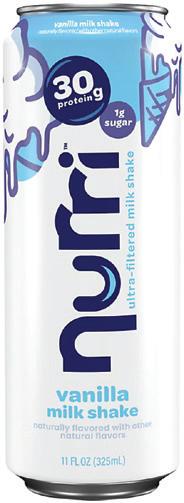


functional ingredients like ashwagandha, amla, turmeric, moringa, brahmi, shilajit and tulsi (or holy basil), rounded out with caffeine and electrolytes. The powder comes in a 8.46 oz bulk pouch or a 30-sachet pack, each serving is 8 oz. For more information, visit jiggies.com.
More instant coffee, more protein. Supplement brand Ascent has launched its own take on the pumpkin-spiced latte for its Iced Coffee + Protein. The seasonal variety follows on the brand’s Caramel flavor, which joined the powdered coffee line in April. For more information, visit ascentprotein.com.
“Enhanced coffee” brand Bulletproof is leaning into more muscle with an instant High Protein Iced Coffee blend, available in 14 oz. pouches for $33.99. The line comes in Original and Mocha flavors, with each serving offering 12 grams of whey protein and 170mg of caffeine. High Protein Iced Coffee is expected to launch in H-E-B and Sprouts locations this fall. For more information, visit bulletproof.com.
Even the most disruptive brands can’t resist when PSL season comes around. See MUD\WTR , which provides its own spin on the Pumpkin Spice Latte with its $40 kit, which pairs a 12-serving bag with a limited edition tin. For more information, visit mudwtr.com.
Just over a year after entering the market, sports drink brand Mas+ By Messi has revealed its first-ever line extension: Greatest Grape, now the fifth flavor on the roster. Greatest Grape is now available from the brand’s website and at Walmart stores in single 16.9 oz bottles and 12-packs. To learn more, visit masbymessi.com.
Podcaster Alex Cooper’s beverage brand Unwell has added a three-SKU Hydration with Protein line (Raspberry Melon, Watermelon Strawberry and Peach Tangerine) is launching exclusively in Target at $2.99 for each 16.9 oz. bottle offering 10 grams of protein and 740mg of electrolytes. For more information, visit drinkunwell.com.
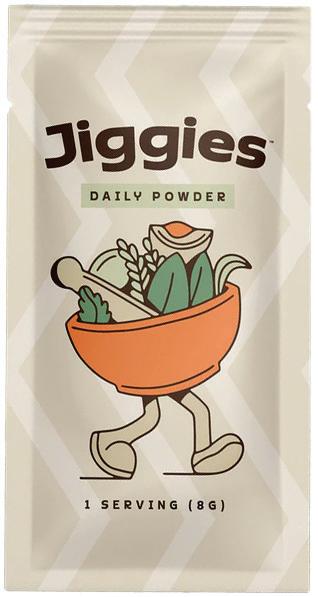


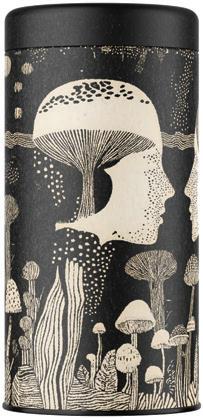


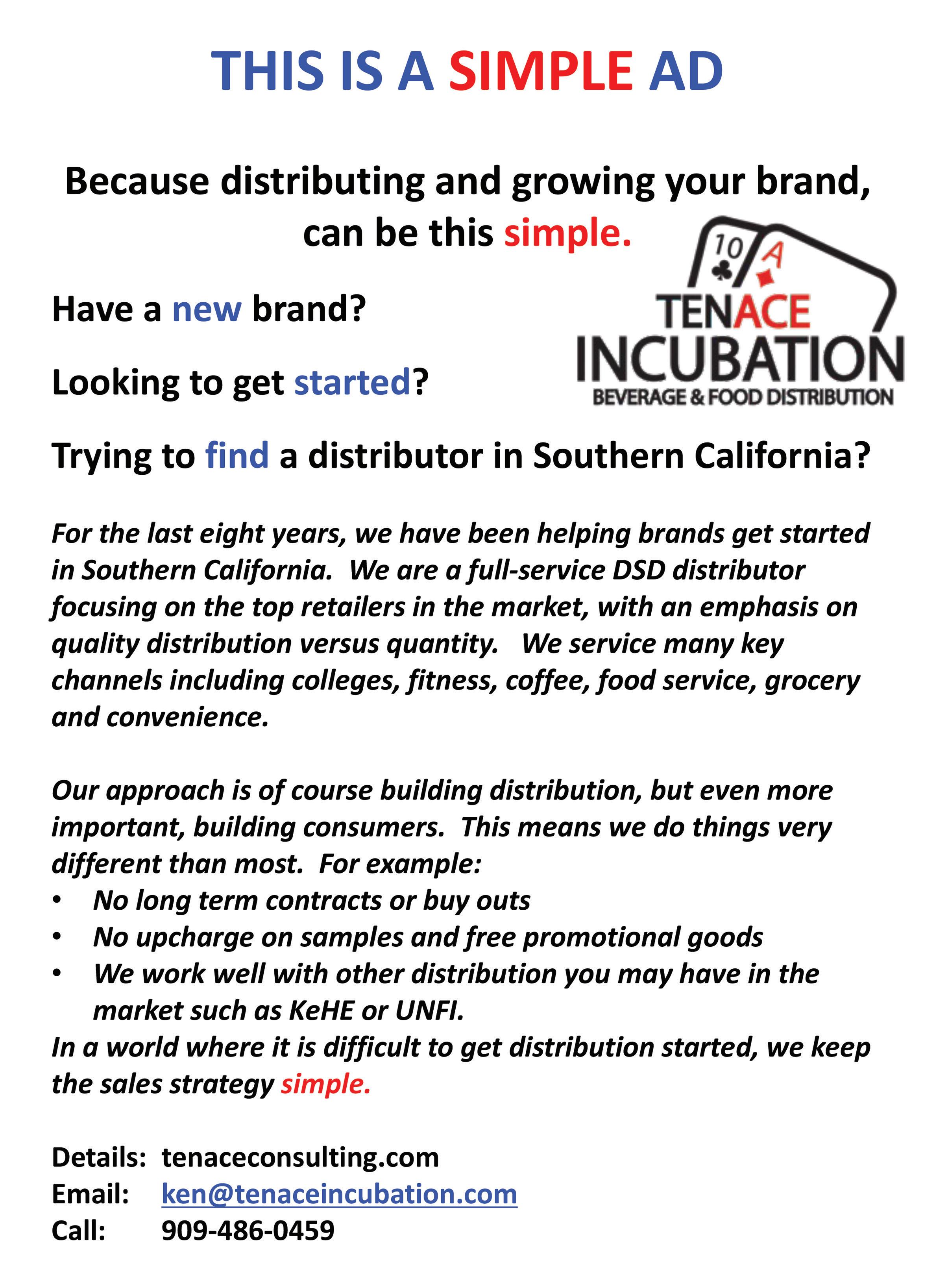
Apparently, all Zico needed was a little love and a few mainstream accounts — the brand is growing again and looks to be a recognized player in the coconut water game, although it’s clearly facing a long climb back. Category leader Vita Coco continues to dominate — yes, it’s tariffvulnerable but so is most of the category supply chain, so she who has the most cashflow is gonna win anyway. But what could be better than having an old friend around to spice up some category sets?


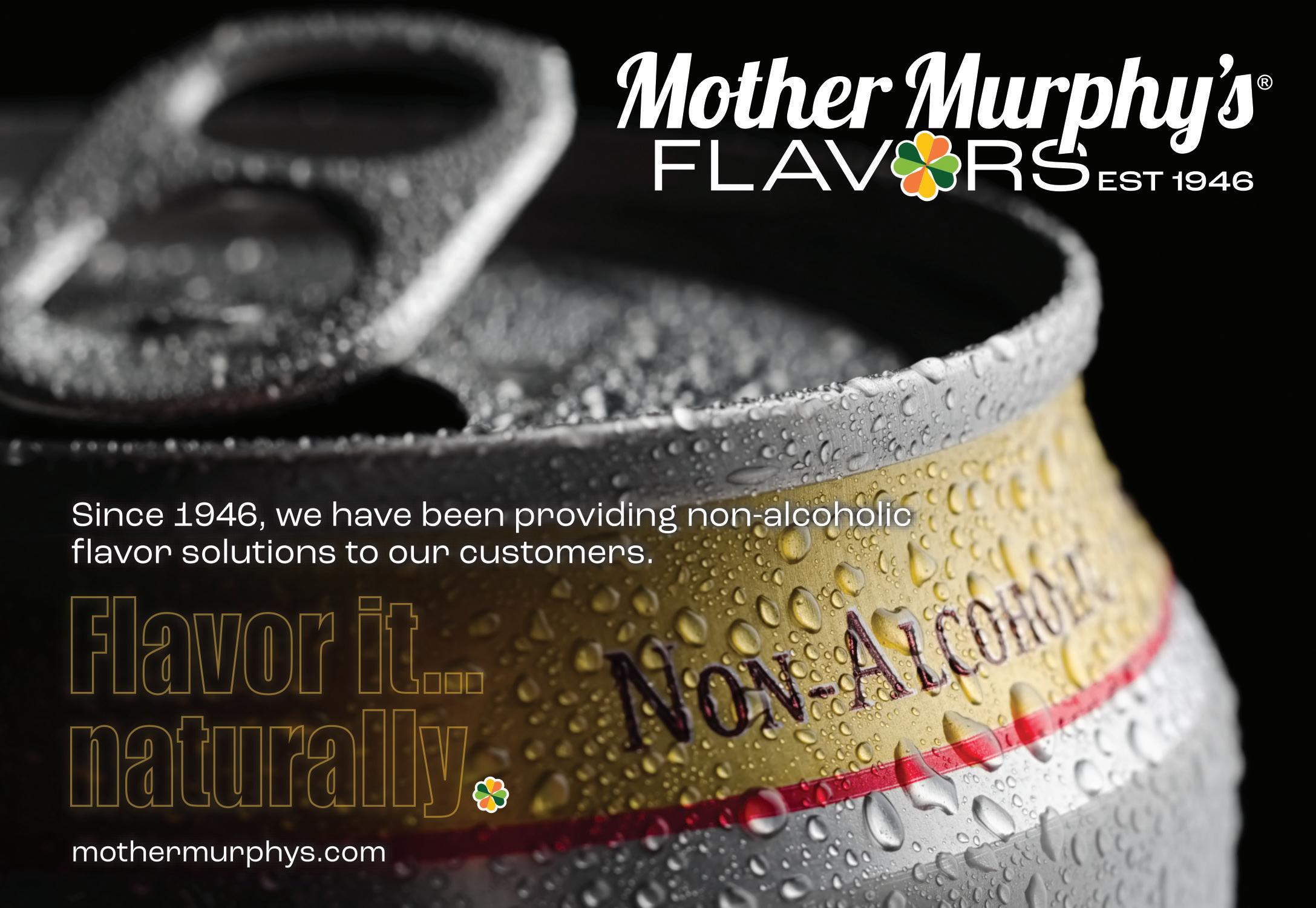
SOURCE:

Exhibitor
More than 100 beverage brands and approximately 25,000 attendees
McCormick Place Convention Center Chicago, IL
Booth
1st Phorm N2147
2 Towns Ciderhouse S7738
4Calm S7738
5 Hour ENERGY N2127
Abbott (Pedialyte) N1564
ALO Drink by SPI West Port Inc N2631
Anheuser-Busch S4631
Arizona Beverages USA N1143
Asahi Beer USA S8287
Barebells USA VitaminWell USA N2151
Be Love S7738
BeatBox Beverages S7009
Beliv US S7738
Black Rifle Coffee Company N1848
Bones Coffee Co S8581
BrewDog US S8376
brooklyn bottling N2528
Brown Forman N158
BUBBL'R N2651
Bucked Up S5739
BUM Energy S8187
C4 Energy / Bloom S4937
Cabin Crew S8479
Campbell Soup Company S5237
Celsius Holdings N1823
Chobani and La Colombe S5020
Cirkul S7738
Clearly Canadian N134
Come Ready Foods N247
Congo Brands N1446
Exhibitor
Booth
Constellation Brands S6713
Crystal Geyser Alpine Spring Water N1854
Danone North America S5356
DBZ Enterprises N146
Deschutes Brewery N156
Diageo Beer Company N1827
Dole Packaged Foods N1468
Drip Drop Distro N1864
EDT USA Corporation S7738
EHP Holdings N2846
Electrolit S7313
Eternal Water N1146
Feel Great Botanics S8578
FIJI Water N2339
Fire Brands N2848
Firestone Walker Brewing Co S8378
G.O.A.T. Fuel N2804
GALLO S5702
Geloso Beverage Group N968
Genius Gourmet N2564
Good Boy Vodka S8189 good2grow S7339
Goya Foods N2406
GRIZZLY Energy / Bear 'n
Beaver Premium Craft Soda N2856
Happy Dad S8388
Harvest Hill Beverage Company N134
Heineken USA N1151
National Association of Convenience Stores Show
Conference: October 14-17, 2025
Expo: October 15-17, 2025
Exhibitor
/ CHARGEL
Beverages S8175
Glacial N2654
Foods Group S6877 Ito En (North America) N2841 Joe Tea & Chips N349
Jones Beverage Co N1434
Jubi Brands S8488
Kayco N2617
Ketone-IQ S8286
Keurig Dr Pepper S5023
King Kongin Beverage S8577
Kraft Heinz S4667
Lassonde Pappas and Company S7738
Lean Body by Labrada Nutrition N2648
Lemonati / Mighty Swell S8277
LeVecke Wine, Beer & Spirits S7738
Lifeway Foods N1160
Liquid Death N2158
Liquid I.V. S7331
LK DISTRIBUTION LOOPER N145
Lotus Plant Power S8289
Lucky Beverage Co N1813
Mark Anthony Brands N1164
Mitra9 Brands S7738
Molson Coors Beverage Company S5302 WHO
Hethe Water S8285
BevNET and Nosh will be conducting interviews throughout the event. If you’re attending or exhibiting, let’s connect! Reach out at news@bevnet.com or news@nosh.com
Exhibitor
Monster Energy Company S6405
Mpact Beverage Company S4978
New Brew S7738
Niagara Bottling S7539
NOBLE Seltzer S7738
NOCA BEVERAGES S8288
Noka S5237
Novamex N2136
NVE Pharmaceuticals N1455
OLIPOP N1851
Optimum Nutrition and Think! N1457
Pabst Brewing Company S7319
Patco Brands N152
PATH N2600
PepsiCo S4641
Pickle Juice N2817
Pocas International Corp N442
Polar Beverages N2531
Poppi Functional Soda N2844
POWR Energy N2603
Primo Brands S5742
Proximo Spirits N264
PSR BRANDS N633
Exhibitor
Booth
Pure Green Cold Press Juice Co N2618
Ranch Fuel S5237
Red Bull North America N905
REDCON1 N1235
RIOT Energy N2717
Rock Solid Distribution 28 BLACK USA N353
RP Foods LLC Kuii Coconut Beverages N2855
RYSE Up Sports Nutrition N2664
Saint James Brands N352
Sapporo-Stone Brewing S8381
Savia USA N336
Sazerac Company N2143
Sierra Nevada Brewing Co N2168
Simple Brands N143
SLAMZEES S8386
Slate Milk S8186
Spindrift Beverage Co N651
Spirits of Virtue S8579 SPYLT N2124
Stevens Point Brewery / Ciderboys Cider Company S8377
Exhibitor
Booth
Stilly Spirits N155
SuckerPunch Pickles N1749
Suja Life S8482
Suntory Global Spirits N2417
Surfside N1860
Surprise Drinks USA N432
Tampico Beverages S7738
Taste Salud S8281
The Boston Beer Company N954
The Coca-Cola Company S4614
The Lagunitas Brewing Co N1169
The Lemon Perfect Company N943
The Ryl Company S8485
The Vita Coco Company S5102
The Water Street Collective Ryde: USA S8389
Throne SPORT COFFEE N2451
Tropicana Brands Group S4803
UPTIME Energy N2529
Welchs Company N1730
X Mood Drinks S8477
Yerba Madre N964
Zevia N2117

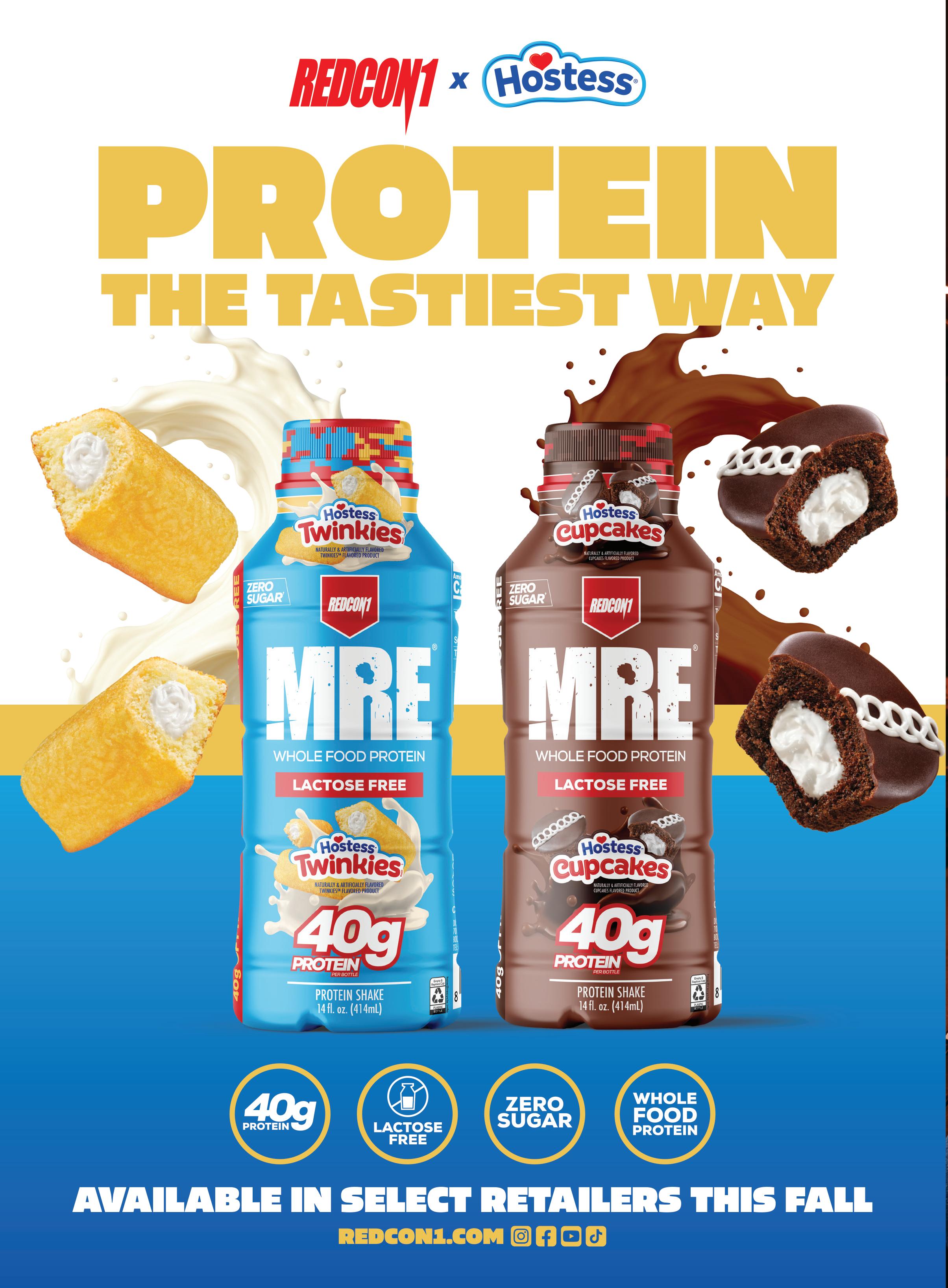

By ZOE LICATA

If the beer industry had a dollar for every time someone said “we’re controlling what we can control,” the category would possibly be in the black this year.
That mantra has been reiterated by leaders across the spectrum, from the global giants at Constellation Brands and Molson Coors, to the regional craft folks. It’s all in an attempt to hold onto something of structure as the
industry tackles numerous macroeconomic headwinds and their impact on consumers, including inflation, U.S. Immigration and Customs Enforcement (ICE) raids and the most unpredictable of all: tariffs.
The latter is being felt by the entire beer industry, mainly due to Section 232 tariffs on aluminum and steel. President Donald Trump enacted said tariffs during his
first term, with several exemptions, which eased the initial impact on most industry members. However, this year
Section 232 tariffs have been reevaluated, increased and expanded as part of Trump’s numerous second-term trade policy moves.
In June, the rate of Section 232 tariffs doubled from 25% to 50%, resulting in an immediate rise in aluminum prices, the


Brewers Association (BA), a trade group representing small and independent craft brewers, shared at the time.
A few months later, more than 400 previously exempt products were added to the list of included aluminum and steel items under Section 232, including can ends and lids
The changes had an immediate and severe impact, as
aluminum is already “the single largest input costs for most brewers’ packaging operations,” according to the BA. As of August 2025, 75% of total packaged craft beer volume and revenue is sold in aluminum, per the BA.
“This illustrates how these tariffs can lead to tough decisions for small and independent craft brewers – they may need to raise prices or scale back their variety of offerings, particularly in distribution,” BA president and CEO Bart Watson said. “There are already lots of straws on the camel’s back, and these are adding more.”

Rising costs have been compounded by macroeconomic trends on imported beer, which has recorded a starkly different performance in 2025 compared to 2024 – turning one of beer’s few growth segments into another loss contributor.
In 2024, imports were one of only three beer segments to consistently grow, ending the year with both off-premise dollar sales (+3.6%) and volume (+2.1%) in the black, well outpacing total category performance (dollar sales -0.6%, volume -2.6%), according to Circana data (year-to-date [YTD] ending December 29). The segment also passed domestic premium as the largest beer segment by YTD dollar sales last year.
That growth was led by Mexican imports, the largest import subsegment, which ended 2024 up 5.3%, marking an increase
of more than 54.22 million gallons (approximately 1.75 million barrels) of beer compared to 2023, according to the Beer Institute (BI), citing data from the Department of Commerce.
Mexican imports accounted for 85% of total import dollar sales in 2024, and have been “beer’s most consistent growth driver,” according to Bump Williams, founder of Bump Williams Consulting. The subsegment contributed 82.5% of total import volume last year, according to the BI.
Hints that the tides were changing started to appear in September 2024, when Mexican import volume declined 0.6% year-over-year (YoY) after months of growth. That decline slowly accelerated through the end of the year, with December volume down 6.7% compared to 2023.
Growth returned for the first two months of 2025. But then in March, Trump enacted a 25% tariff against Mexico, and while enforcement of those levys has fluctuated, imports have yet to recover. In BI’s most recent report, Mexican import volume was down 2.6% YTD through July.
Total import dollar sales (-2.3%) and volume (-4.1%) are now both in decline YTD (Circana off-premise channels, data ending August 10). A year ago, the segment had recorded 4% dollar sales growth and 2.7% volume gains (data ending August 11, 2024).
“I’ll state the obvious, but the beer category can ill afford any more setbacks with key sales growth segments like (Mexican) imports and flavored malt beverages,” Williams wrote in a March update.
The decline in imports isn’t simply from tariffs and rising costs. Possibly an even larger contributor has been changes in Hispanic consumers’ purchasing habits.
Hispanic households make up about 15% of total consumer spending, the highest percentage among “non-White ethnic groups,” according to a recent report from market research firm Numerator, citing purchase data and a Verified Voices survey of more than 1,600 consumers. Over the past few years, that percentage has been steadily rising, up from 13.6% in 2020.
However, growth has now stalled, from 3.2% YoY in 2024 to 0.8% YTD. Absolute spending per Hispanic household has also fallen below that of White households for the first time since 2021, according to Numerator.
“Hispanic spending growth is now driven by population gains, not behavior,” Numerator wrote. “In 2024, population growth accounted for just 23% of spending growth. In 2025, it surged to 72%.
The demographic has been disproportionately affected by wallet constraints and immigration policies. The latter –which has included an exponential increase in ICE raids and deportations – has driven many Hispanic consumers to pull back on celebrations and other beer occasions, causing a decline in beer purchasing.
As cited in Numerator’s report, “With population gains now the core driver of Hispanic spending, changes in immigration policy could have an outsized impact on future spending.”
Among surveyed Hispanic consumers, rising prices was the top concern affecting purchasing behavior, cited by 40% of
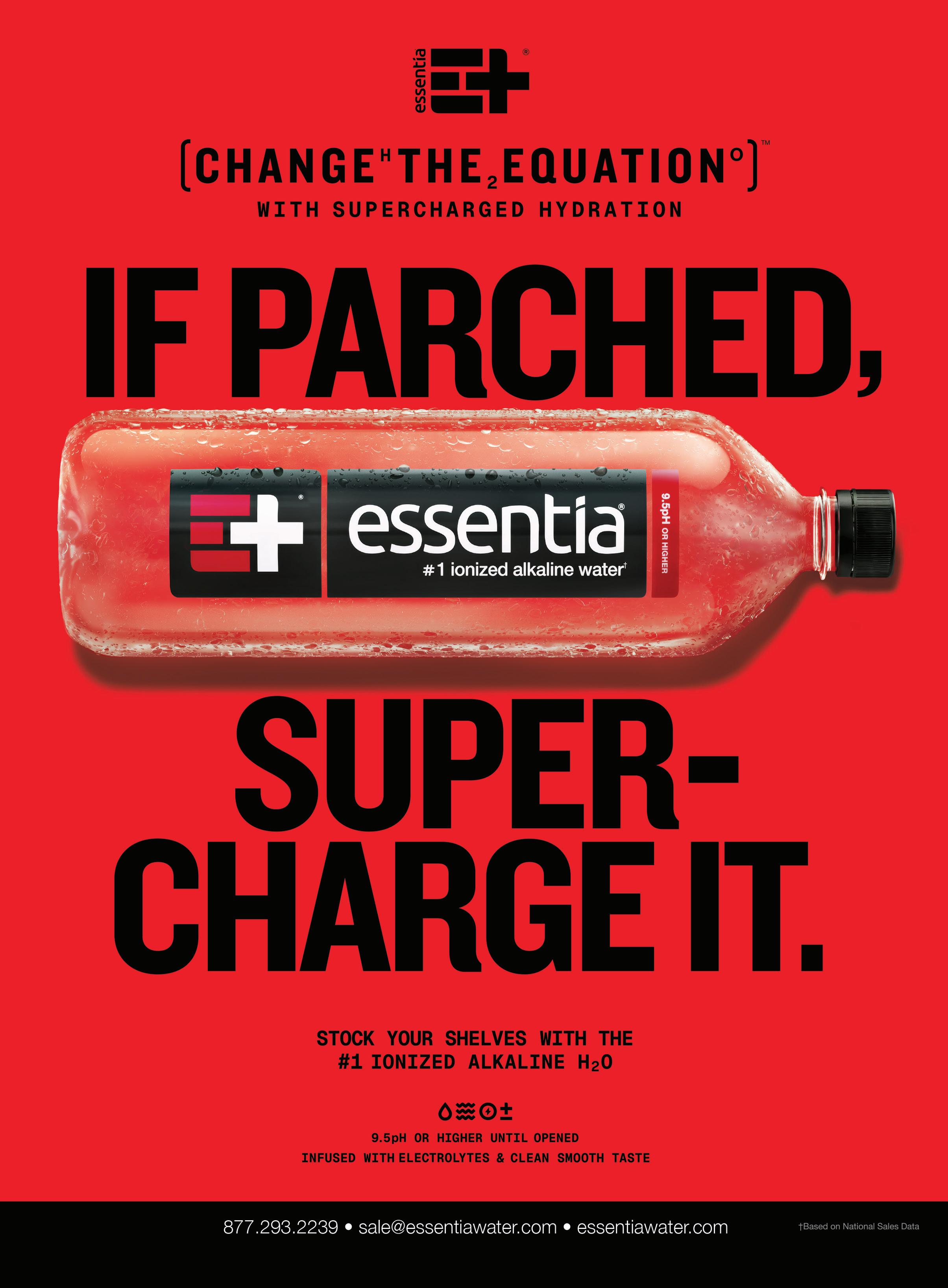
respondents; second was immigration policy (30%), a “notably higher” figure compared to the general U.S. population, Numerator reported. Other concerns included financial security and personal debt (24%), public safety and crime (23%) and health (22%).
Within beverage-alcohol, Hispanic consumers are leading consumption declines, according to a University of Michigan Monitoring the Future survey, cited in a report by financial services firm Bernstein. Approximately 61% of Hispanic consumers aged 35-50 consumed alcohol at least once in a 30-day window in 2024, down from 78% in 2023, according to the report. White and Black consumers in the same age group recorded significantly smaller declines in the same period: from 69% to 68%, and from 60% to 53%, respectively.
Any changes in Hispanic consumer behavior disproportionately impact beer, as the demographic group overindexes in the category, and underindexes in others, such as spirits.
“Against the backdrop of low consumer confidence and a pressured wallet, this consumer is more vulnerable,” Bernstein analyst Nadine Sarwat wrote.
“But the real kicker today is fear of Trump 2.0 immigration policy,” she added. “Fourty-two-percent of Hispanic individuals in the U.S. worry that they or someone close to them could be deported. Illegal/undocumented Hispanic immigrants account for 2.4% of the U.S. population (even bigger share of households), and we conservatively estimated that their reduction in shopping and socializing could be contributing a 300bps drag to industry volume growth.”
No one has felt import’s headwinds quite as acutely as Constellation Brands, whose portfolio includes Mexican import brands Modelo, Corona, Pacifico and Victoria. Hispanic consumers account for 35% of Constellation’s consumer base, increasing to 50% for its top brand, Modelo.
Constellation ended fiscal year 2024 (ending February 2024) with a flat Q4, but plenty to celebrate, including Modelo passing Anheuser-Busch InBev’s Bud Light as the No. 1 beer brand family by dollar sales. The company built on that momentum through fiscal year 2025, ending the year with dollar sales up 5.8% and volume 4.5% – the second largest full-year growth among the top beer vendors in Circana-tracked off-premise channels.
At the start of the 2025 calendar year – and during initial
SOURCE:
government moves to start new tariff policies – Constellation leadership stayed relatively mum about potential impacts on their brands’ continued growth. But in April, with the company’s FY25 financials release (year-ending February 28, 2025), Constellation lowered its medium-term projections to FY26 net sales growth between -2% and +1%, and FY27 through FY28 net sales growth between +2% and +4%. Previous medium-term projections had the company’s total enterprise up between 6% and 7%.
Q1 FY26 brought “expected” declines (shipments -3.3%, volume -2.6% YoY), and Constellation leadership reiterated “confidence” in its full-year projections during an earnings call in July. However, in September, Constellation lowered its FY26 guidance again.
Now, Constellation is expecting its beer division’s net sales to decline between 4% and 2%, down from flat to +3%. Projected beer operating income was also lowered from growth (flat to +2%) to -9% to -7%, due to “impact from lower volumes, operating deleveraging and additional tariffs.”
Modelo remains the No. 1 beer brand family in off-premise channels, but has recorded several months of YoY declines, with dollar sales (-2.1%) and volume (-4.1%) both down YTD. Corona is also in the red (dollar sales -2.7%, volume -4.6%), while Pacifico (dollar sales +17.4%, volume +14.4%) has appeared to sidestep external impacts – likely due to its younger and more diverse consumer base.
“It’s very tough to predict how the consumer is going to behave,” CEO Bill Newlands said during Barclay’s Consumer Staples Conference in September. “The thing that we’re spending our time on is controlling the controllables. That’s execution, that’s working in the market place and doing the shelf sets … It’s winning distribution. It’s continuing to invest in the category.”
Of course, Mexico isn’t the only contributor to beer imports in the U.S. – though annual volume from the country is more than 10x that of its nearest competitor, the Netherlands.
The Dutch have not been immune to imports’ woes, either. As of July, the country’s import volume to the U.S. was down 15.7% YTD, with July 2025 volume down 30.1%, a loss of more than 2.5 million gallons compared to July 2024.

Those declines can be attributed almost entirely to Heineken. The brewer’s beer brand family – the 10th largest in Circanatracked off-premise channels – is down nearly double-digits YTD in both dollar sales (-9%) and volume (-10%).
However, Heineken has seen positive momentum from its non-alcoholic (NA) extension, Heineken 0.0, which is the 57th largest beer brand YTD (dollar sales +1.4%, volume +14.4%). In the latest weekly report from Circana (data ending September 7), Heineken 0.0 cracked the top 25 beer brand families, with dollar sales increasing 1.9% and volume up 4.8% compared to the same week in 2024.
Heineken 0.0 is the company’s second-largest brand behind Original, and the only brand within Heineken’s top 4 to record growth YTD in NIQ-tracked off-premise channels (dollar sales +1.8%, volume +8.8%), according to data shared by 3 Tier Beverages (ending August 9). Those figures do not include its on-premise and venue sales – a core channel for the brand.
Heineken has committed 10% of all its media spend on Heineken 0.0 campaigns, according to Forbes. Most recently, the company partnered with the movie F1, with the NA offering heavily featured throughout the film and in digital marketing.
Heineken has also used its global partnership with the motorsport Formula 1 to promote Heineken 0.0 and responsible drinking. The company is the title sponsor of three of the league’s Grand Prix. Heineken previously promoted its low-calorie extension Heineken Silver with the partnership, including using the brand as the title sponsor of the inaugural Las Vegas Grand Prix in 2023.
Heineken expanded Heineken 0.0 this spring with Heineken 0.0 Ultimate, a zero carb, zero sugar line extension launched in Massachusetts and New Jersey.
Additional uplifting sentiment can be shared for imports from Ireland, which are up double-digits YTD (+21.8%) and nearly triple-digits YoY in July (+73.8%). That volume growth has been driven by a U.S. resurgence of Diageo’s Guinness –boosted in part by the viral “Split the G” trend (consumers try to split a Guinness glass’s “G” with their first sip and the foam of their fresh pint).
Like Heineken, Guinness has also seen added growth from its NA extension, Guinness 0.0. The offering is Guinness’s third largest brand in NIQ-tracked off-premise channels behind Guinness Stout and Guinness Extra Stout, and has recorded double-digit growth YTD (dollar sales +11.7%, volume +10.3%).
In 2024, Diageo invested $30 million euros (approximately $32.5 million) in Guinness 0.0 production in 2024, helping to support the nearly 50% volume growth the offering recorded globally last year.
Imported NA beer volume is up nearly 20% YTD, to just over 405,000 barrels, according to the BI. July volume was up 2.7% YoY, to nearly 55,000 barrels.
The Netherlands account for more than half of that volume, importing nearly 6.63 million gallons (approximately 213,772 barrels) to the U.S. YTD, a 2.3% increase compared to the first seven months of 2024. Mexico is the second largest importer of NA beer (+74.7%, to more than 3.13 million gallons YTD), followed by Germany (flat, at nearly 1.02 million gallons) and Ireland (+49.7%, to nearly 928,000 gallons).

By Lukas Southard

Juice has a fruit problem and the solution might be picking something new for the bottle.
The juice business has been challenged for years as climate change and weather events exert a headwind on crop yields and supply. The more immediate hurdle posed by tariffs has only made sourcing that much more expensive. As Florida’s groves have succumbed to citrus greening, juice makers have seen demand
decline as consumers find healthy drinking options in other categories.
These incumbent and more recent hurdles have influenced both how juice makers operate and how they strategize for the future. Some brands have leaned into smoothing out their operations by shoring up manufacturing or cutting costs by simplifying formulation. Other juice makers have tweaked product positioning or are growing through
acquisition, picking up category-adjacent brands to diversify revenue sources. Despite headwinds, the category is still pushing forward.
Refrigerated juice dollar sales ticked up 2.5% in the last 52 weeks ending August 10, as volume declined 3.3%, according to Circana MULO+C data tracking. In shelf-stable bottled juice, dollar sales declined 1% with volume rising 2.3% during the period.
Two long-term problems are looming over the juice category: the sugar-ascalories issue bedeviling all drink types, and the pricing issues resulting from both environmental change and from tariffs, said Howard Telford, Euromonitor International’s soft drink analyst.
While consumer prioritization of lowsugar options is the “smaller” of the two challenges, cost represents a macro issue with no clear solution, Telford added.
“Twenty years from now, how will brands be able to sell 100% juice to consumers?” Telford asked. “Where is it going to come from? Is anyone going to pay $10 or $12 for a bottle?”
While it’s not there yet, Circana reported that prices rose in the last year for both shelf-stable (3.1%) and refrigerated (6.1%) juice sets.
The cost issue stems from sourcing, where climate change has impacted yields and driven up commodity prices. Companies are offsetting these challenges by going deeper into nectars and blends, like Tropicana’s new Essentials line.
Essentials is positioning itself as more affordable than its various 100% orange juice options, blending not-fromconcentrate O.J. with water, other fruit concentrates, and purees.
These “value options” are expected to grow category volume, Telford said, and deliver on the health benefits that juice has been associated with.
“It isn’t as necessary as it used to be to say ‘this is 100% juice’,” he said. “I don’t think the consumer really cares if it’s reconstituted. It has to do with the health halo of consuming X amount of vitamin C, vitamin D and vitamin B.”
About 48% of U.S. consumers are drinking less juice due to price increases, and 61% of juice drinkers say price is important to them when choosing a juice drink, according to Mintel’s 2024 Juice and Juice Drinks report.
Still, purity and quality remain key for brand success. Cold-pressed juice and apple cider vinegar shot maker SoFresco would argue that pricing is important, but not if it comes at the cost of moving away from a company’s core values.
The Portuguese brand’s guiding light is creating healthy products that reduce food waste and contain 100% juice with no additives, concentrates, or sugar.
SoFresco’s biggest affordability driver is owning its own means of production, said SoFresco senior VP of Sales Adam Litvack. The company’s sourcing of unused and unwanted fruits and vegetables, primarily from the Northeast, serves as a secondary costsaving mechanism.
“In an economic climate where everybody is looking to save every penny and dollar, being affordable is really important,” Litvack said.
After landing in the U.S. six years ago, the company set up its North America operations (under the name Good Crop Inc.) in Malvern, Pennsylvania, where it operates its own high-pressure processing (HPP) facility.
Even though the company does “a little” HPP co-packing if it “enhances our partnerships with retailers,” Litvack said, but otherwise is not working with other brands.
Beyond manufacturing efficiencies, some brands are looking beyond juice to other categories as a way to diversify amid challenging times.
Generous Brands started as a PEbacked refrigerated juice company, the result of a rollup of the Bolthouse Farms and Evolution Fresh brands. Last year, the company added responsibility for manufacturing and distributing the

açaí brand Sambazon to its portfolio. These fresh juice brands are a good start, but rather than think of itself as just a juice company, it’s doubling down on the refrigerated set. Over the summer, it acquired Health-Ade Kombucha, the second-largest brand in the U.S. While Health-Ade deepens Generous Brands’ footprint in the produce aisle beverage cold case, other juice companies are seeking adjacencies in different formats.

Probiotic soft drinks have become a key growth category for juice brands. After acquiring shot brand Vive Organic a few years ago, Suja Life – itself backed by PE firm Paine Schwartz Partners –added a rebooted Slice line to its portfolio in May 2024.
The nostalgic soda brand founded in 1984 has gone through three relaunches in seven years, but Suja’s Slice brings fruit juice and a pre-, pro-, and postbiotic formulation into the mix.
The Slice acquisition also followed Suja Life’s expansion into protein drinks in January 2024, positioning the cold-pressed juice and shot maker in competition with other protein smoothies
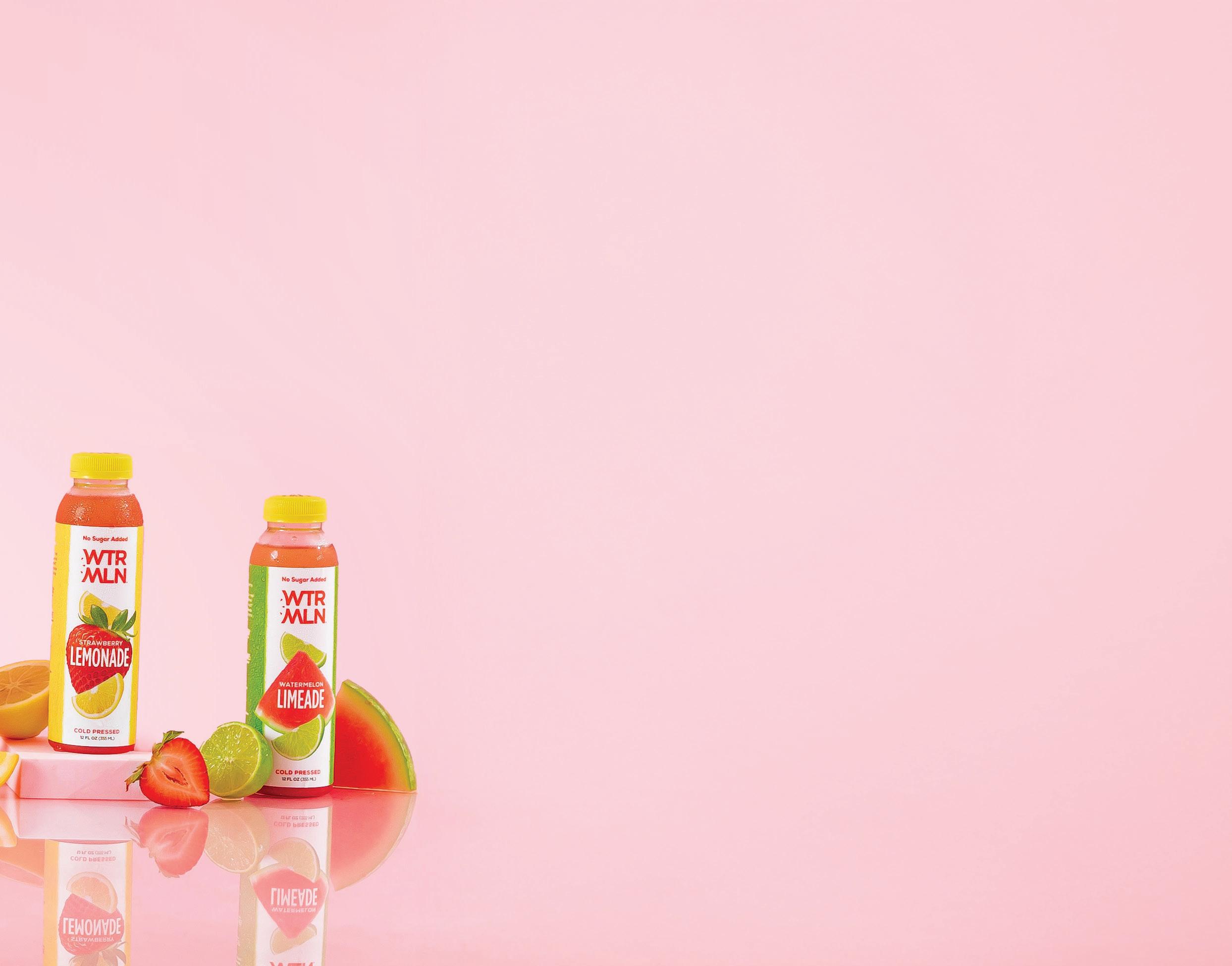
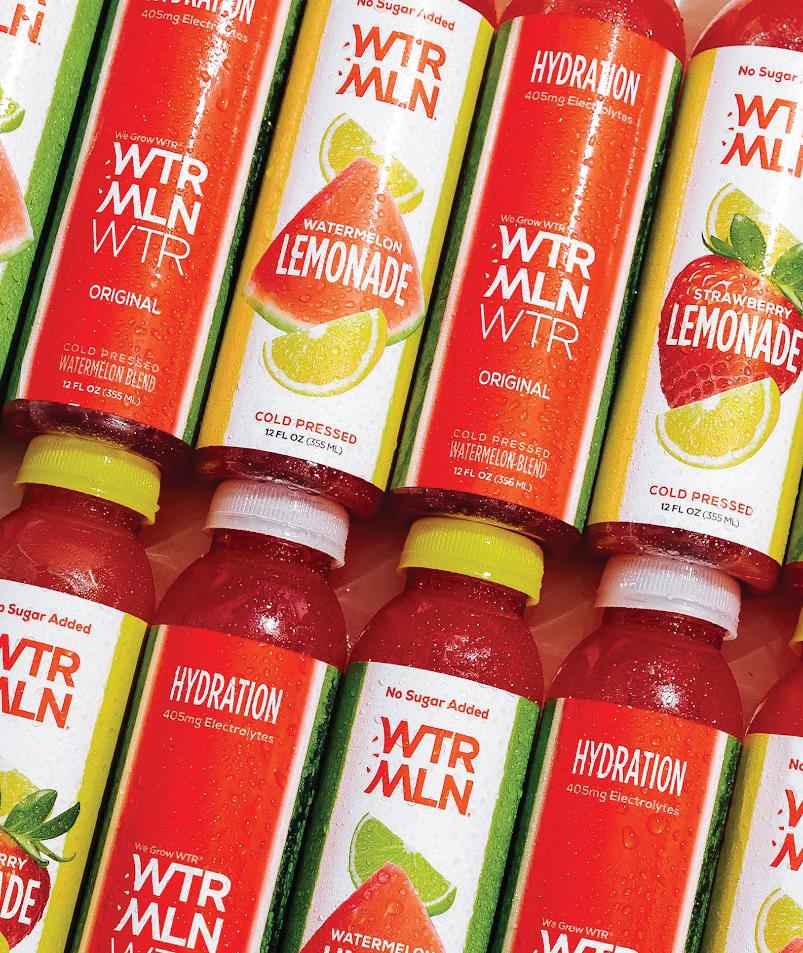
like Remedy Organics, Naked Juice and Koia, among others.
The Slice deal isn’t the only one that revived a brand from suspended animation.
In January, Mexican beverage producer Grupo Jumex brought back legacy smoothie and juice brand Odwalla under a licensing agreement with the brand’s trademark holder, Full Sail IP Partners.
Jumex founder and U.S. Country manager Carlos Madrazo told BevNET at Expo West this year that Odwalla represents a recognizable brand to help Jumex develop a stronger foothold in the U.S.
The relaunch brings the brand back in a new format, 13.9 oz. glass bottles as well as 16 oz. and 34.2 oz. cartons.
Licensing agreements are one way to expand opportunities in juice adjacent drink categories, but another approach is joining forces, as represented by the California-based Perricone Farms’ acquisition (or “merger” depending on which part of the press release you read) of Natalie’s Orchid Island Juice Company last fall. The move “united” the two companies to “take advantage of bi-coastal production facilities,” the press release said.
For some, it’s not about reblending the smoothie with a new juice, but staying the course while adding in a couple of new ingredients.
Known for its brick-and-mortar juice shops, Pressed Juicery has been putting resources behind its retail endeavors. Since taking over in June 2023, CEO Justin Nedelman has nudged the company toward a more even split between storefronts and retail. Pressed added former Health-Ade CFO Gary Cooperman, who has helped expand its presence in ecommerce and grocery as the company’s hybrid CFO and COO.
Along the way, Pressed has lined up partnerships in Costco and Target, offering recognizable formats like cleanses and shots from its storefronts but now available in club, mass and grocery channel retailers.
Finally, sometimes a makeover is all a brand needs.
WTRMLN WTR (which was acquired by cold-pressed, Caribbean juice brand Caribé in 2020) recently rebranded as WTRMLN Lemonade over the summer. The refreshed packaging removed callouts to electrolytes and “ultrahydrating” and moved those callouts to the back label, giving more prominence to the “no sugar added” and “coldpressed” differentiators.
The “better-for-you lemonade” positioning appears to be working because it “still owns functionality, but less in your face,” said Caribé founder Luis Solis.
Since rebranding, WTRMLN Lemonades are up 47% in dollar sales over the 12 weeks ending August 30, according to Nielsen data shared with the brand.
WTRMLN Lemonade might not emphasize watermelon’s functional benefits, but the four other WTRMLN WTR varieties have benefited as well. Sales across both lines were up 44% in the 52 weeks ending August 30.
The brand has drilled down on messaging that explains the hydrating credentials of watermelon juice, a story that is easier to tell when other naturally hydrating options like Harmless Harvest coconut water sit on the same shelf, Solis said.
“Time has been our friend for that because it’s really hard to explain functionality to consumers when you’re a smaller company with limited budgets,” he said.


Natalie’s Orchid Island Juice Company, now part of the Perricone Farms family, announced the launch of its newest offering: a 100% Pineapple Juice made from a single ingredient. Hand-crafted and minimally processed, this bright, tropical juice is packed with naturally occurring vitamin C and antioxidants. Natalie’s 100% Pineapple Juice is available now in 32 oz bottles via Natalie’s online store, at major grocery chains such as Publix, and through Instacart for convenient home delivery.
Amidst the range of current economic anxieties, Tropicana is trying to make sure buying orange juice isn’t one of them. The brand is introducing a new three-SKU line of blends called Tropicana Essentials — available in Orange (Pulp/No Pulp versions) and Mango (No Pulp) — in 46 oz. Multi serve bottles for $3.89 each at stores like Target, Kroger and Publix, among others.
WTRMLN WTR is refreshing consumers with some LMNDE. The bottled watermelon juice brand has launched three new ADEs – Watermelon Lemonade, Strawberry Lemonade and Watermelon Limeade – available now in Whole Foods and Target stores across the country. Each bottle contains 140% of the recommended daily dose of Vitamin C and 470500 mg of electrolytes for hydration.
Welch’s, an iconic leader in the fruitbased food and beverage industry, announced the appointment of Cees Talma as Chief Executive Officer, effective immediately. With more than 30 years of global leadership experience across the food, beverage, consumer goods, and health & wellness industries, Talma will guide Welch’s into its next era of evolution.
Pulp & Press, a leading brand in 100% organic cold-pressed juices, introduced two new additions to its wellness lineup: Tart Cherry Juice and Cherry Hibiscus Elixir. Crafted with high-quality, 100% organic ingredients, these new products highlight the naturally occurring nutrients in tart cherries, long enjoyed as part of wellness, relaxation, and recovery routines.




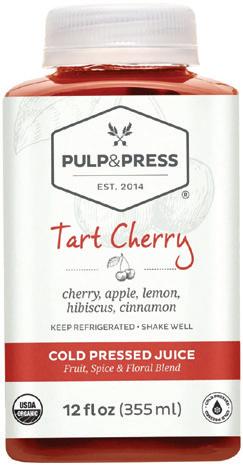
INTERIOR, the new, plant-based multifunctional beverage brand powered by top scientists, has unveiled a debut line of next-level nutrition through ready-to-drink juices to promote holistic wellness from the inside out. Fusing cutting-edge scientific innovation with precision nutrition, INTERIOR multifunctional beverages provide authentic wellness benefits to one’s overall health, backed by clinical research, plus a unique set of benefits with each delicious flavor.
Timed to launch during the U.S. Open, Naked Smoothies released its special collaboration with tennis star Coco Gauff: Protein Pineapple Orange Smoothie, with 20 grams of protein per bottle, six grams of fiber and no added sugar.
Loom’s lineup of juice hydration drinks is taking a dark turn, literally: the two new flavors joining the roster are Midnight Mango and Dark Cherry, both available through the brand’s revamped website. At retail, you can find them at ShopRite, and on Amazon starting in September.
The Orlando Magic announced a multiyear partnership with Uncle Matt’s Organic, America’s leading betterfor-you organic juice company. The partnership brings the organic juice company with a passion for healthy living to Magic fans, making them the Official Organic Juice Partner of the Orlando Magic. The brand will be prominently featured inside the Magic’s home, Kia Center, both as the presenting partner of STUFF’s Magic Castle and with the organic juices being sold inside the arena.
Pressed Juicery, the California-based wellness brand renowned for its nutrient-rich juices and functional shots, announced the nationwide launch of its new Functional Wellness Smoothie Multipack at Costco. Rolling out to over 550 locations across the U.S., the exclusive 8-pack makes wellness convenient for members designed for summer travel, back to school and everyday moments.







By Brad Avery
Complete hydration. “No Seed Oils.” Extra, extra, extra protein.
These are some of the biggest health and wellness CPG trends of the moment. But it’s not just adults anymore who can reap the benefits of the functional beverage revolution: whether you’re shopping for yourself or just looking for something to pack in your child’s lunch box, you might start to notice fewer and fewer differences between the shelves.
As clean label and functional drink trends have dominated innovation across the beverage industry, the lines between adult-focused brands and kids drinks are indeed becoming blurrier – or at least that’s what a number of child-friendly brands are hoping for, as a number of startups have begun to implement many of the same label call outs and health benefits seen in the grown up part of the grocery store.
While brands like Honest and Orgain have worked for years now to shake up the kids beverage set with better-for-you and healthy options, countless other attempts at disrupting the all-too-sugary category have tried and failed.
But it would appear that reinforcements have arrived, both from established brands like Koia and Kate Farms to new entrants like PLEZi, Wave Kids and Joyburst. And it begs the question – could the recent health consciousness spurred by the podcast sphere and social media trends, from TikTok to MAHA, help more brands to finally break through?
Scanner data suggests there could be some movement in the market to back this thesis up: according to Circana, in the 52-week period ending April 20, 2025, U.S. retail (MULO and c-store) sales of aseptic juice drinks were down by 0.7% with category leader Capri Sun dropping 6% and Kool-Aid sliding 6.4%. Comparatively, third place player Honest grew by 15.9% in the same period.
Other legacy kids drink brands also showed signs of a struggle across multiple categories: Hi-C dropped 14.1% and Motts was down by 12.9%, while Juicy Juice showed declines across its portfolio with only its
bottled juice drinks reporting a mild 0.6% lift. Meanwhile Hawaiian Punch, not exactly known for its health halo, did see a 27.3% jump for its relatively small aseptic juice drink line to $9.5 million. But its significantly larger bottled lines were down 1.3% to $263.5 million and its other tracked categories like canned juice drinks, bottled lemonade and powder mixes were likewise in decline.
Part of the discussion today isn’t so much about whether or not the dominant crop of kids drinks are unhealthy, but instead where to find the best solution. And finding a solution that is both affordable for consumers and something that kids will actually enjoy is far, far easier said than done.
Some, like practicing FDA lawyer-turned-founder Shelly Garg, believe the answer is to just get kids to drink more water.
There’s been no shortage of attempts by brands to make water palatable for kids, but none have appeared to stick around for long. Brands like Rethink came and went and even Hint Water, building off its established adult positioned line of flavored waters, appears to have quietly pulled back on its kids line, which no longer appears on the brand’s website and is out of stock in all major online stores.


But that isn’t discouraging Garg from pushing forward with her brand, Wave Kids, which produces unflavored water in 8.4 oz. cans.
Taking some inspiration from Liquid Death in how to better market and design a water brand for children, the startup has emphasized its packaging first and foremost with two visually vibrant designs utilizing temperature-sensitive colorchanging ink. To make it more authentic, the drawings on the cans are done by children, adding some bonafides to the brand’s “For Kids, By Kids” slogan.
“I think parents are finally understanding and realizing the ingredients that are in products,” Garg said. “I've talked to so many parents, sort of in our age group and with young children, and all of them are deeply concerned about the added sugar or sugar components in a lot of the kids products.”
Just as Liquid Death tapped into a market for adult drinkers wanting for a non-alcoholic alternative for social gatherings that still had the look, feel and cool factor of a beer, Garg suggested that kids may very well be in need of a similar hook.
She noted that at parties, kids did not want to drink from nondescript mini-water bottles that are “not fun,” while the aluminum can format can often help kids feel more like they’re drinking the way the adults do – as opposed to square, juice box-style cartons.
“I do think there's this age group between four or five to about 10 or 12 where a beverage option for them is missing,” Garg said. “The juice boxes are too small or too ‘kiddy’, and the grown up drinks are obviously too grown up. So there needs to be a product that is meant for them, that's healthy and that they desire.”
According to Garg, although it may appear counter intuitive to offer children unflavored water as an alternative to the sugar-laden competitors that dominate the kids beverage category, market research found that it was vastly preferred by kids ages 4-10 over flavored alternatives and carbonated waters, which most children found to be “too spicy.”
“Our survey of about 50 or so kids before we started revealed that, really, kids may like the idea of flavor, but they actually don't like the taste,” Garg said. “All kids really need is water, but it just needs to be made more fun and made more accessible, and something that they reach for.”
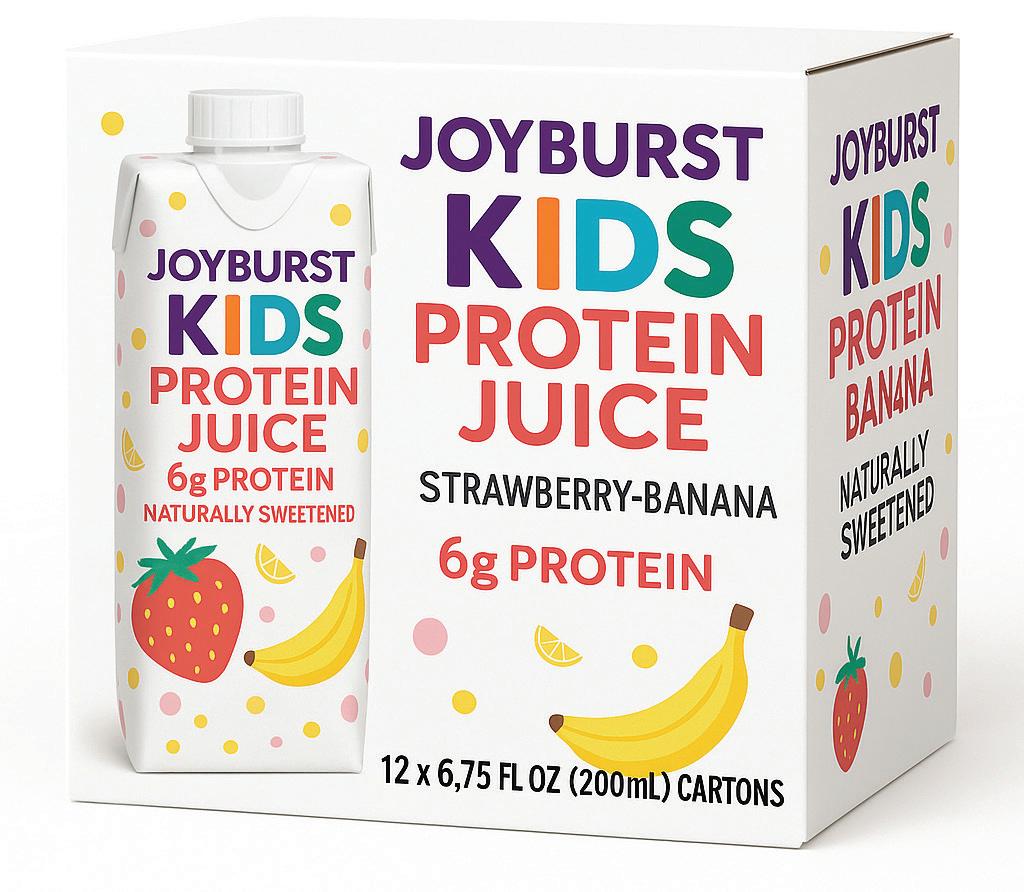
PLEZi, a kids drink brand co-founded by former U.S. First Lady Michelle Obama and run by L.A. Libations, has aimed to build on what works rather than reinvent the wheel by creating a betterfor-you juice drink. But as the brand has been in the market for several years, it’s now extending its presence in the adult market with sports drinks, which complement the existing kids juices. According to brand lead Pat Bolden, part of that strategy has been in “meeting families where they are,” while also wanting to offer additional product lines that can follow consumers from childhood into adulthood – allowing kids to “graduate” to the more adult products as they get older. As well, he acknowledged the increasingly murky waters that delineate kid and adult beverage trends, creating an environment where brands can plausibly compete in both spheres.
“There is a line that's actually blurred when it comes to these beverage products,” he said, noting that across all of PLEZi’s lines the brand includes fiber to promote gut health.
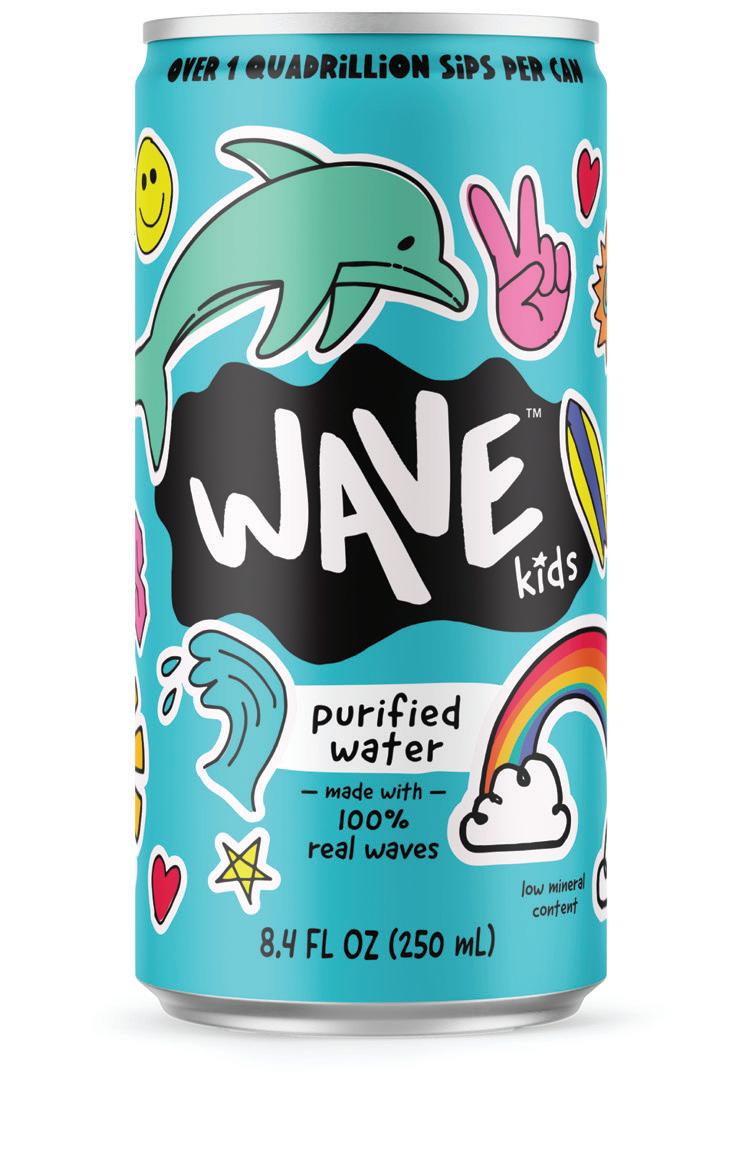
“Why it makes sense is because it's more of a health component not just for kids, but you're starting to see beverages start to reach out on how we can help families, as opposed to just kids or just young adults.”
Canadian hydration brand Joyburst started with adult-sized packages, but has been appealing to families with co-branded Disney promotions for the films Inside Out 2 and Lilo & Stitch. Now, it’s developing a kid-specific line to launch next summer.
Brad Woodgate, founder and CEO of Joyburst, said that while the beverage is already better-for-you and appealing to all ages, starting as an adult drink is more likely to give it an edge in the market that it never would have been able to get in the far-more competitive kids aisle.
“If we were to have launched with a kids drink


first and foremost, that would have been exceptionally difficult with a very, very low probability [of success],” he said. “Our brand skews female on consumption, and those are the prime candidates as buyers for children. So I think with that type of market acceptance thus far we have an outside chance. And this is coming from a guy who's optimistic about an outside chance to actually make a dent in the children's beverage space.”
Many better-for-you brands have been swift to catch on to the “No Seed Oils” trend that has positioned ingredients like canola, sunflower and grapeseed oils as “toxic,” evoking fears they might be causing inflammation and a variety of other health issues, including contributing to obesity. The trend has the blessing of Robert F. Kennedy Jr.’s Make America Healthy Again (MAHA) movement, and in turn has carried some degree of political baggage as a result. While dieticians and nutritionists have pushed back on many of the nastier claims made about these oils –critics argue that it’s often the processed products these oils are found in and overconsumption that’s the real problem –some brands have leaned in from a marketing standpoint. Several brands have brought the proud “No Seed Oils” label callout to kid-sized cartons. Protein drink maker Koia launched its kids line last year, touting their high protein and intentional lack of seed oils as a leg up over existing packaged shakes for children Meanwhile, plant-based dairy alternative startup Kiki Milk is also putting the seed oilfree claim front and center on its packaging.
Kiki Milk was founded by husband and wife team Alex and Lauren Abelin when, during the pandemic lockdowns, they struggled to find suitable infant formula for their son who suffered from sensitivities to both soy and dairy. Believing there to be a gap in the
market for plant-based milks for children, they developed their current organic certified milks made from a blend of oats, hemp and pumpkin seeds, coconut and banana.
“Kids are the biggest consumers of cow dairy, but cow dairy allergies and calorie sensitivities are growing year over year,” Lauren Abelin said. “I think juice is fading out – it's pretty much just empty calories and sugar most of the time – then there's water and then there's dairy milk. But there was really nothing specifically that was very nutrient dense and made for kids besides Kiki Milk.”
The brand’s products – available in multi-serve cartons and single-serve 8 oz. boxes – include callouts for both no seed oils and no gums. Lauren Abelin said that the decision to focus on those benefits is part of an effort to eliminate “unnecessary ingredients.” While many believe them to be unhealthy, she suggested that no matter where you stand on the science there is still no need to be adding them to products – particularly products for children – when cleaner alternatives exist.
And it’s been paying off. She said the brand began finding customers online “out the gate” after launching in 2021, selling out in the first month. As the company is working to scale, Abelin said that Kiki Milk still continues to “fortunately and unfortunately sell out,” but it has since expanded outside of ecommerce to around 1,000 retail doors across the country including Sprouts, Target and Wegmans.
“You don't need to put seed oils in a plant-based milk. You don't need to put gums or fillers or synthetic fortification or natural flavors into a plant-based milk if you're filling it up with whole foods,” she said. “All those things that I just named are shortcuts that companies have used for a really long time to make up for a lack of whole food ingredients, to lower the cost of goods sold so that they could make a higher profit and I think it's just a response to people being sick and parents really taking products into their own hands and becoming founders.”


This NFL season, PEPSI is taking NFL icons Josh Allen and Justin Jefferson from the gridiron to the blacktop in its new campaign, “Tailgate Crashers,” crashing stadium parking lots nationwide to show that Tailgating Deserves Pepsi.
The Pepsi Tailgate Crashers won’t just be on the small screen. Fans can expect tailgate takeovers from the Pepsi Crashers across multiple NFL stadiums this fall, including the Philadelphia Eagles’ Lincoln Financial Field, the New York Jets’ MetLife Stadium, the Washington Commanders’ Northwest Stadium, the Los Angeles Rams’ and Chargers’ SoFi Stadium, the Dallas
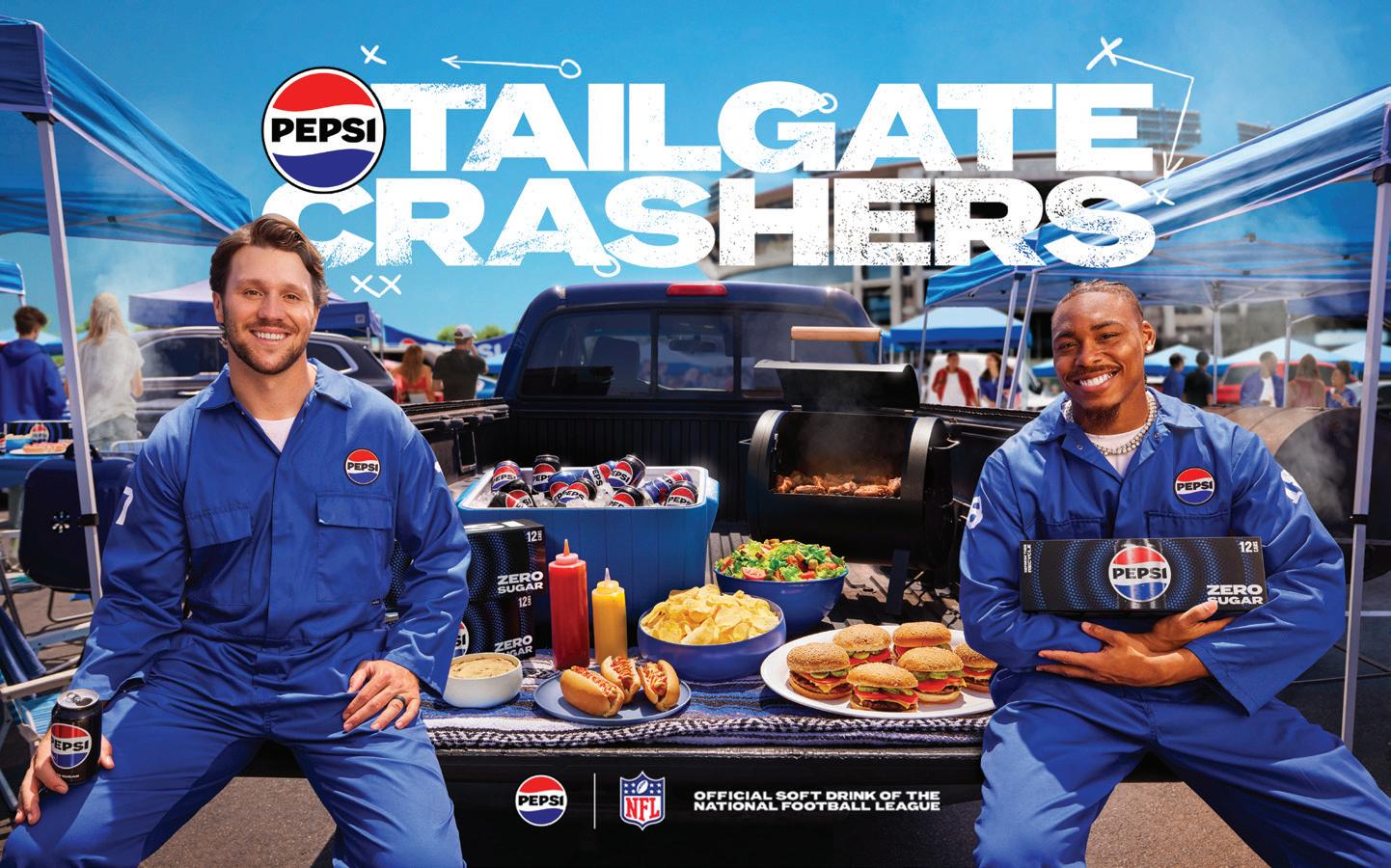
Cowboys’ AT&T Stadium, and more.
“Tailgating sets the stage for gameday, and Pepsi has never been content with sitting on the sidelines,” said Gustavo Reyna, VP of Marketing, Pepsi. “With ‘Tailgate Crashers,’ we’re
unapologetically crashing the party to bring the bold, refreshing flavor every tailgate deserves. Because when your food and team bring the heat, your tailgate deserves an ice-cold drink that can keep up.”
CELSIUS announced the expansion of its LIVE. FIT. GO.TM campaign with the unveiling of its 2025 NIL roster, featuring four standout collegiate football players from top programs across the country. This expansion reflects CELSIUS’ growing footprint in the collegiate space: on the field, in the gym, and across campuses nationwide through the CELSIUS University student ambassador program. The 2025 NIL roster includes:
• Jeremiyah Love (Running Back, Notre Dame)
• Caleb Downs (Safety, Ohio State)
• Bryce Underwood (Quarterback, Michigan)
• Cade Klubnik (Quarterback, Clemson)
The campaign features a national 30-second anthem ad spot that immerses viewers in the electric energy that is college football game day: from energetic stadiums and roaring student sections to tailgates, mascots, marching bands, and the early Saturday morning anticipation of game day.
Each athlete will also be spotlighted in a 15-second ad spot, giving fans a behind-the-scenes look at their daily grind, from early training sessions and film study to recovery routines and campus life.
“Jeremiyah, Caleb, Bryce and Cade are true embodiments of what it means to chase greatness everyday– each an ideal representation of the lifestyle championed by our
LIVE. FIT. GO campaign,” commented Kyle Watson, Chief Marketing Officer at CELSIUS. “Activating in the collegiate space remains integral to CELSIUS’ growth and connection with Gen Z consumers, and our new NIL football roster is an impactful investment that we’re excited to kickoff. College football has a huge fanbase and presents a great opportunity to reach wider audiences in a meaningful and authentic way.”
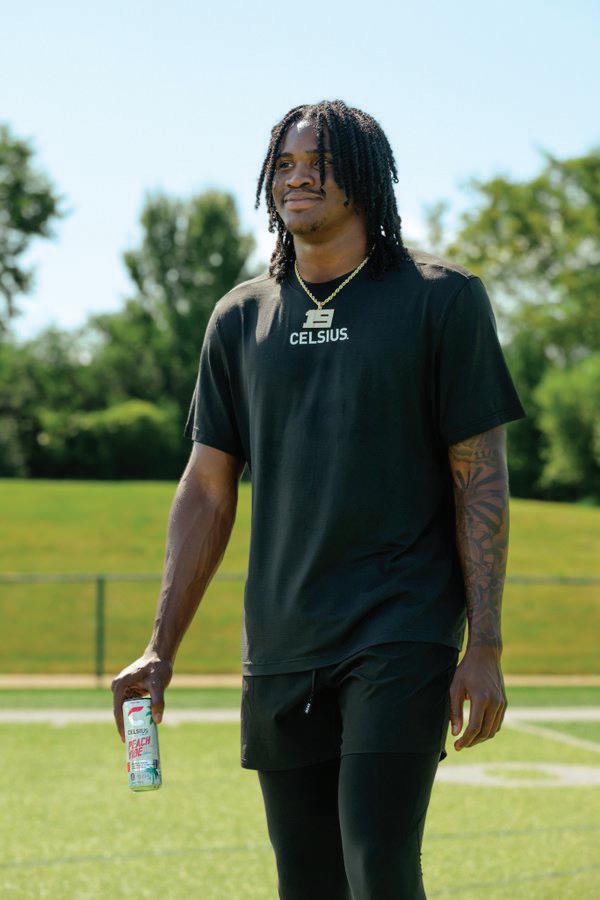
CELSIUS is also growing its college campus presence through CELSIUS University, a paid student ambassador program that gives aspiring marketing professionals brand experience. The program launched in 2022 and now spans over 80 campuses.

Waterloo Sparkling Water, known for its authentic flavors and lively carbonation, announced the launch of the Great Waterloo Can Cruiser Road Trip, a first-ever nationwide sampling tour featuring the brand’s iconic Epic Flavor Can Cruiser.
The Can Cruiser debuted earlier this year as part of Waterloo’s collaboration with chef, restaurateur, and Emmy awardwinning TV personality Guy Fieri. A car-sized Waterloo can brought to life on wheels, the Cruiser now has a fresh look with designs inspired by Waterloo’s award-winning Raspberry Nectarine and new-for-2025 Guava Berry flavors.
The Great Waterloo Can Cruiser Road Trip includes five stops across the country, each designed to surprise and delight with exclusive Waterloo Road Trip swag, interactive experiences, appearances by local friends of the brand, and, of course, plenty of complimentary Waterloo Sparkling Water.
Tour Highlights:
• Stop 1 – Berkeley, CA | September 18
Amoeba Music | 1:30 – 3:30pm
• Stop 2 – Chicago, IL | September 21
Football Sunday Tailgate | 8am - 3pm
• Stop 3 – New York City | October 7
New York Rangers Centennial Season Opener
• Stop 4 – New York City | October 10
MAMMA MIA! on Broadway | 12:30-5:30pm
• Stop 5 – Austin, TX | October 17–19
Race Weekend at Circuit of The Americas
8:30am – 8:30pm Friday and Saturday; 8:00am – 4:00pm Sunday
“We’re thrilled to launch the Great Waterloo Can Cruiser Road Trip, a first-of-its-kind experience for Waterloo,” said Kathy Maurella, Chief Marketing Officer at Waterloo Sparkling Water. “After another standout year for the brand, this tour is the perfect way to head into fall -- connecting with fans

face-to-face and sharing our full-flavor ethos in unforgettable ways. From cheering on favorite teams to discovering new music to celebrating at the racetrack, this Road Trip brings Waterloo to life in the moments fans love most. We’re looking forward to seeing everyone on the road!”
The Road Trip caps off a landmark year for Waterloo, with continued growth that has been at least three times the category for the past five years. The tour follows the launch of year-round flavors Guava Berry and Ruby Red Tangerine in the first quarter and a strategic brand collaboration in the spring with Guy Fieri on three limited-time Waterloo Sparkling Water x Guy Fieri’s Flavortown varieties

To celebrate the one-year anniversary of Telos, the third studio album by multi-platinum, GRAMMY Award-winning artist/DJ/ producer Zedd, Onyx Coffee Lab is helping the musician take his love of specialty coffee to the next level through an exclusive single-origin collaboration. Whole-bean Telos coffee is available now.
“It’s been an honor to work with Zedd on bringing his passion for specialty coffee to his audience,” said Onyx co-founder Jon Allen. “We’re thrilled to share the result of
this collaboration with fans of Zedd’s music and with coffee lovers who want to experience an exceptional coffee offering.”
To create the unique roast, Pacamara variety coffee sourced from El Salvador is carefully processed and raised-bed dried, a method that allows for even airflow and preserves the coffee’s delicate structure before being roasted to an Expressive Light profile. The result is a flavor that balances sweetness and acidity, silky smooth whether hot or iced.
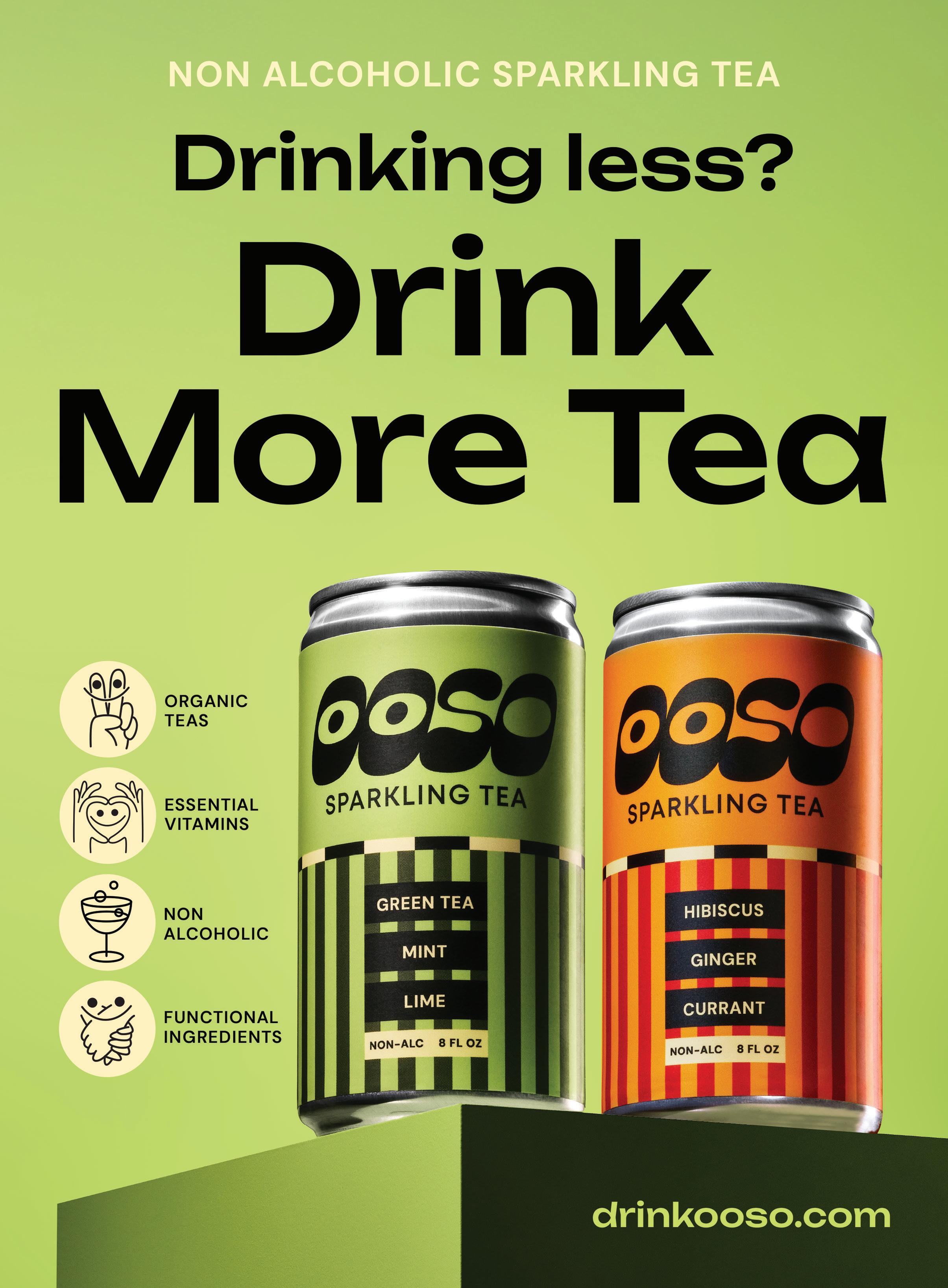
The Federación Mexicana de Futbol (FMF) and Soccer United Marketing (SUM), the commercial arm and partner of Mexico’s annual U.S. Tour for more than two decades, announced a multiyear partnership with Taste Salud, naming the health-focused powdered drink mix brand as the official Hydration Partner of both the Mexican Men’s and Women’s National Teams.
As the official partner, Taste Salud will be part of both MexTour and MexTour W, which features the Mexican Men’s and Women’s Teams competing in cities throughout the U.S., providing soccer fans with memorable experiences during one of the most exciting periods in North American soccer history. MexTour is recognized as one of the most successful sports properties in North America, thanks to its estimated fan base of 65 million people.
“As a first-generation Mexican American and lifelong fan, partnering with the Mexican National Teams is truly a dream come true,” said Josh Leyva, Co-Founder, Taste Salud. “We’re proud to fuel both the team and the fans with authentic Latino flavors, 2-in-1 health benefits, and only 1 gram of sugar.”

Taste Salud will engage with the Mexican National Team’s passionate fanbase through exciting in-stadium events, exclusive promotions, fan engagement programs with current and former players, special activations, and more.
“During an unparalleled time for soccer in North America and as the popularity of the Mexican National Teams continues to soar, we are honored to welcome Taste Salud as a new official partner of both the men’s and women’s Mexican National Teams in the U.S.,” said Carter Ladd, Soccer United Marketing Chief Revenue Officer. “Taste Salud is a genuine brand deeply rooted in culture, and through authentic programming which includes the creation of special Mexican National Teamdesigned licensed product, we can’t wait to bring this partnership to the fans that will be out in force during our MexTour events in the lead up to next summer’s World Cup.”
Johnnie Walker, the world’s number one Scotch whisky brand (IWSR 2024), has announced its global partnership with GRAMMY Award–winning superstar Sabrina Carpenter. The multi-year partnership represents a bold, transformative era for whisky and music, rooted in creative self-expression, experimentation and celebration.
The partnership marks the first verse of Johnnie Walker’s plans to collaborate with progressive voices in music to tell their unique stories of progress, and shape the future of how and where people can enjoy Johnnie Walker Black Label. Timed to the release of Carpenter’s highly-anticipated new album, Man’s Best Friend, the Johnnie Walker x Sabrina Carpenter partnership will offer fans of legal drinking age Sabrina’s take on her favorite classic whisky cocktails, and album-inspired content that reflects the confident, playful spirit of her new sound.
The campaign debuts globally alongside the final leg of her Short n’ Sweet Tour, with content rolling out in key cities and across digital platforms.
“Music plays such a meaningful role in everyone’s life journey, and it has always been a way of connecting people to Johnnie Walker’s ‘Keep Walking’ mantra, which is aimed at inspiring personal progress,” said John Williams, Global

Head of Whiskeys at Diageo. “We are thrilled to welcome Sabrina as the newest voice in our story. Her fearless creativity and deep connection with a new generation make her a powerhouse addition to our Johnnie Walker family. Together, we’ll harness the power of music to bring a bold, new energy to the whisky experience.”
‘When You Know It’s Right, Don’t Change a Damn Thing ’

In a world where trends come and go in the blink of an eye, Wild Turkey, the award-winning Kentucky bourbon brand, is drawing a line with the launch of its new global campaign: “When You Know It’s Right, Don’t Change a Damn Thing.”
At the heart of the story is a heritage brand helmed by legendary Wild Turkey Master Distiller and Bourbon Hall of Famer Jimmy Russell, who helped save bourbon from becoming like everything else. Today, Jimmy is celebrating 71 years with Wild Turkey, as the longest serving master distiller in the spirits industry. He is joined by his son, Master Distiller and Bourbon Hall of Famer Eddie Russell, and grandson, associate master blender Bruce Russell, to carry the recipe of Wild Turkey forward.
The campaign is an homage to the time-honored and the enduring, including classics like Wild Turkey 101 Bourbon, which still has the same signature bold flavor as it did over a century ago.
“Every bottle of Wild Turkey bourbon tells a story of conviction,” says Raul Gonzalez, Global Managing Director of Whiskey & Rum at Campari Group. “The brand’s steadfast approach is one reason why Wild Turkey is so beloved and respected all over the world today. There’s pride in ordering Wild Turkey bourbon, and we’re excited to bring Jimmy and Wild Turkey’s story to a new generation of fans with this new campaign.”
The first new global brand campaign since “Trust Your Spirit” debuted in 2021, “When You Know It’s Right, Don’t Change a Damn Thing” will begin to roll out in global markets in fall 2025, starting with the US, Japan, Australia, and South Korea. The campaign includes a variety of films and bold key visuals to be used across channels, including digital, social, TVC, and print.


RECOVER 180, the organic sports drink engineered for performance and recovery, announces that NFL superstar and entrepreneur Travis Kelce has joined the company as both an investor and brand partner.
Kelce, a three-time Super Bowl champion, amplifies RECOVER 180’s mission to transform how people hydrate.
Known for his durability, athleticism, and charisma, Kelce embodies the very essence of what RECOVER 180 stands for: performance backed by intention.
“When it comes to performing at your highest level, qual-
ity matters,” said Travis Kelce. “I’ve been drinking RECOVER 180 because it’s clean, organic hydration with ingredients that support peak performance. Having a healthier recovery option is a game-changer, and I love investing in something that’s truly pushing the category forward.”
“Travis is selective about where he puts his energy and investments, and joining RECOVER 180 as a brand partner and owner was a natural fit,” said Andre Eanes, Co-Head of 3 Arts Sports and Kelce’s longtime business manager.
“The RECOVER 180 team has a proven playbook for building and growing successful brands, and we’re thrilled to be aligned with such experienced leaders. RECOVER 180 is not just another product; it’s a superior, organic sports drink that is truly pushing the category forward, and Travis is excited to be a part of its growth story.”
Founded by Lance Collins and Mike Meldman, RECOVER 180 was built to fill a critical gap in the sports drink space: an effective hydration product with zero added sugar, no artificial ingredients, and certified organic status.
“Travis is a generational talent and a true culture shifter,” said Collins. “He embodies the energy, influence, and competitive spirit that define RECOVER 180, and having him join the team is an incredible validation of our mission and the product we’ve built.
‘There’s A Delta For That’ Campaign
Delta Beverages, the number one THC drink brand in the U.S. by volume, debuts a full rebrand and bold new campaign, “There’s A Delta for That.” The cannabis beverage pioneer, known for delivering consistency and quality in every zero-calorie, zero-sugar drink, has been fueling a new kind of happy hour since 2020. With product frequently flying off shelves in 8,500 locations nationwide, Delta is redefining the adult beverage space again with its latest evolution.
As alcohol consumption trends shift, Delta is a solution for those in search of alternative ways to unwind. Tapping into meaningful “micro moments” that fill your day - from a cozy bonfire night with friends to an uplifted concert pregame, to a better-for-you way to unwind after a long work shift, the “There’s A Delta for That” campaign is helping destigmatize the use of cannabis and usher in a new way to enjoy adult beverages.
“The cannabis beverage industry is exploding, and Delta is proud to be a pio -
neer in this category, promising consumers trusted quality, precise dosing, and a consistent experience in every can,” says Delta Beverages founder and CEO, Jack Sherrie. “This rebrand is an extension of Delta’s mission to bring fun, relatability, and connection to everything we do while driving the category forward. It’s the ultimate step in taking Delta to the next level, and just the beginning of our biggest year yet.”
“Not only is the modern consumer someone who puts extra thought into their next purchase, they’re someone who wants to feel seen by the brands they support,” said Gabriela McCoy, Vice President of Marketing at Delta Beverages. “We wanted to come up with a campaign idea that embodied who we are as a brand, and the ‘There’s A Delta for That’ campaign does exactly that, speaking to a wide array of different consumers. Delta is here to help take the edge off, and help the everyday consumer ‘tap in’ to the moment.”

In collaboration with creative agencies Tattoo Projects and McLean Design, Delta’s rebrand includes an updated logo, standout packaging, a vivid color catalog, and enticing images highlighting flavor, clean ingredients, and fun. “There’s A Delta for That” will take on a 360-degree digital, social, and out-of-home marketing strategy with a humorous nod to life’s lows and highs, whether they want to keep it casual with 5mg Delta or sip on expert mode with 20 mg.

